The Trump Georgia Indictment, Annotated
A grand jury in Fulton County, Ga., on Monday unveiled the fourth criminal indictment of former President Donald J. Trump. Like a federal indictment earlier this month, this one concerns Mr. Trump’s efforts to overturn his 2020 election loss. But it differs in that it charges 18 other defendants who are alleged to have taken part in the scheme.
The New York Times is annotating the document. Check back for updates as we read through it.
Download the full PDF.
New York Times Analysis
Next »
1
This indictment charges Mr. Trump under Georgia state law, unlike the two previous federal indictments he is facing for mishandling of documents and attempting to overturn the election. This is significant because Mr. Trump, if re-elected as president, would not be able to pardon himself.
2
Even though the Georgia indictment overlaps in some respects with the election interference indictment brought this month against Mr. Trump by the special counsel, Jack Smith, there should not be any concerns about double jeopardy. The two indictments, while similar, charge violations of different types of law — one from the state system, the other from the federal system.
3
This is a sprawling indictment, outlining a vast racketeering conspiracy and charging a number of additional crimes, including conspiracy to commit forgery and making false statements.
4
By using a state version of the RICO Act — short for Racketeer Influenced and Corrupt Organizations Act — prosecutors in Georgia will be able to connect the dots between the ways in which Mr. Trump and several of his far-flung allies worked together toward the common goal of allegedly seeking to overturn the results of the election in that state. The RICO statute, which is often leveled against the mafia, street gangs and other organized crime outfits, is a powerful tool that will permit the prosecution to bring all of the strands of the election conspiracy into one coherent narrative.
5
Although the recent federal indictment of Mr. Trump referred to six co-conspirators who assisted his effort to overturn the election results, no one else was charged alongside him. This indictment in Georgia for the first time charges a number of Mr. Trump’s lawyers and advisers, a notable move that ensnared some of the most prominent names in Trump World.
6
By comparison, the recent federal indictment of Mr. Trump charged only four offenses in connection with his effort to stay in power. Those included three conspiracy charges — one to defraud the United States, a second to obstruct an official government proceeding and a third to deprive people of civil rights provided by federal law or the Constitution — and a fourth charge of attempting to obstruct an official proceeding, meaning the certification of the election results by Congress.
7
Two of the highest-profile defendants are Rudolph W. Giuliani, the former New York City mayor turned Trump lawyer who oversaw much of the fight to overturn the election, and Mark Meadows, Mr. Trump’s chief of staff at the time of the election. Until now, neither had faced criminal liability, though Mr. Giuliani was an unnamed co-conspirator in the federal case unveiled against Mr. Trump this month.
8
Mr. Meadows and Mr. Giuliani might challenge the indictment on the grounds that they were forced to testify before a special grand jury in Fulton County that was previously investigating Mr. Trump’s election interference. In general, prosecutors cannot force someone who is the target of an investigation to testify before a grand jury, though Ms. Willis’s office could argue that the testimony occurred before an earlier grand jury that was investigating only and did not have the power to indict.
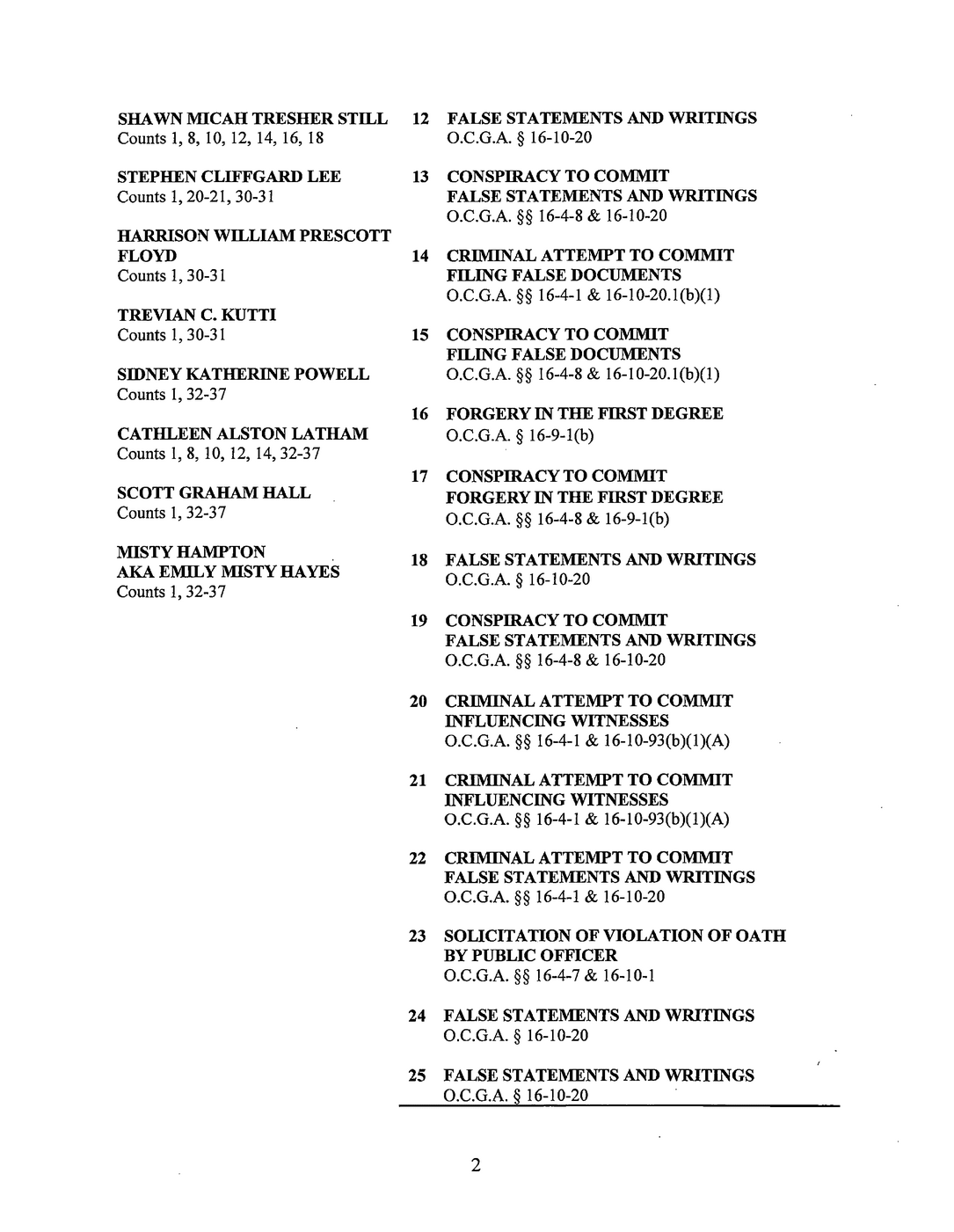
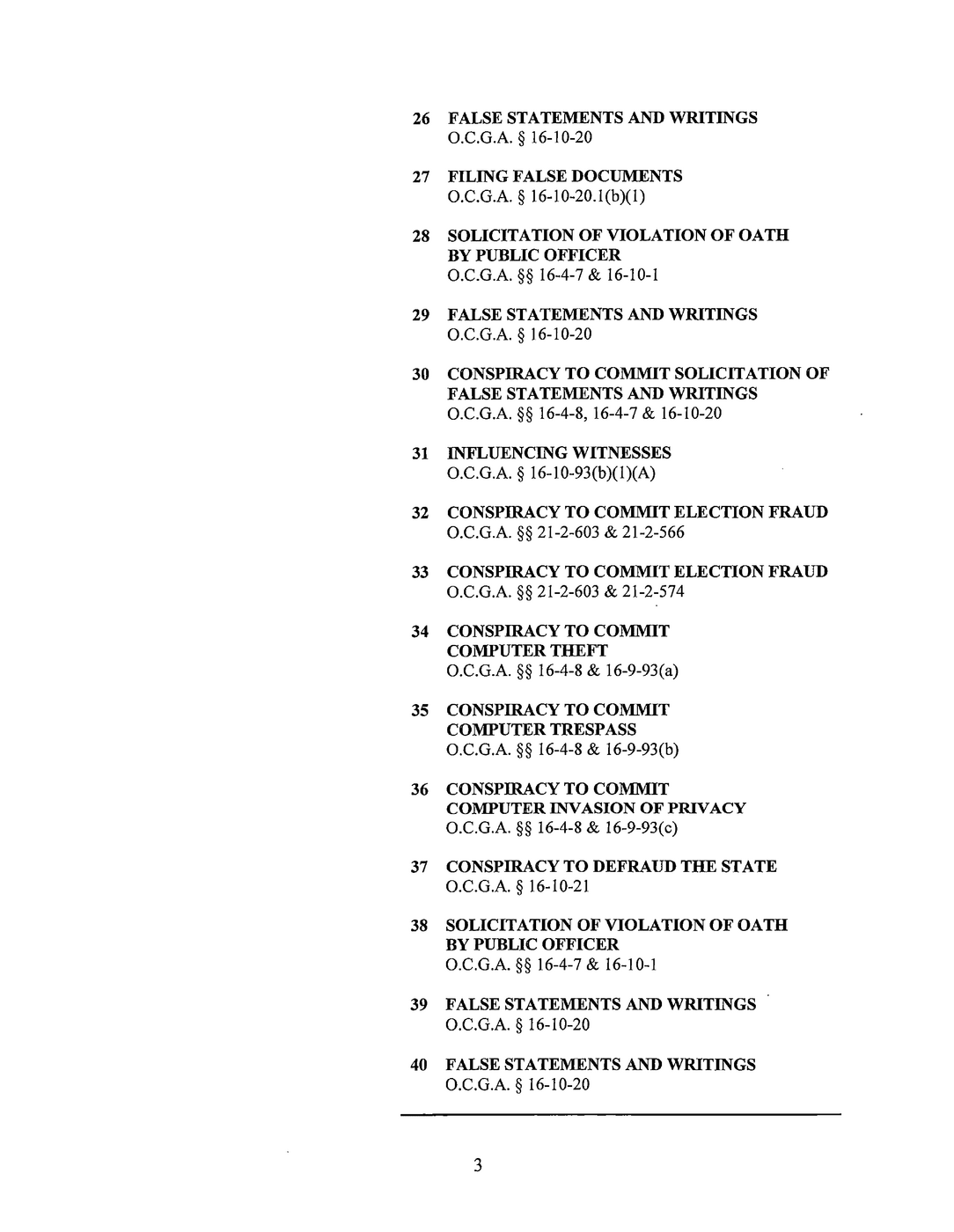
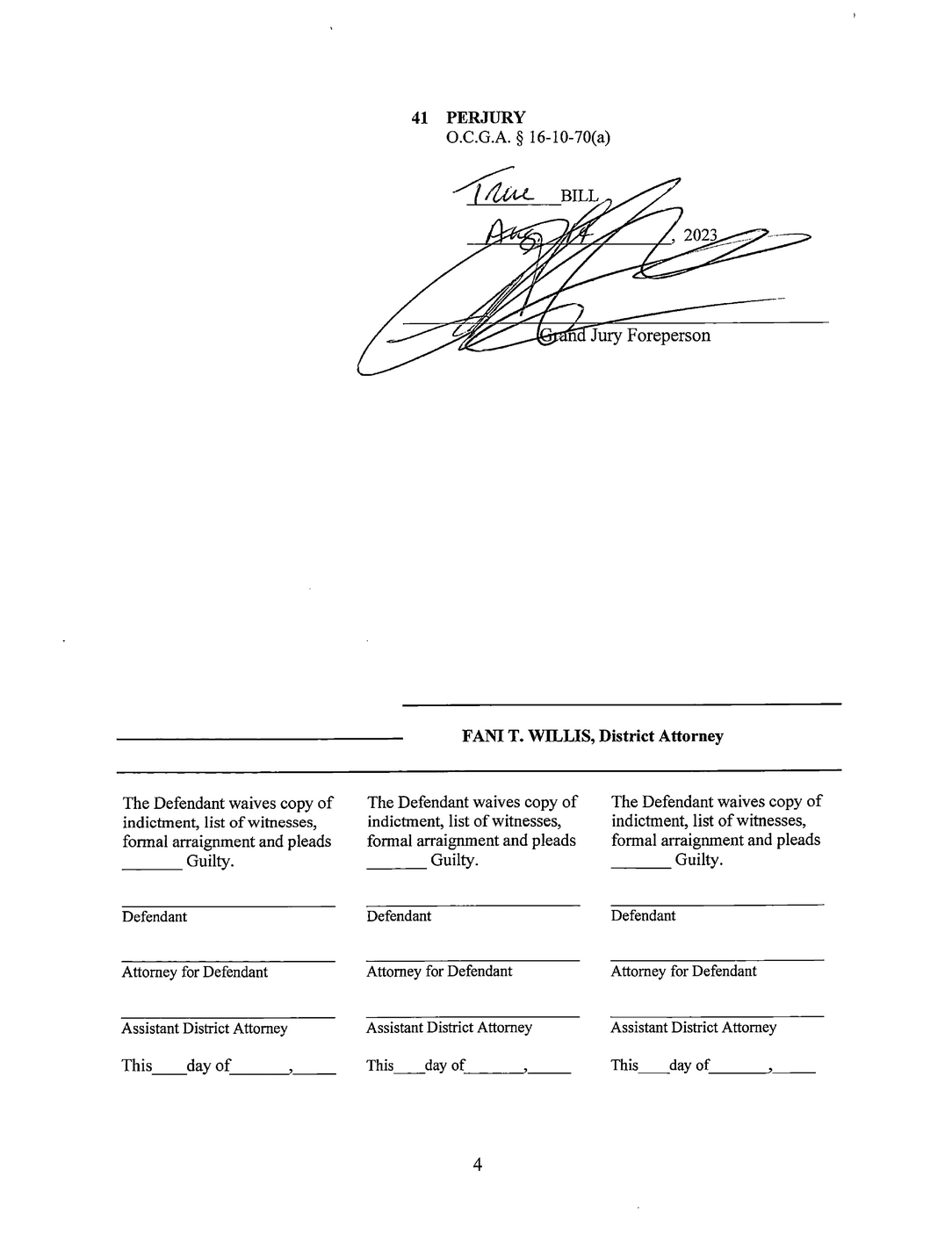
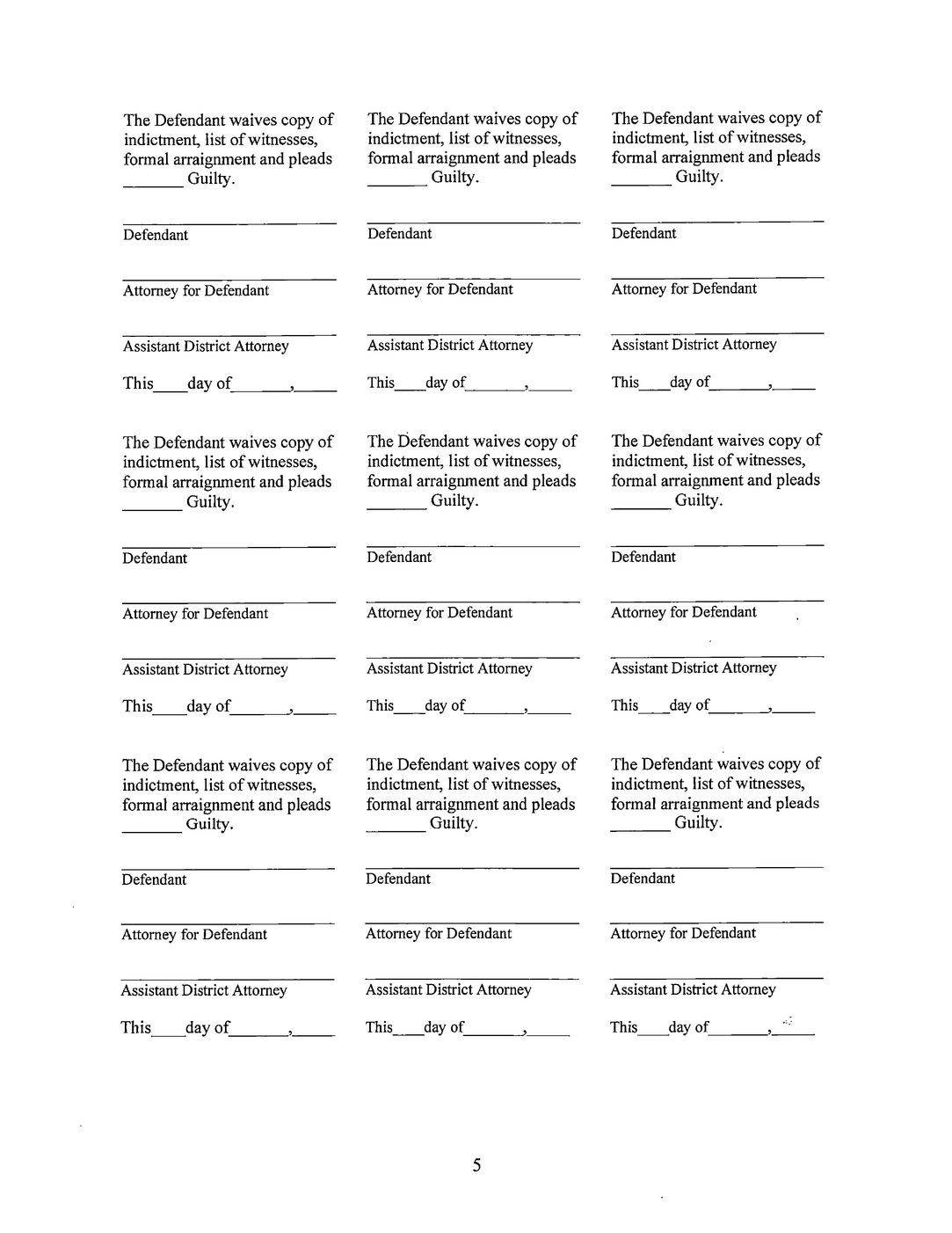
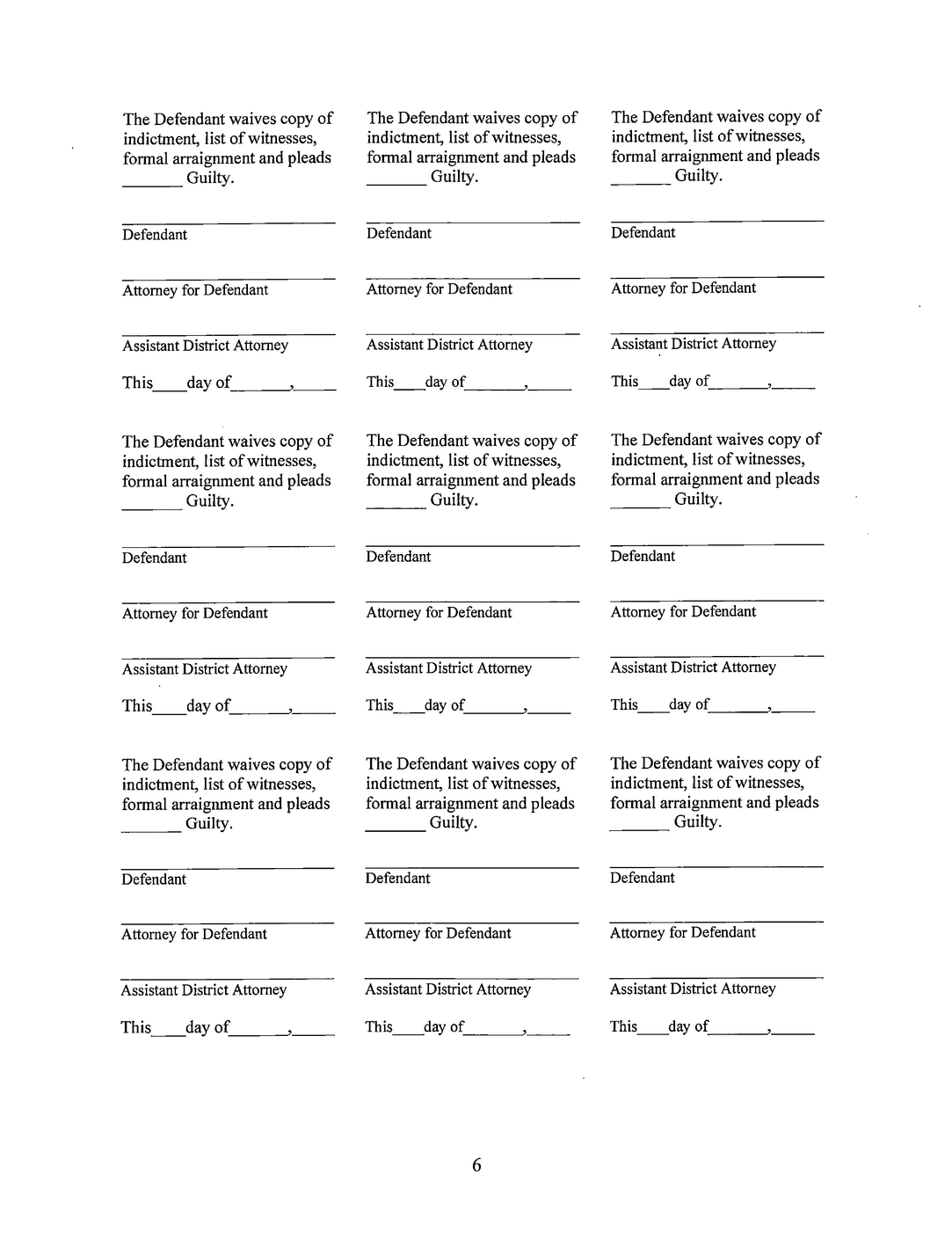
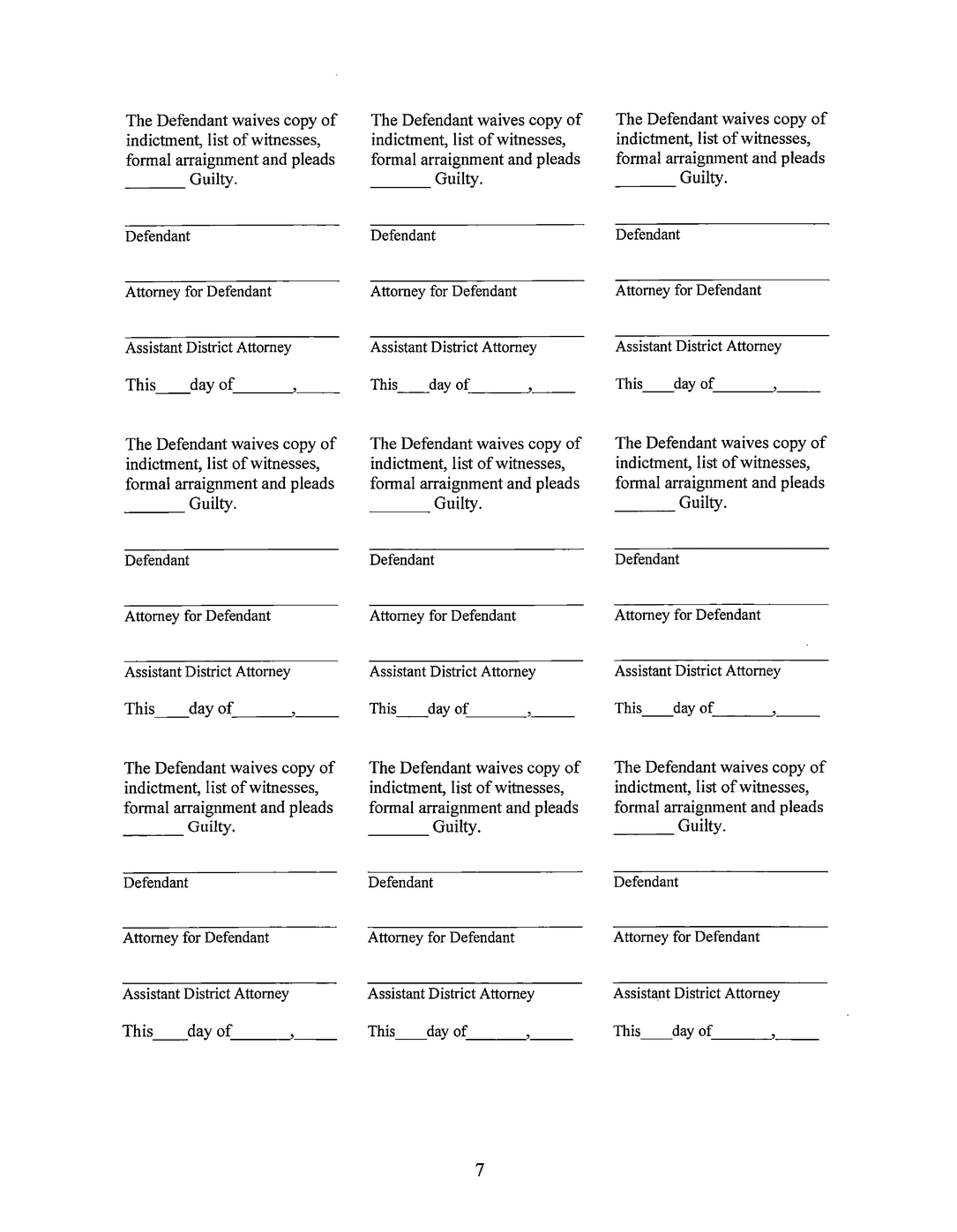
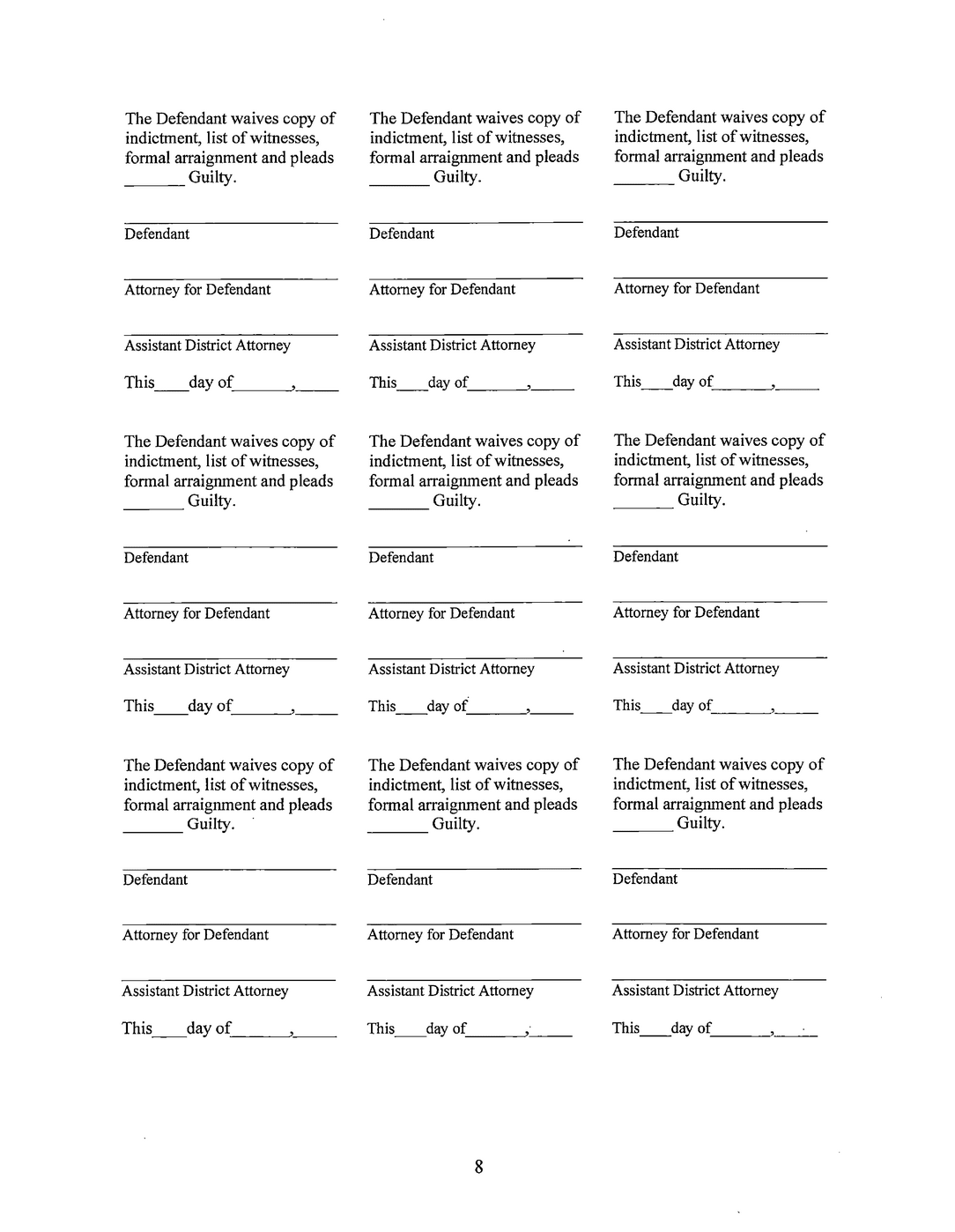
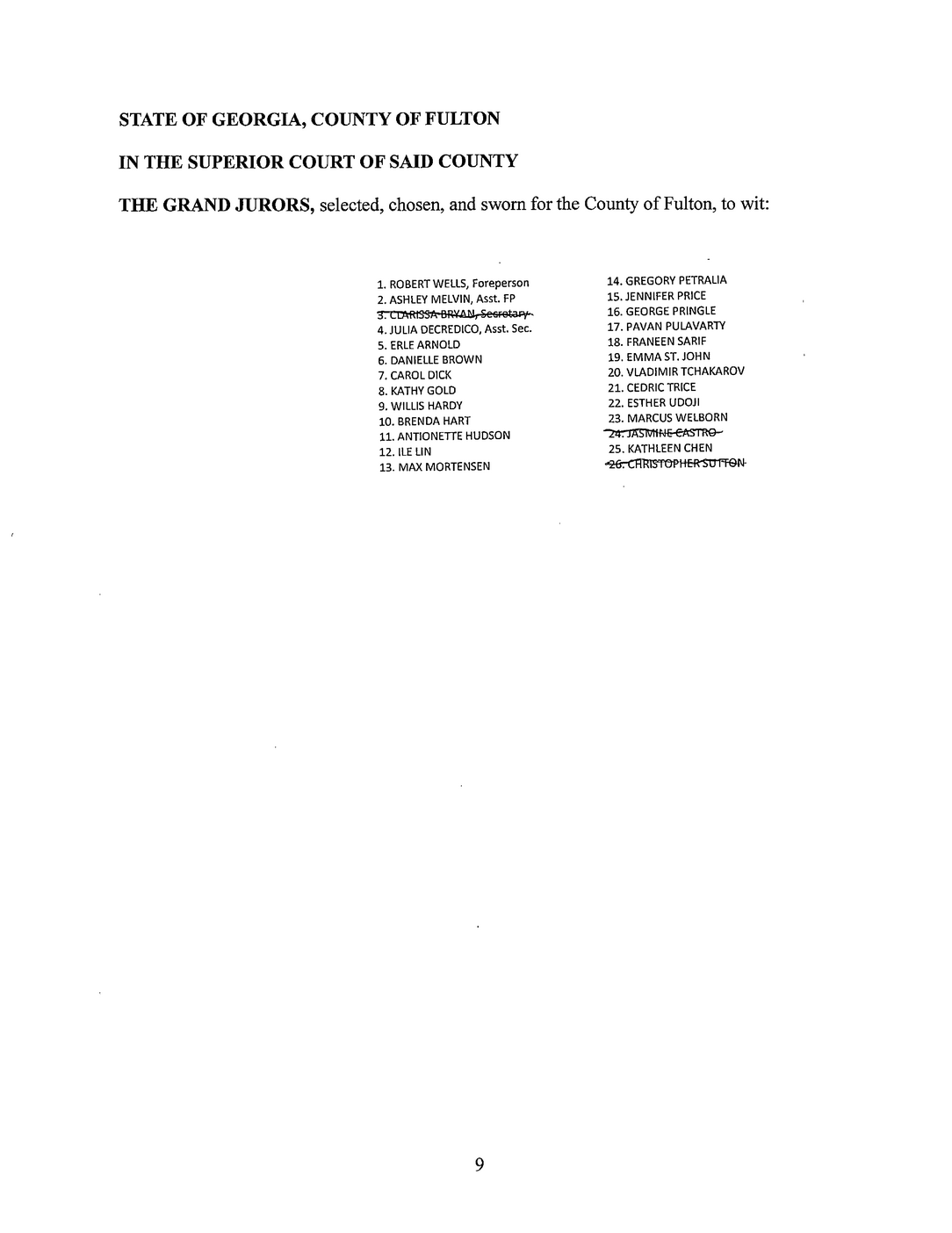
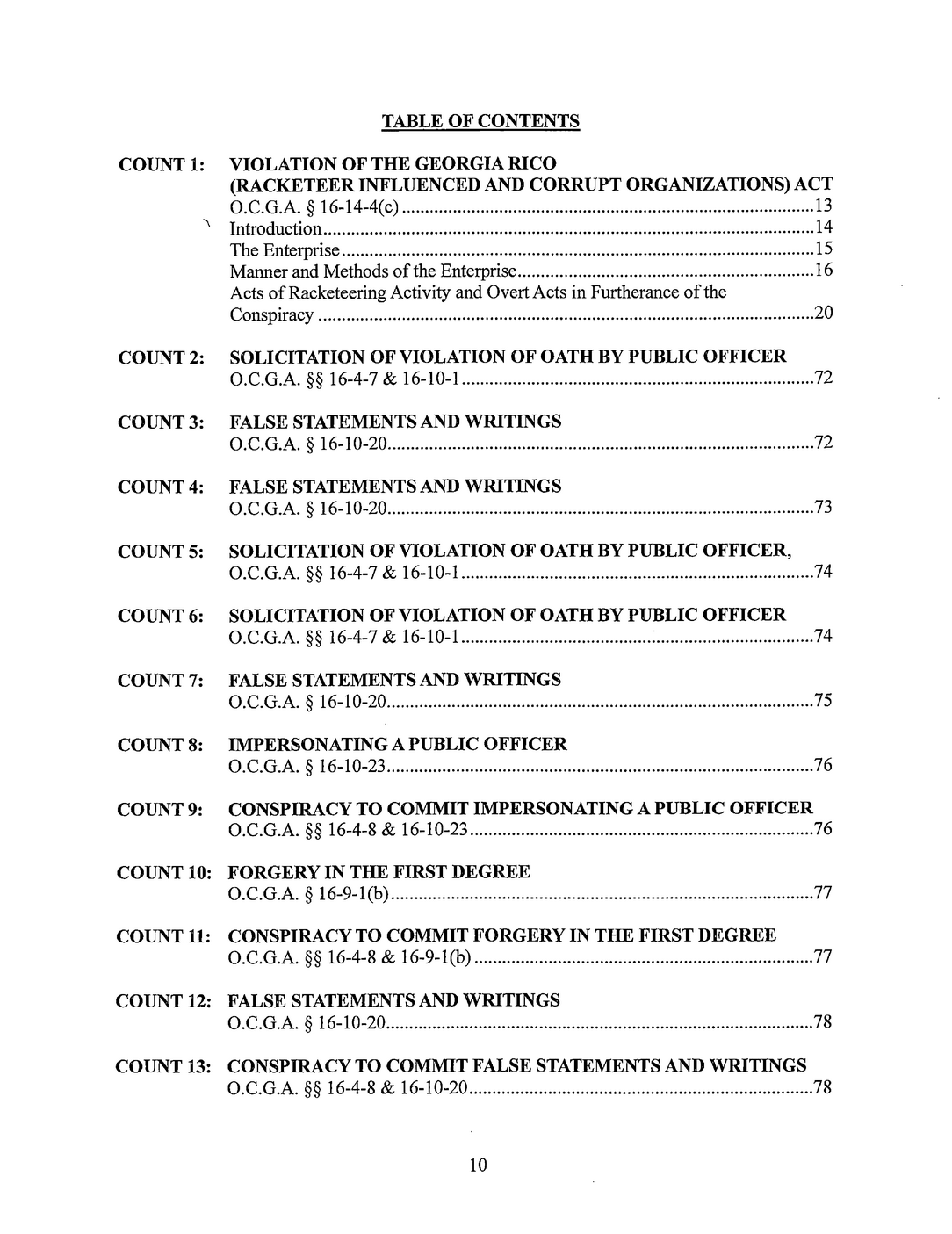
New York Times Analysis
« Previous
Next »
9
While the alleged racketeering activity comprises the meat of the indictment, prosecutors also charged 40 other crimes, including false statements, forgery, impersonating a public officer and soliciting public officers to violate their oaths.
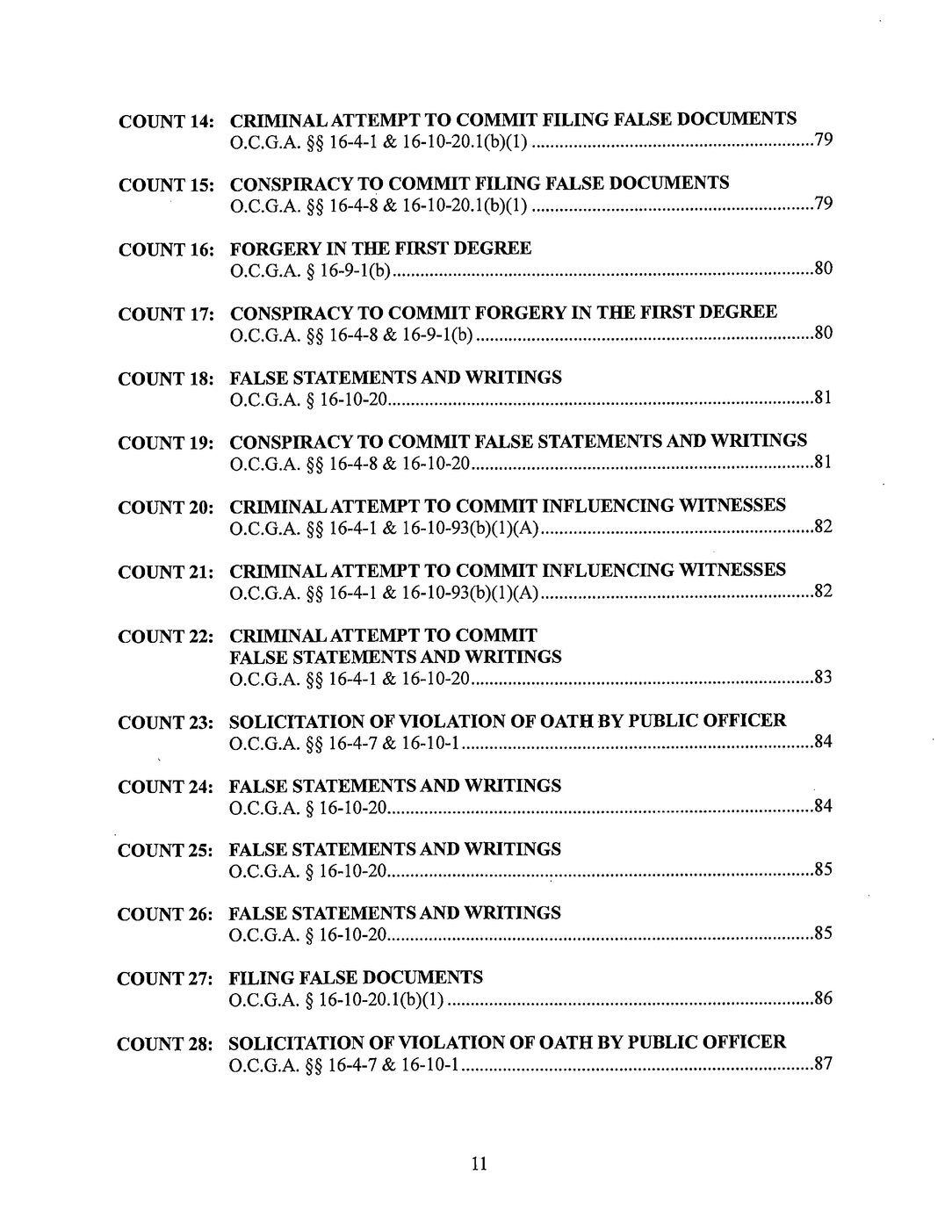
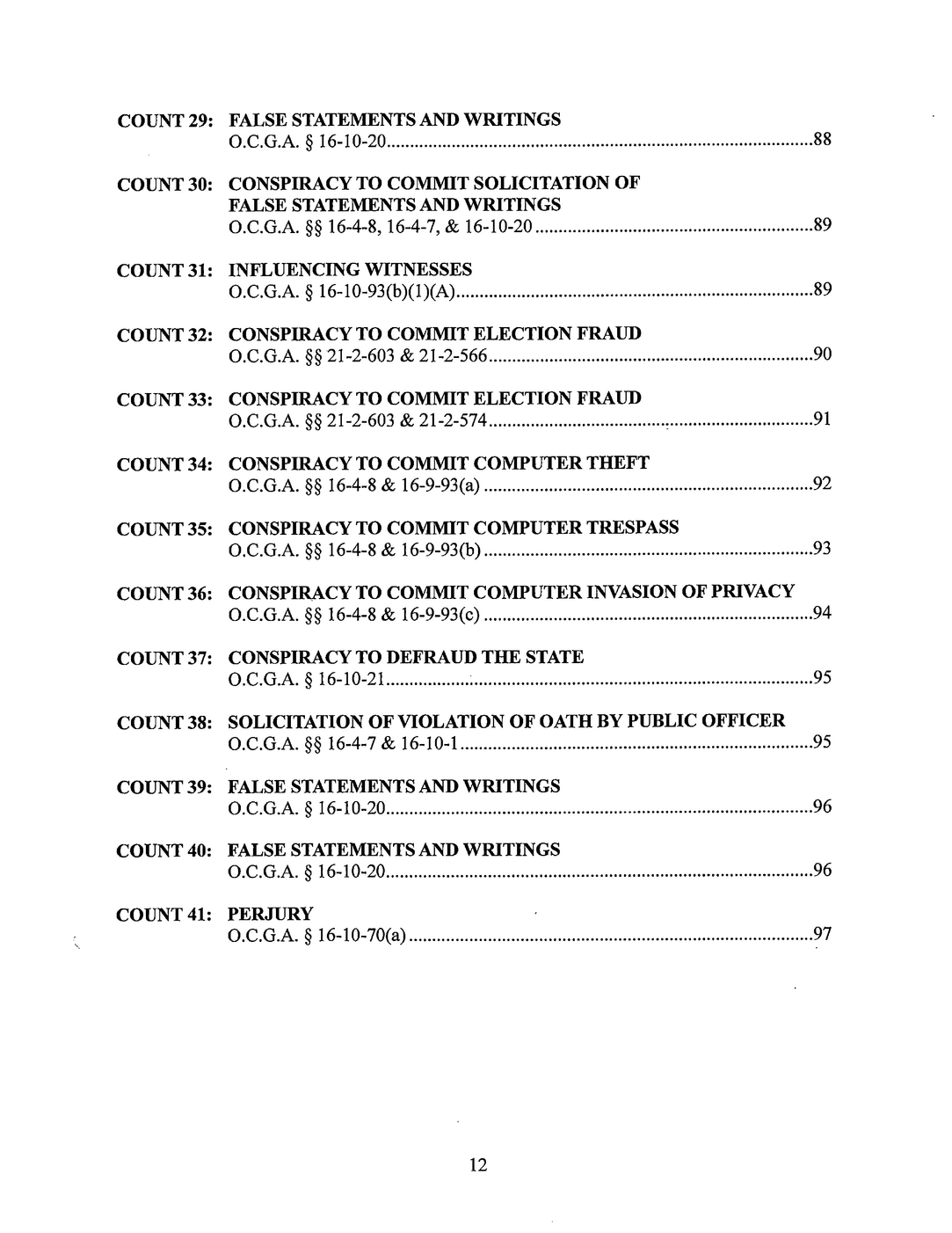
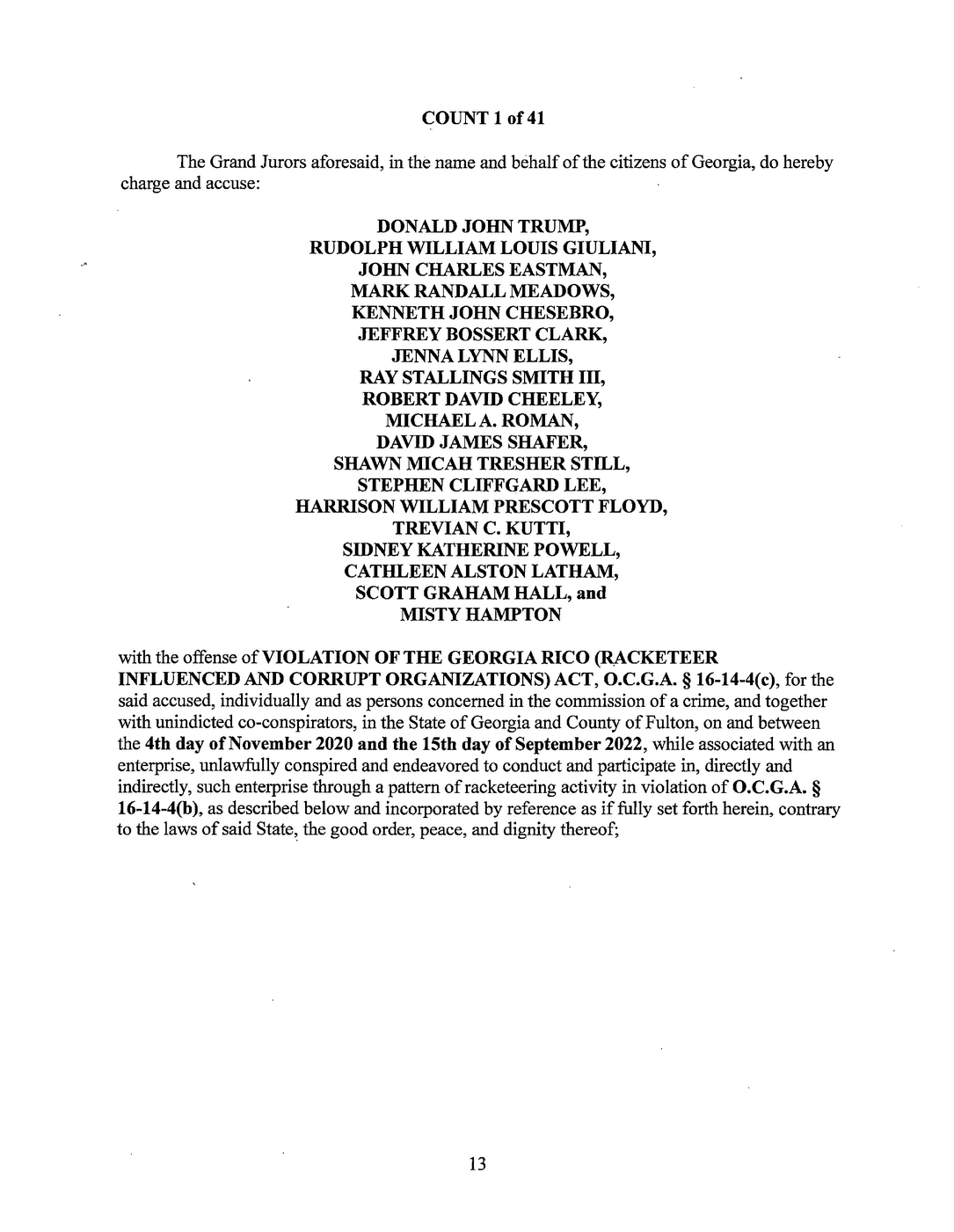
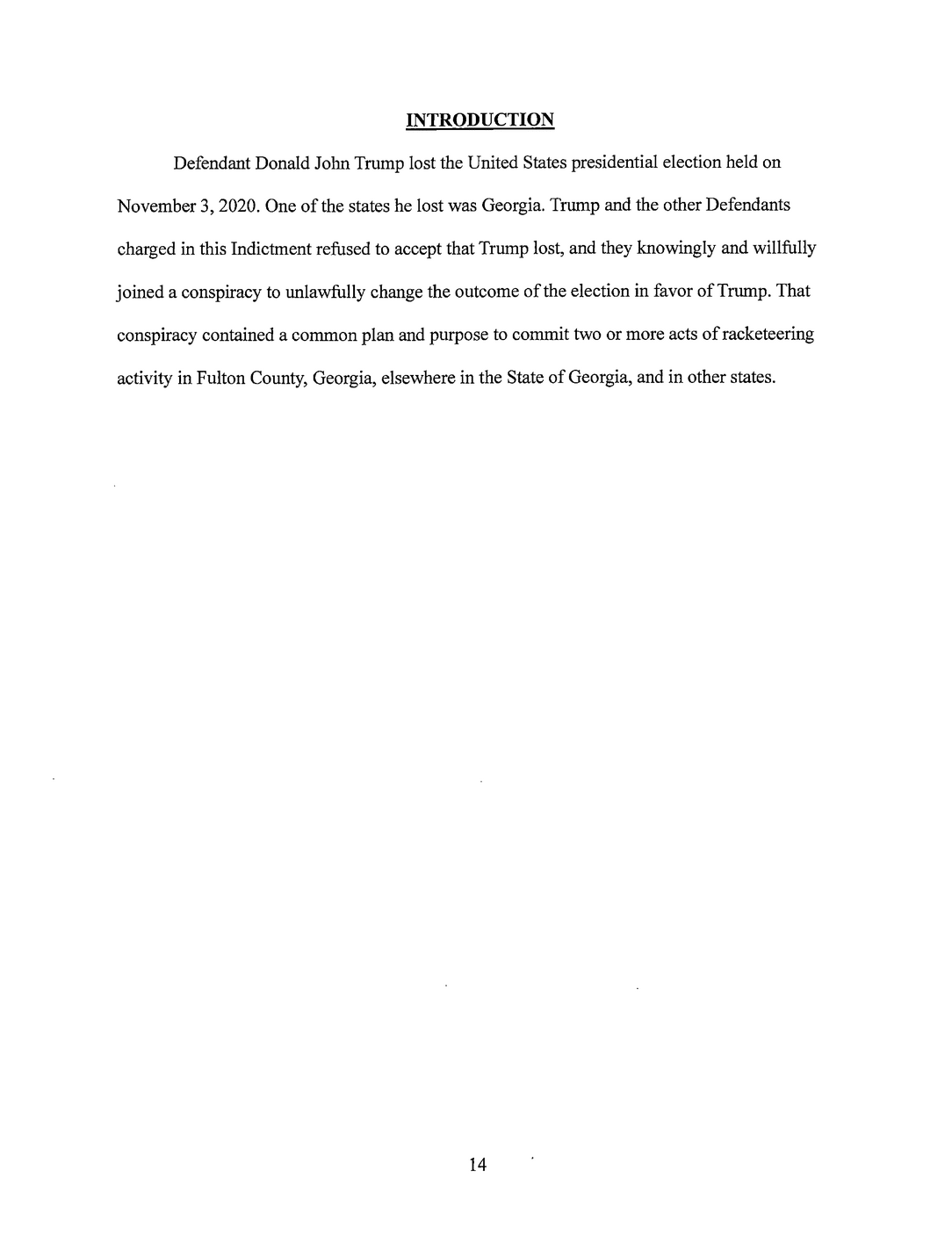
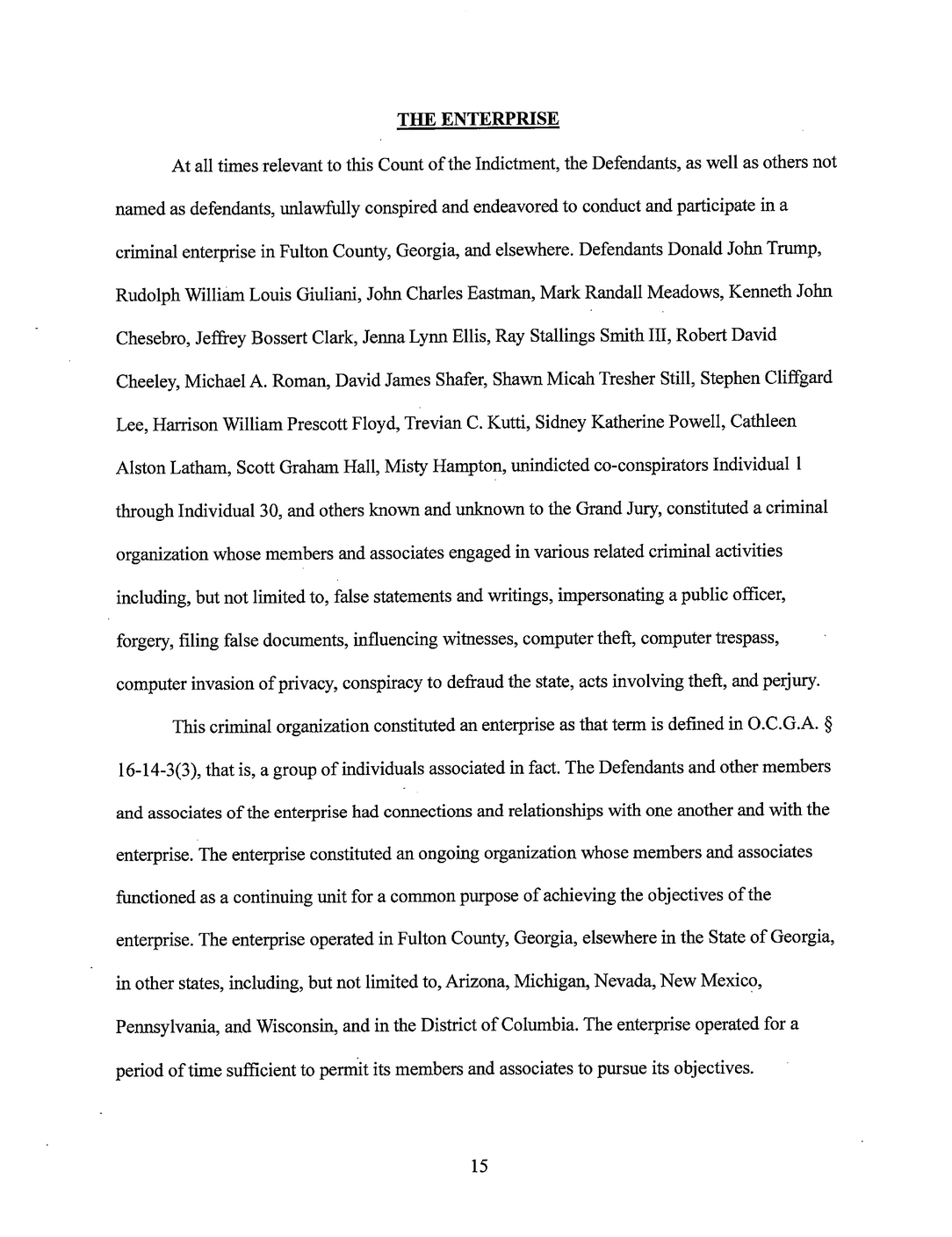
New York Times Analysis
« Previous
Next »
10
The sprawling nature of the case was made clear not only by the 19 named defendants, but also by the inclusion of 30 unnamed, unindicted co-conspirators.
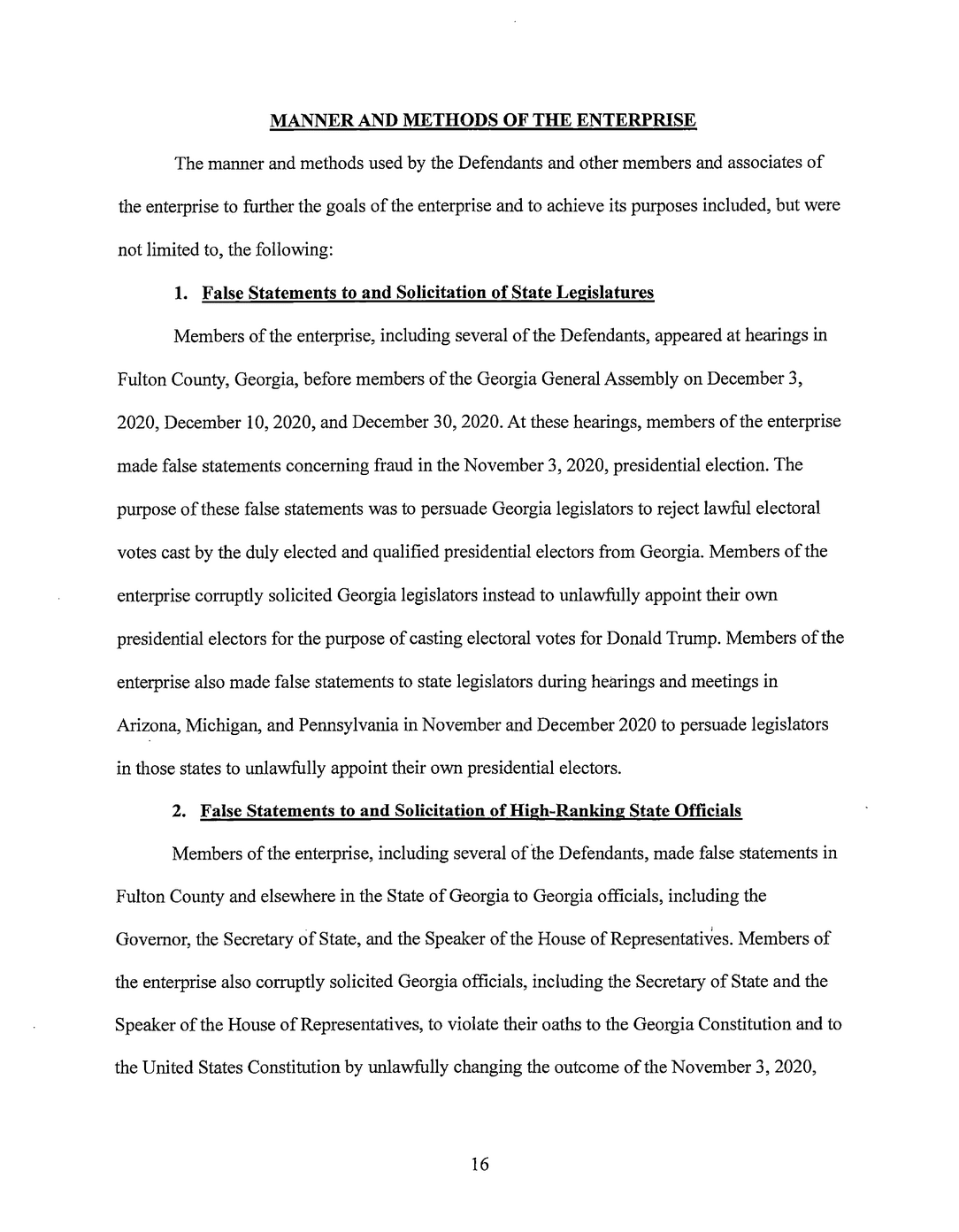
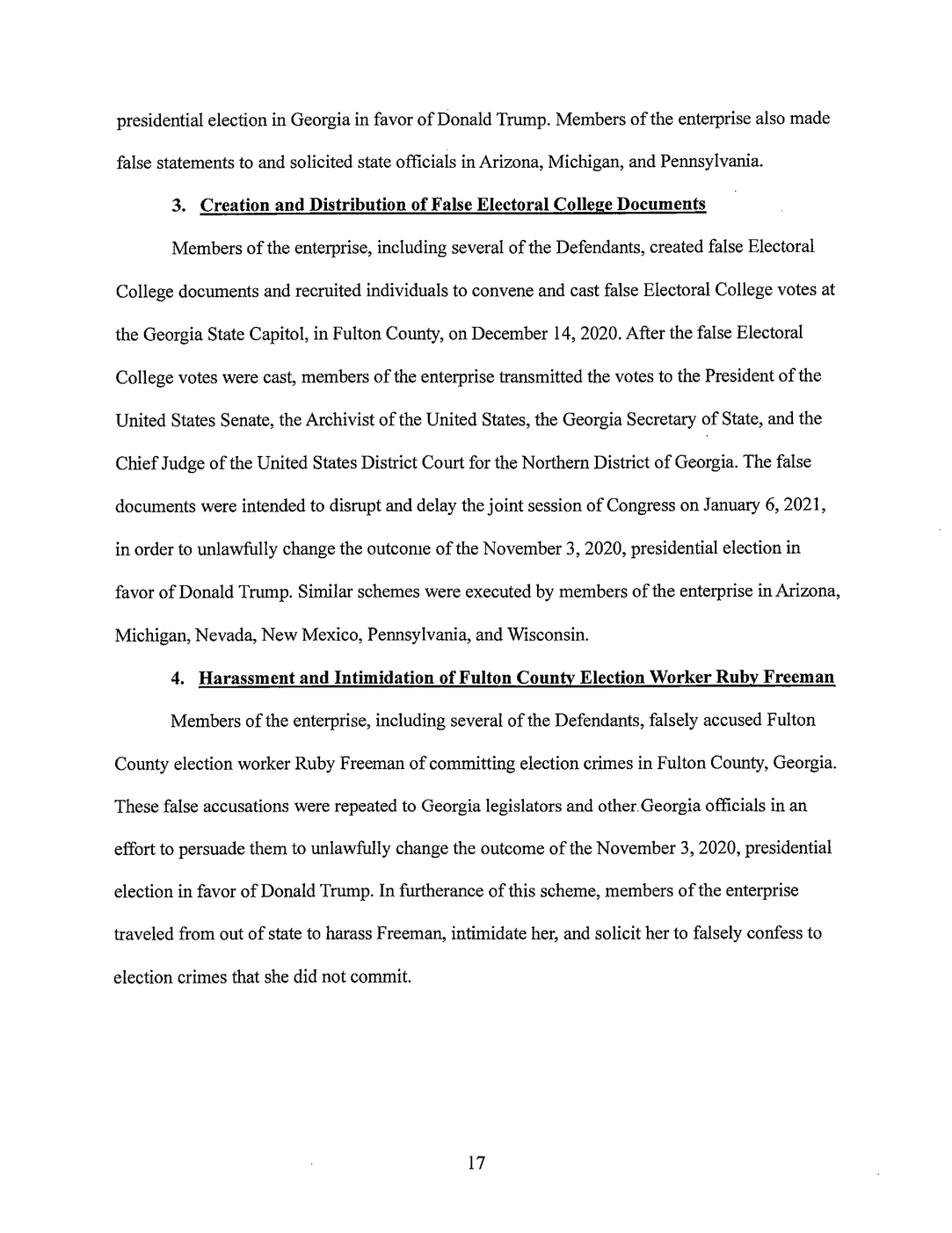
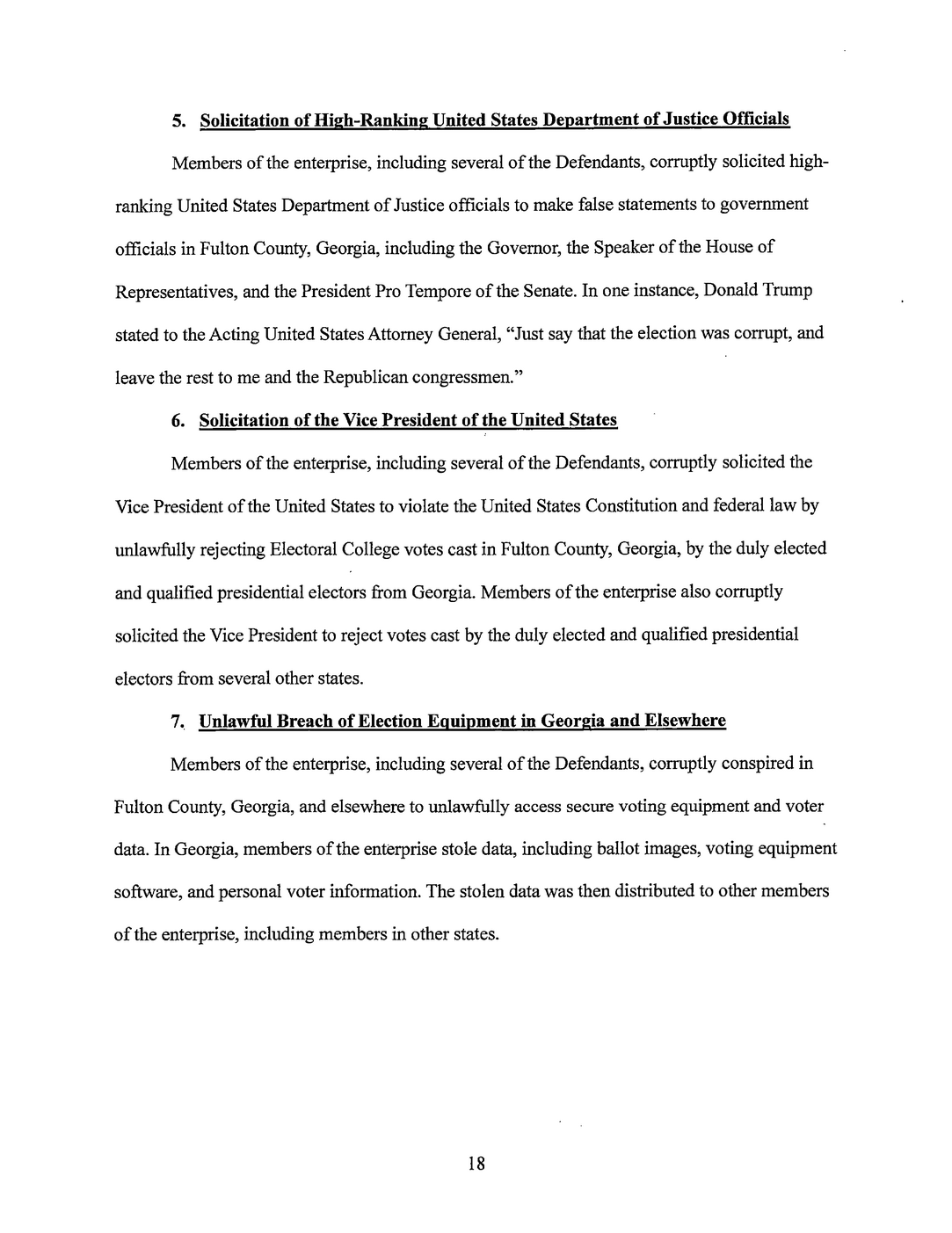
New York Times Analysis
« Previous
Next »
11
The claim that Mr. Trump’s allies were involved in a plan to unlawfully gain access to secure voting equipment and voter data is a new criminal allegation that the Justice Department’s indictment of Mr. Trump did not include.
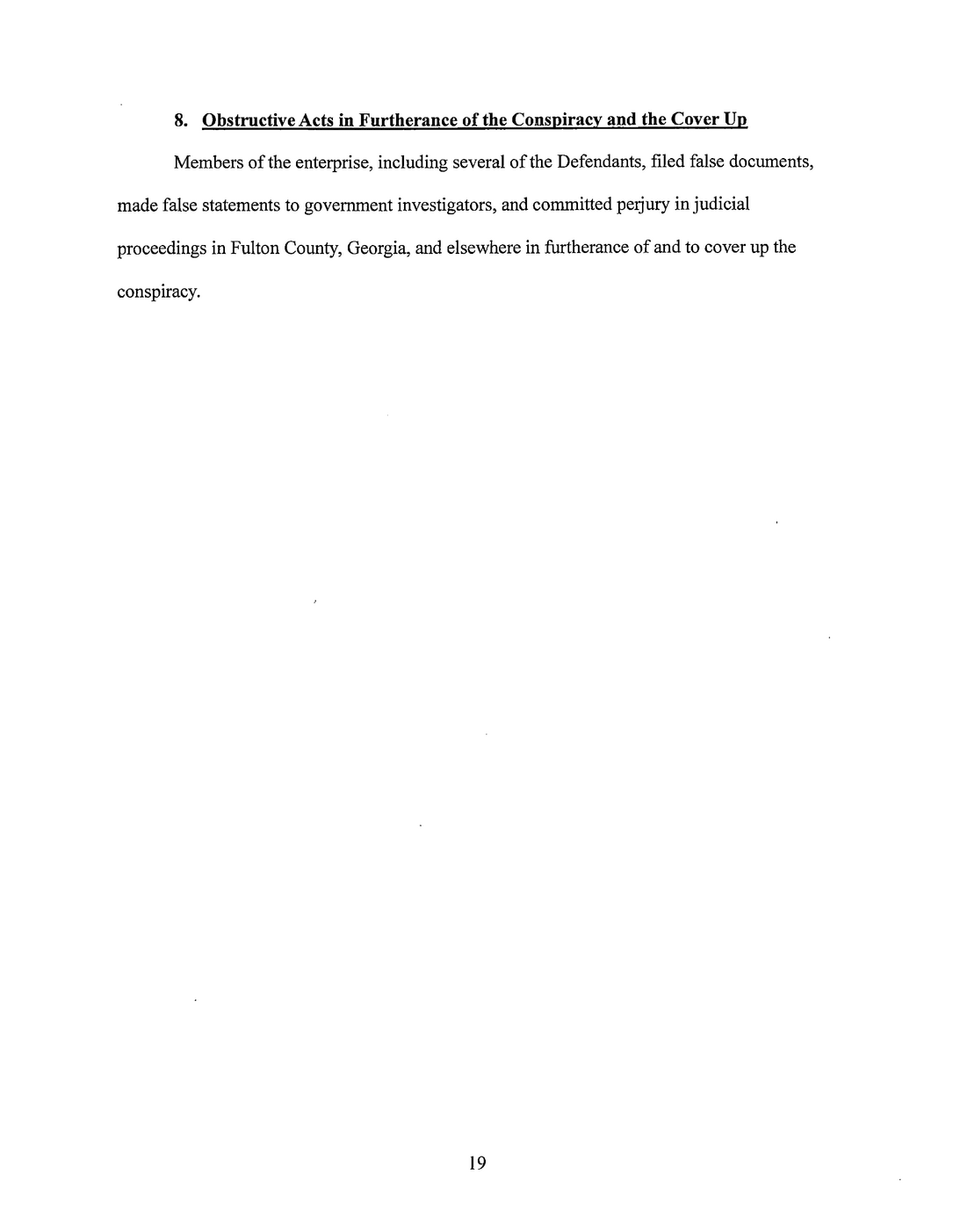
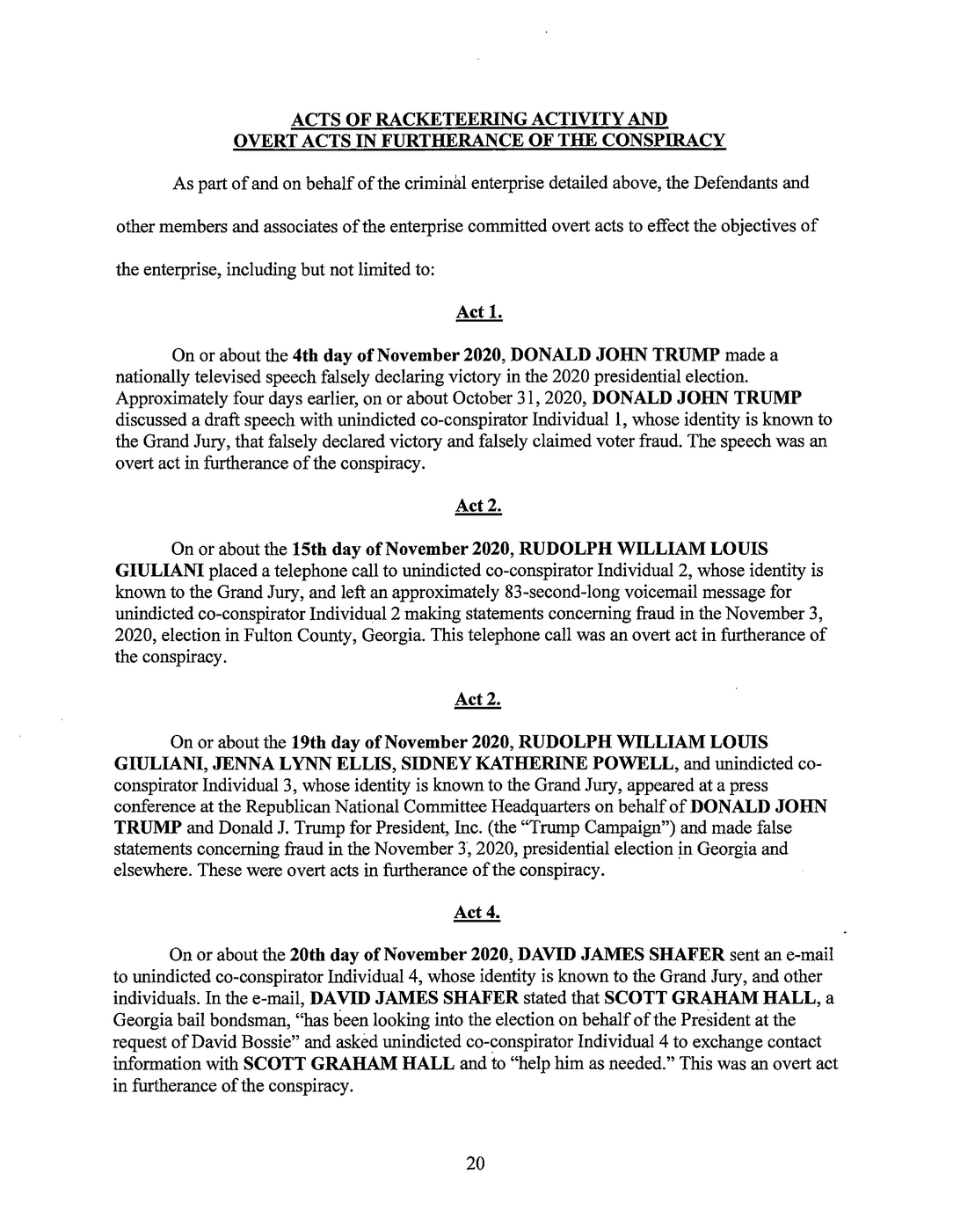
New York Times Analysis
« Previous
12
Prosecutors put together a racketeering indictment like this one by collecting individual actions known as “overt acts” that are meant to further the goal of the larger conspiracy. On their own, each overt act may or not be a separate crime. But when they are all considered together, the overt acts can help prosecutors tell a detailed story of how many steps went into a complex crime.
13
The first so-called predicate act of the indictment came on Election Day itself when Mr. Trump gave a speech in which he “falsely declared victory.”
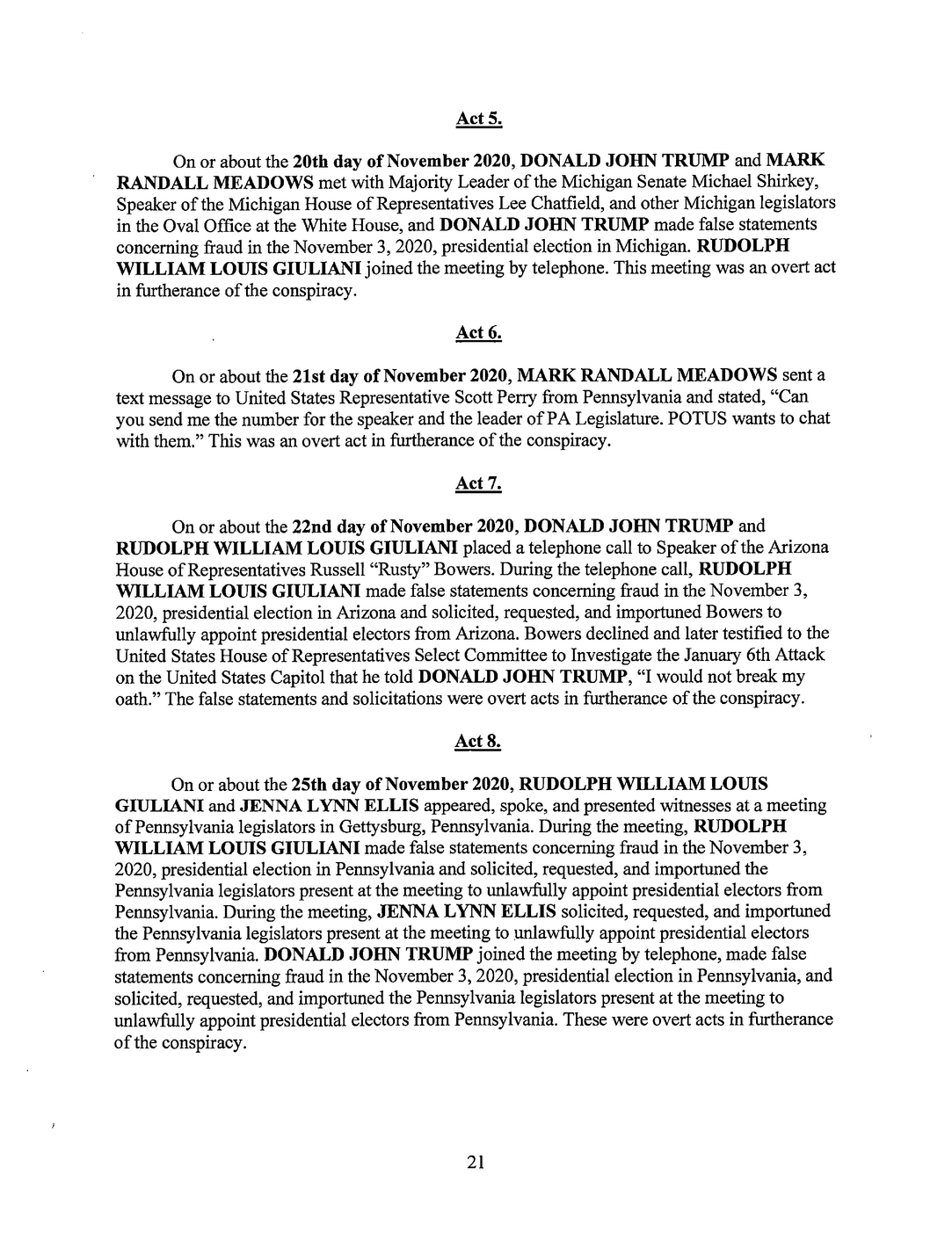
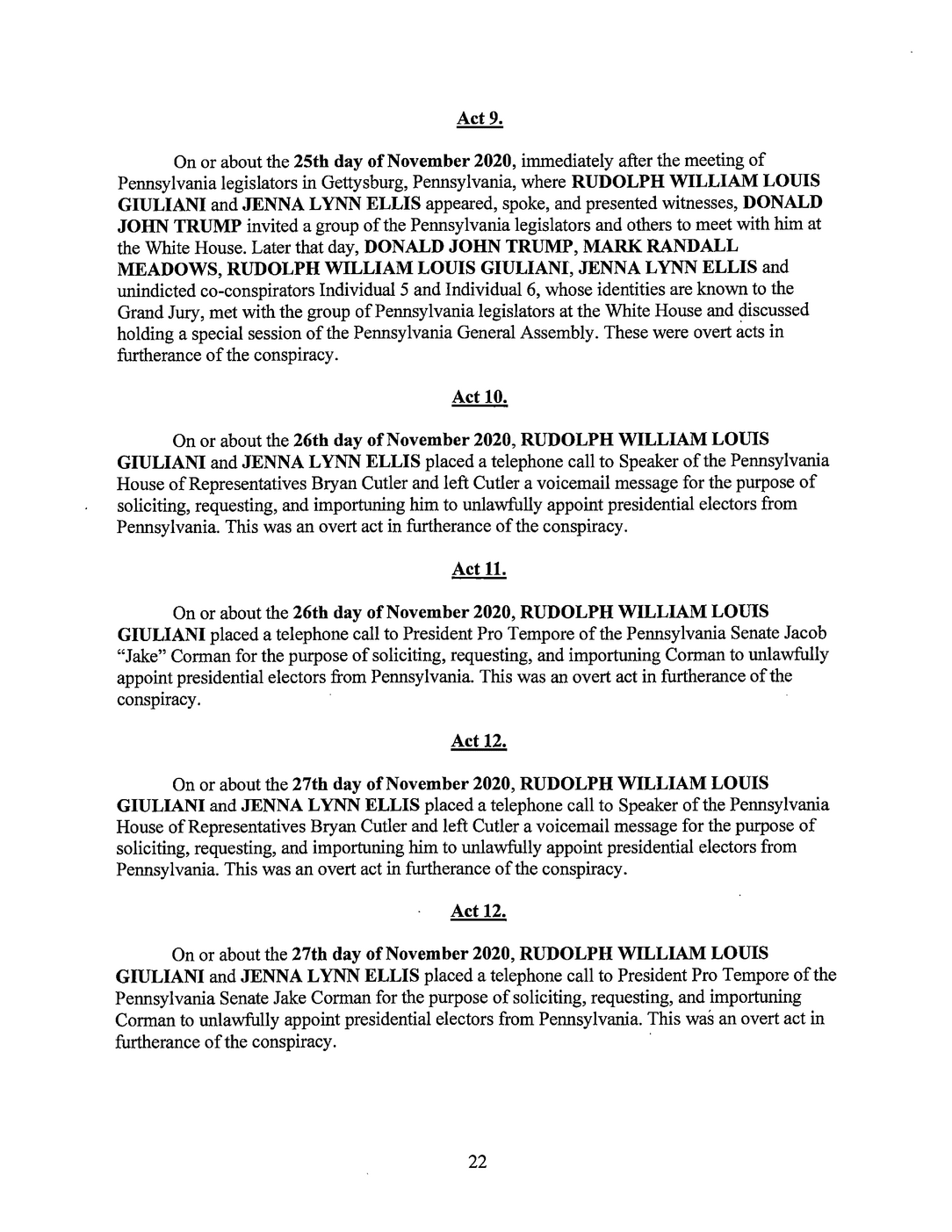
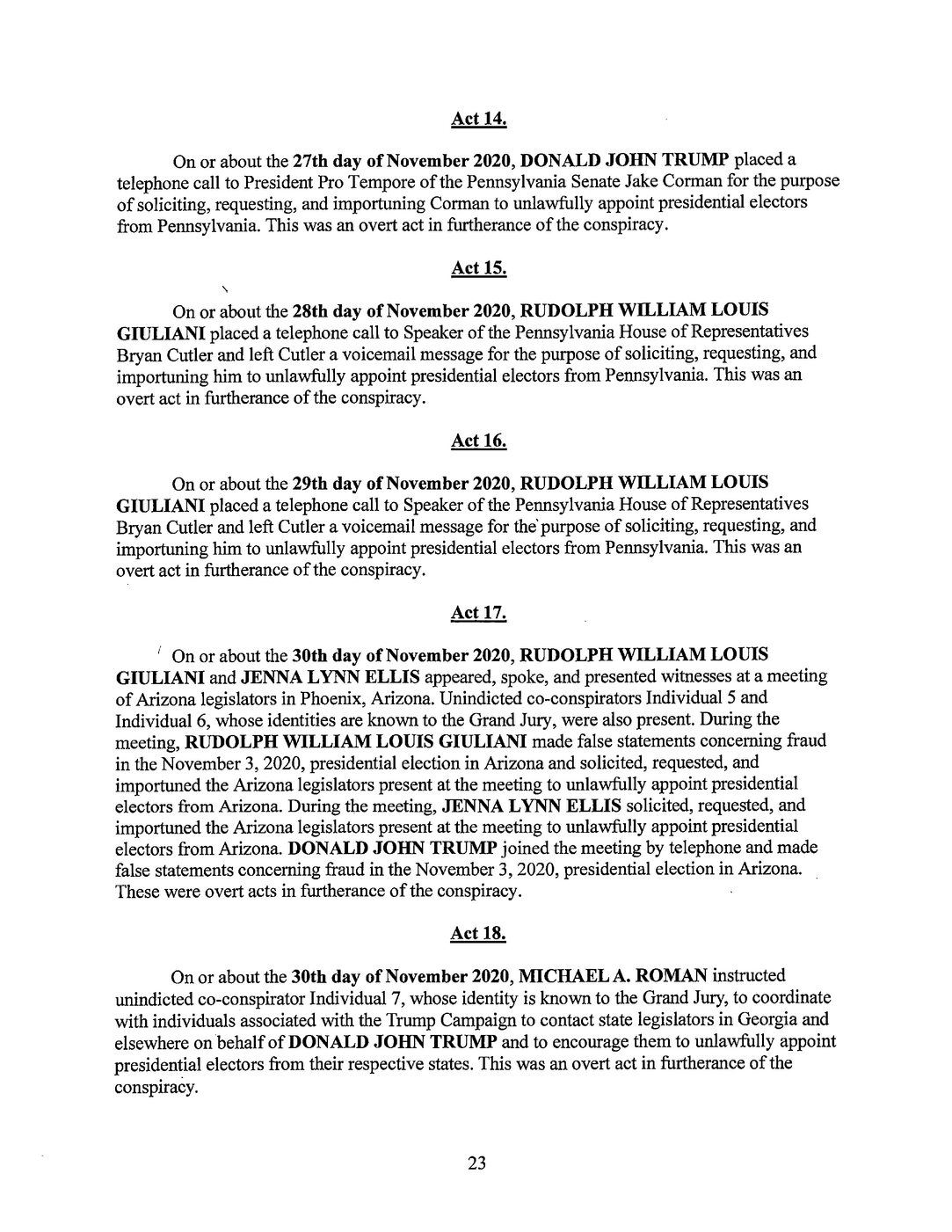
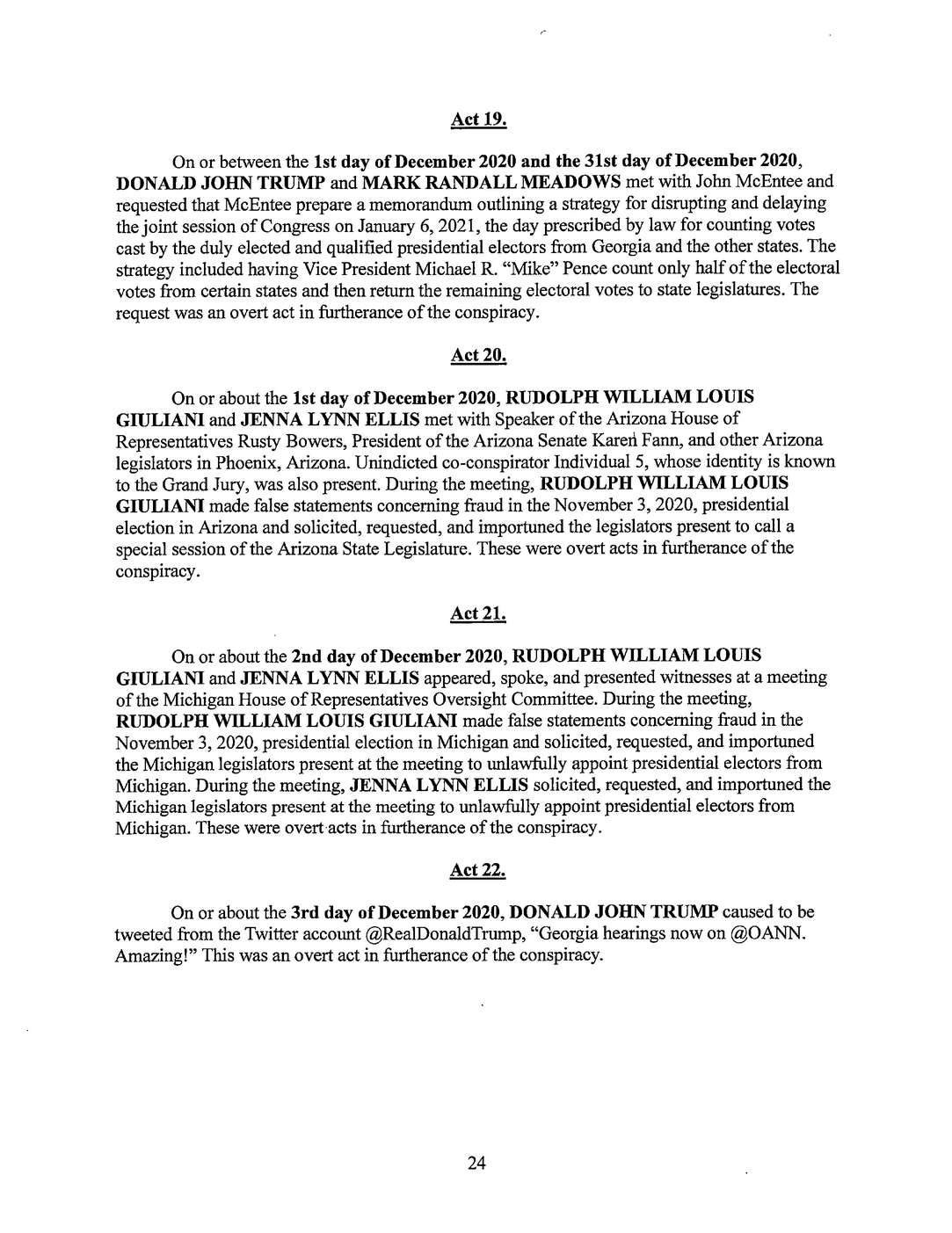
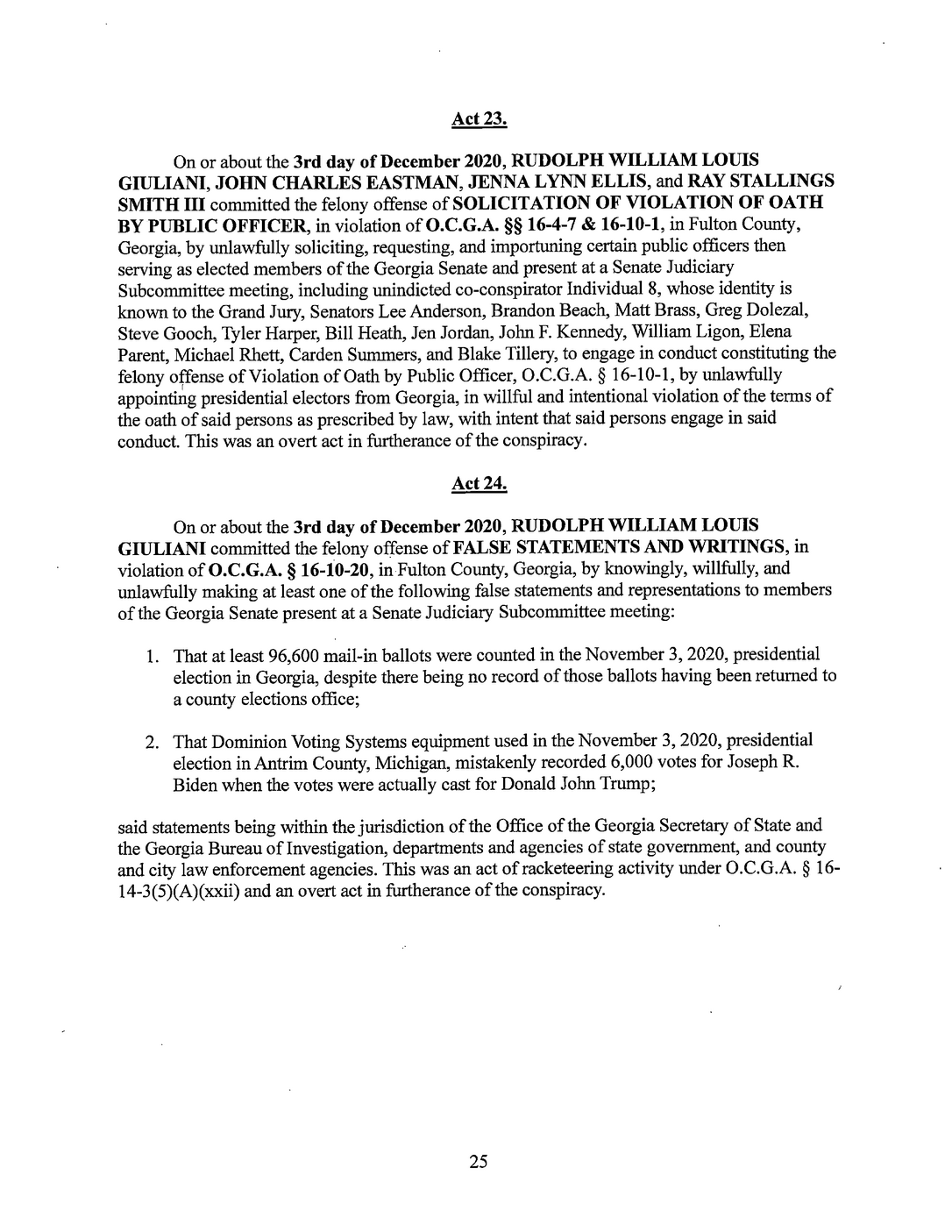
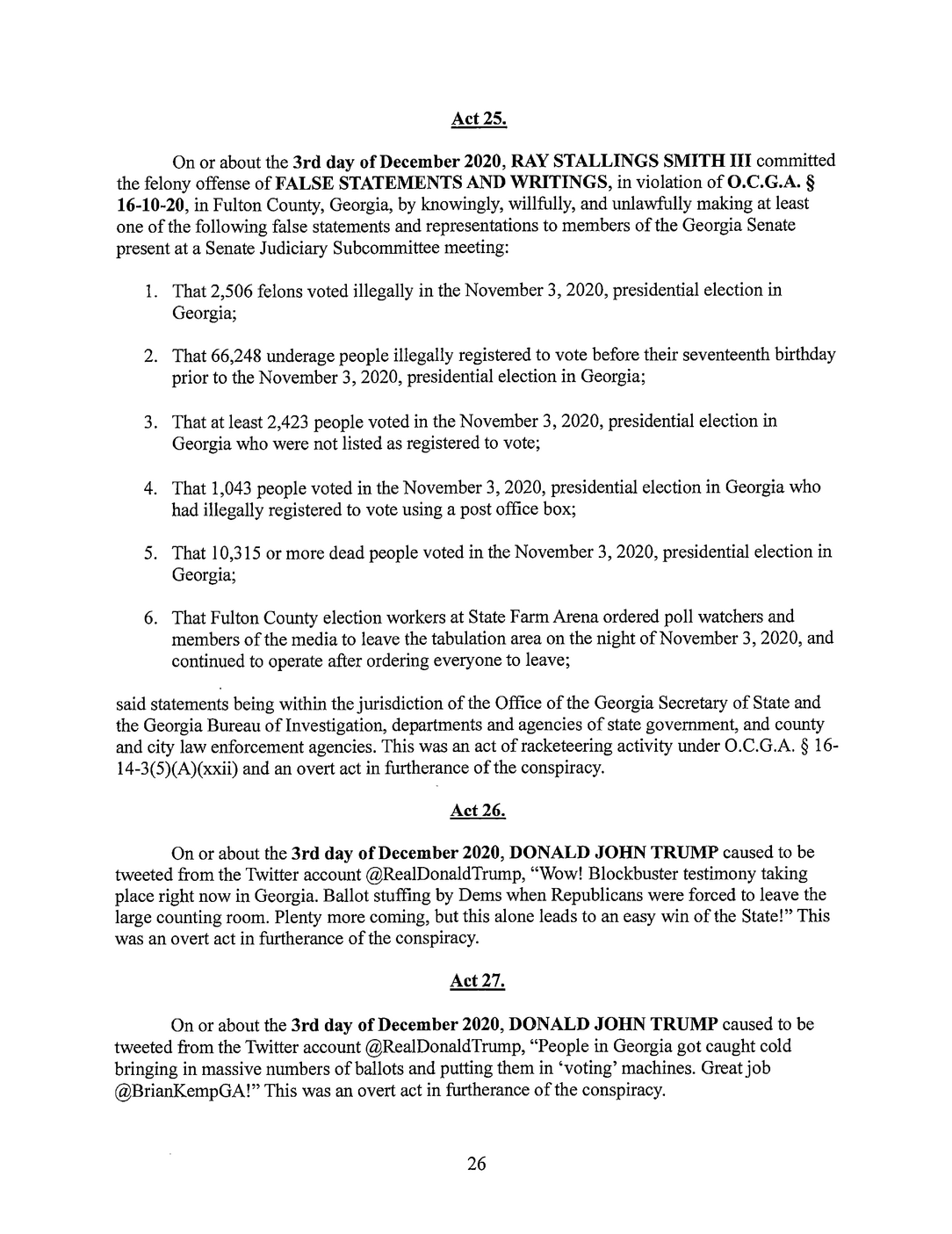
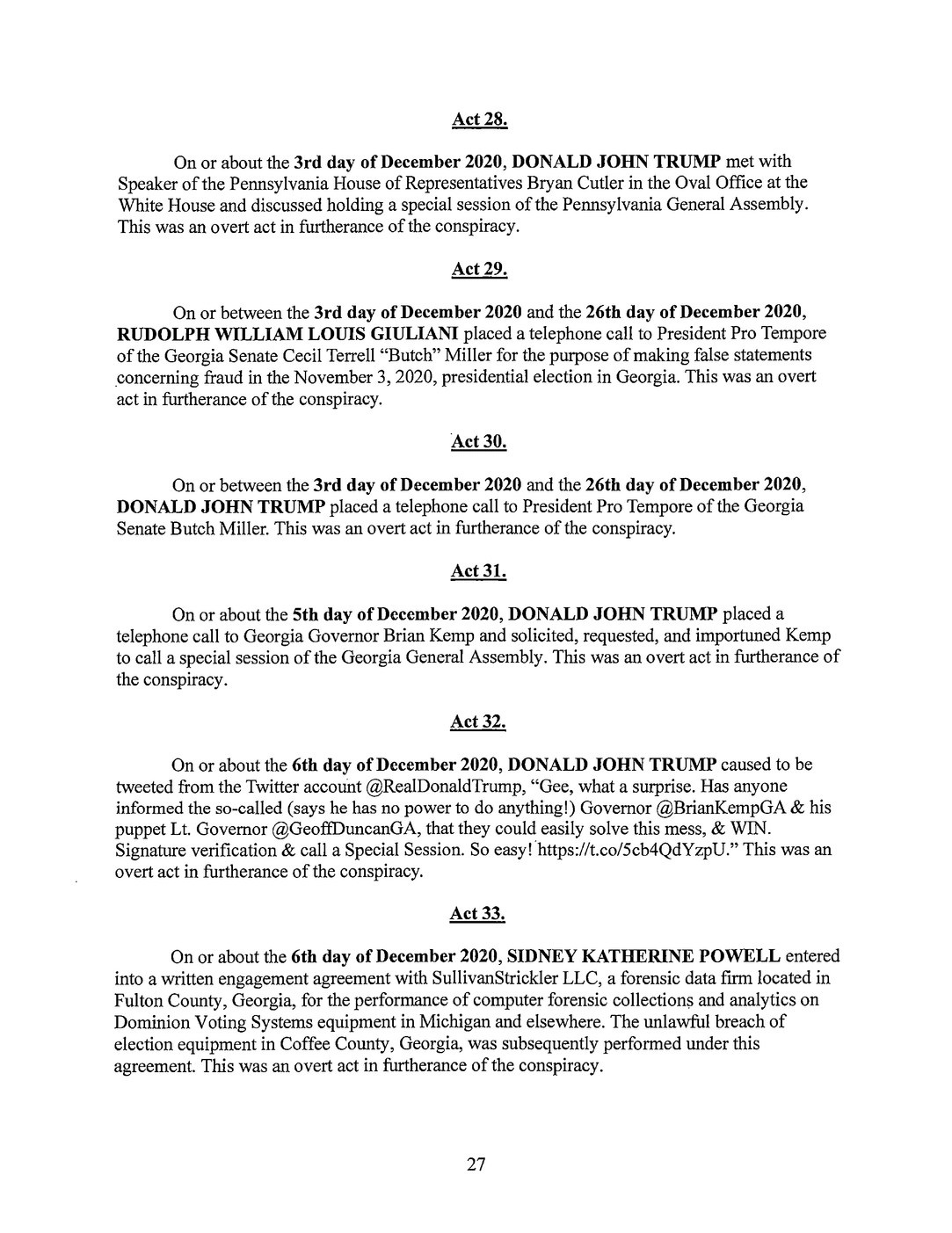
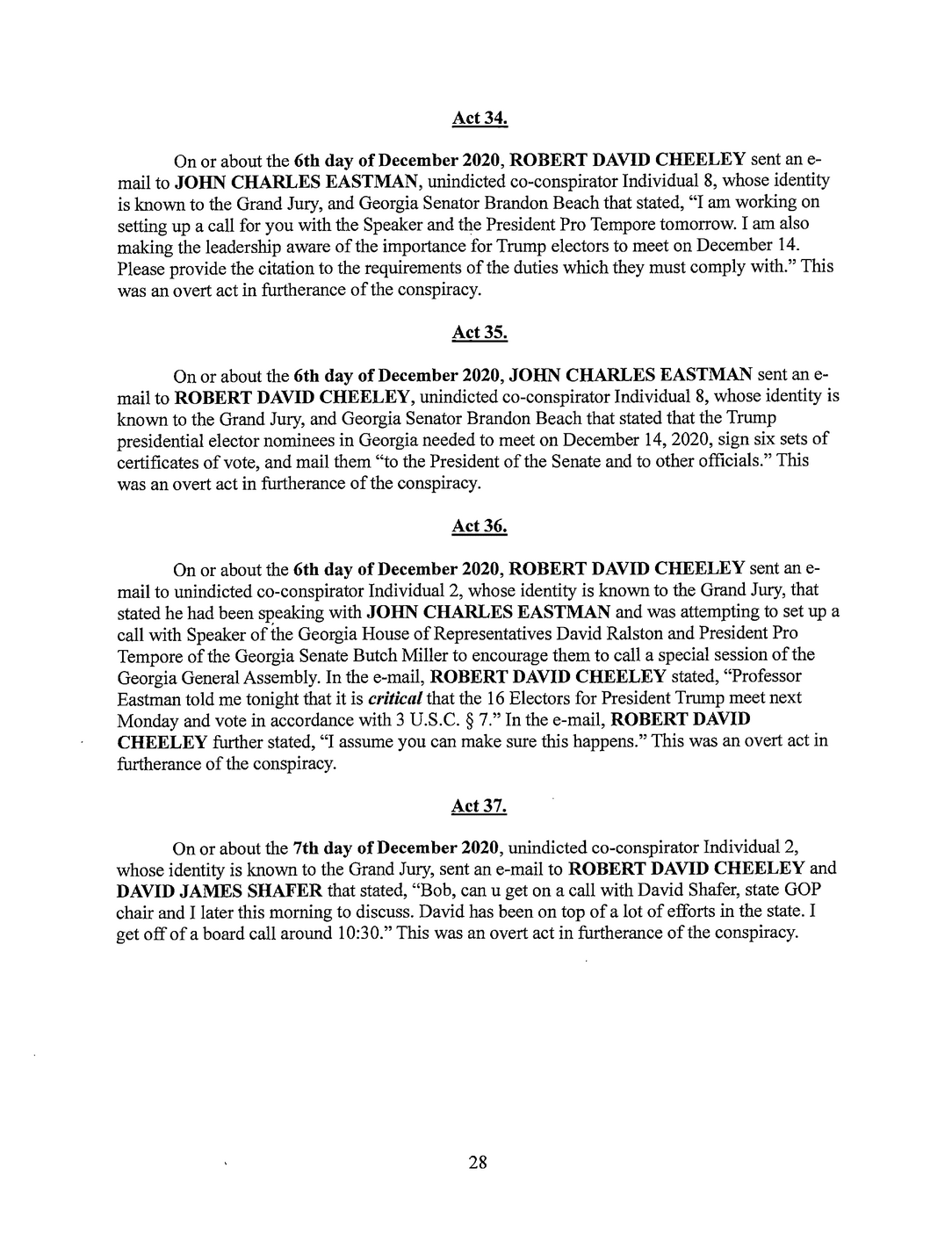
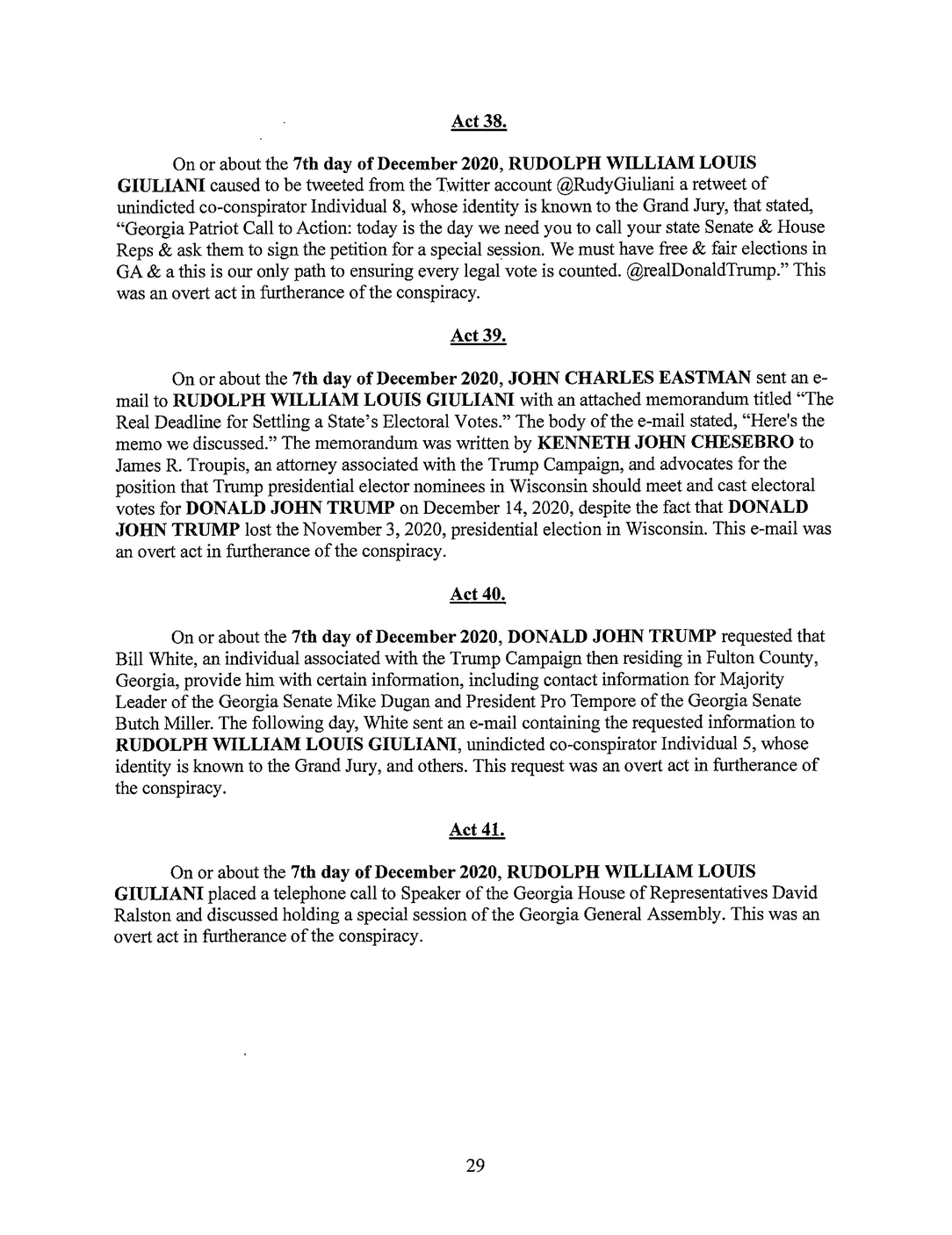
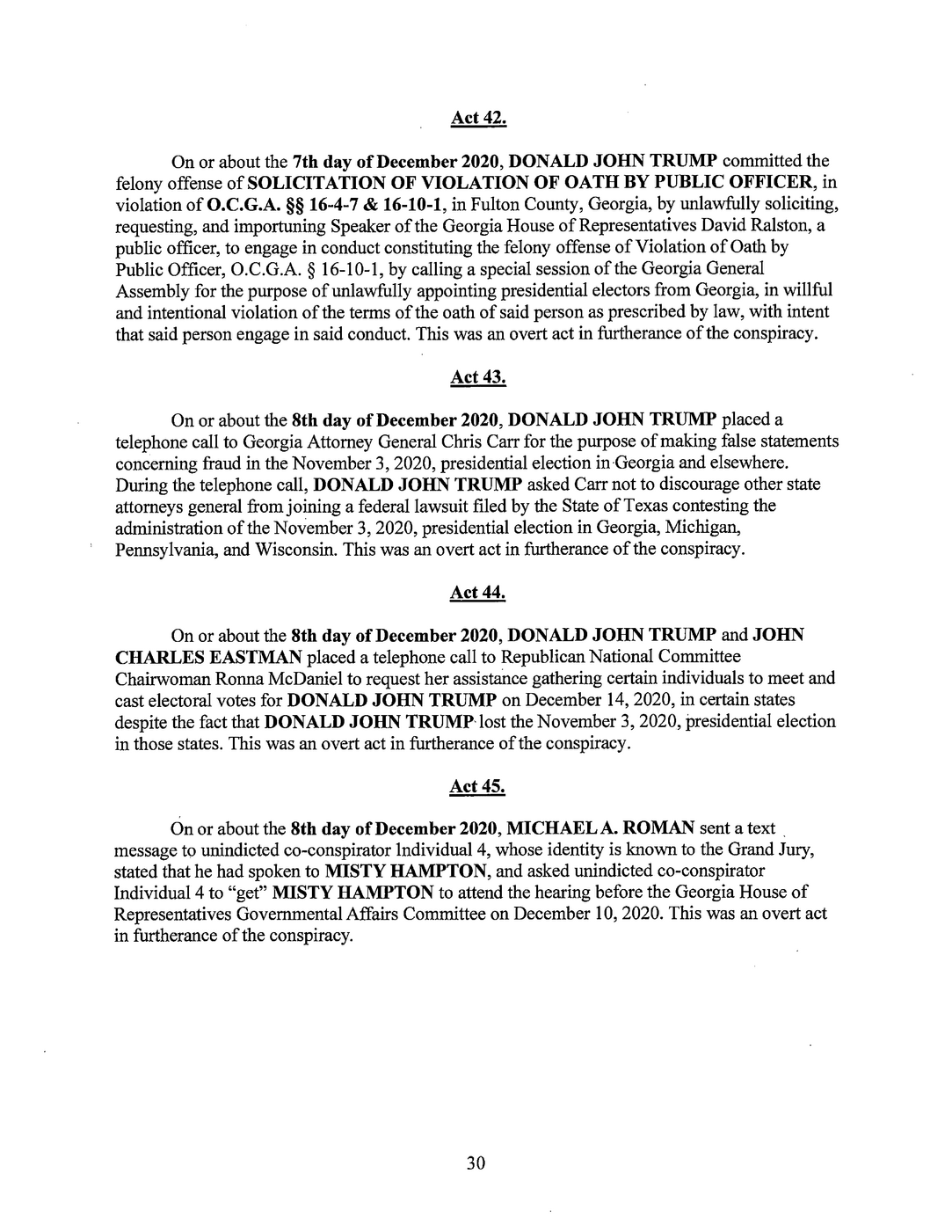
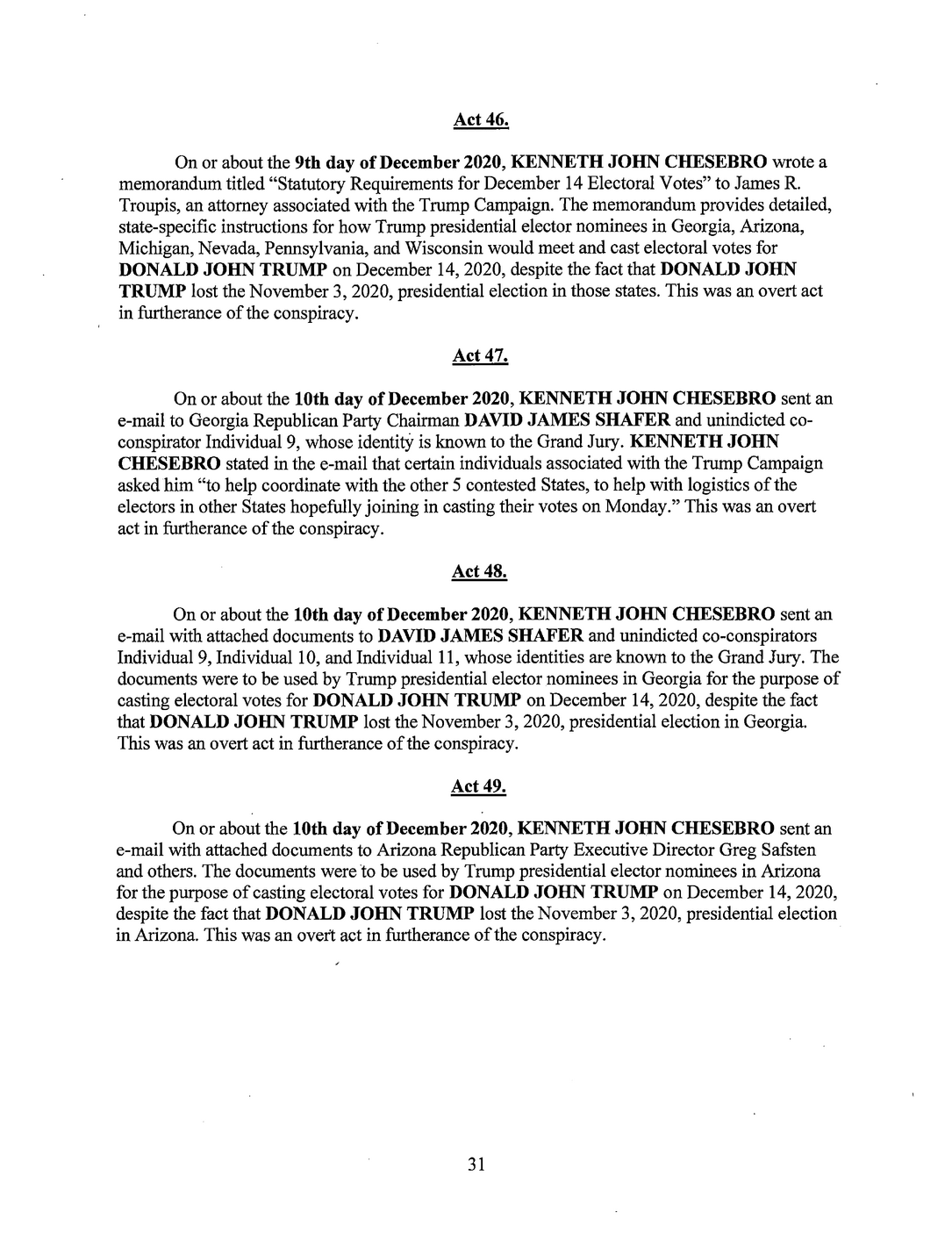
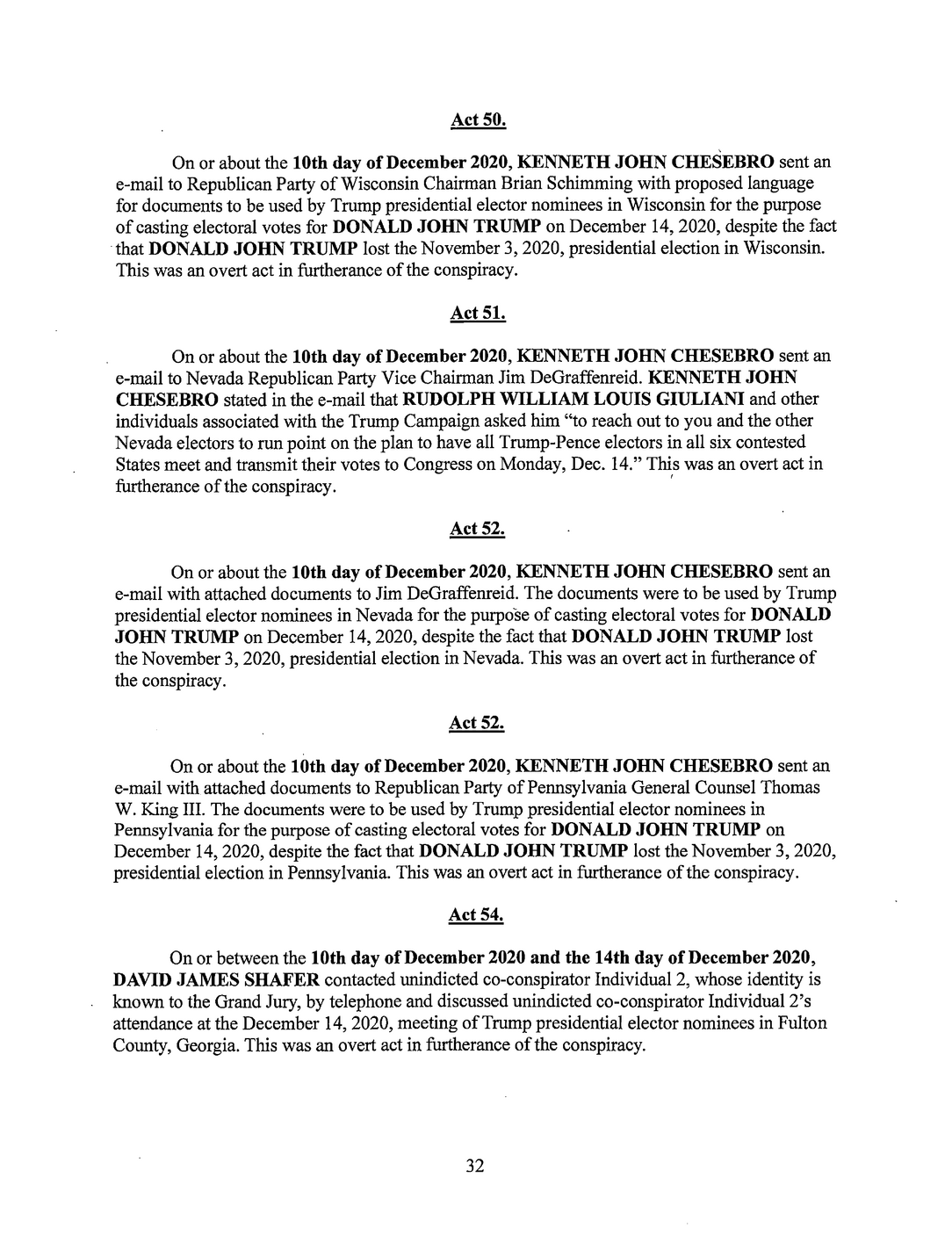
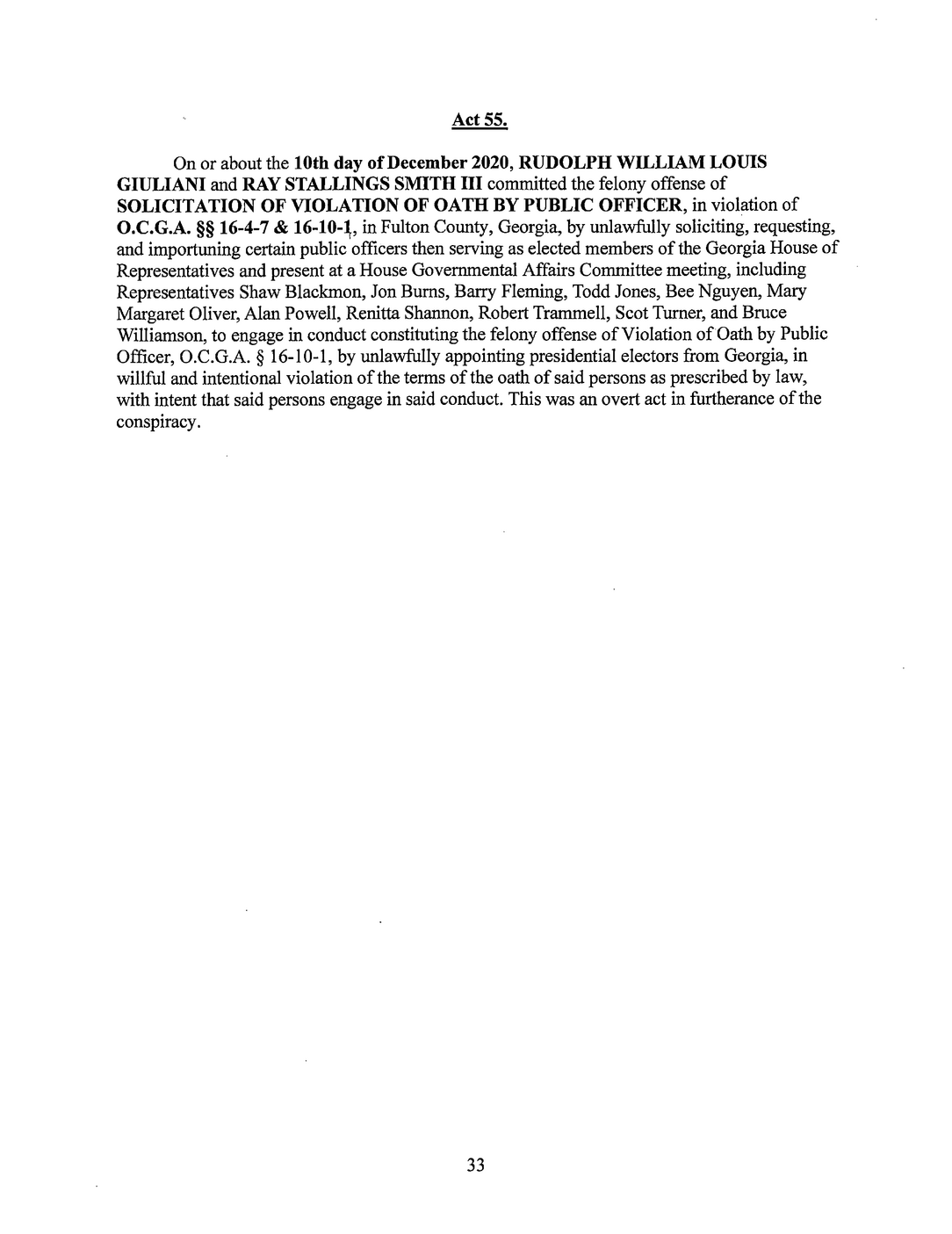
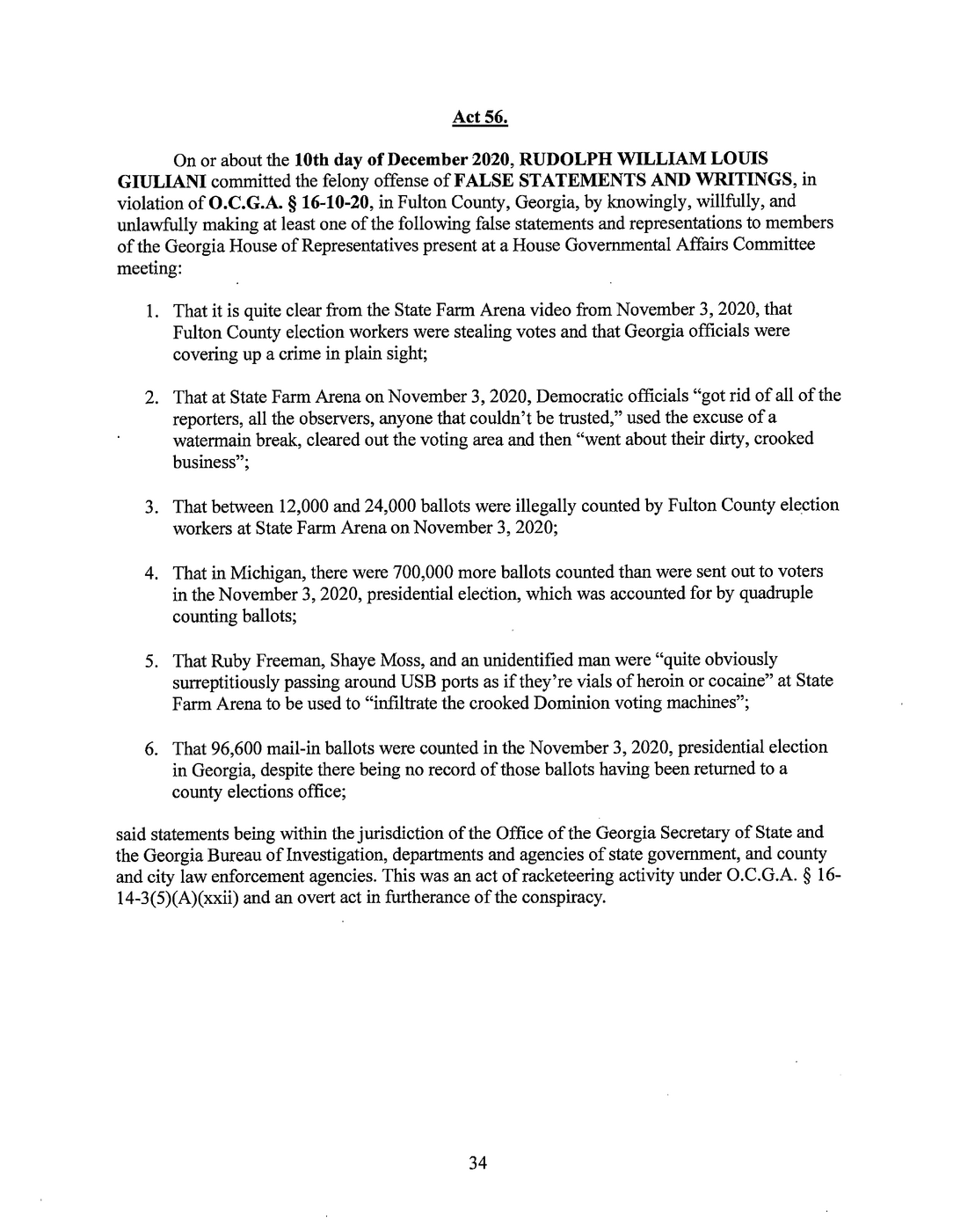
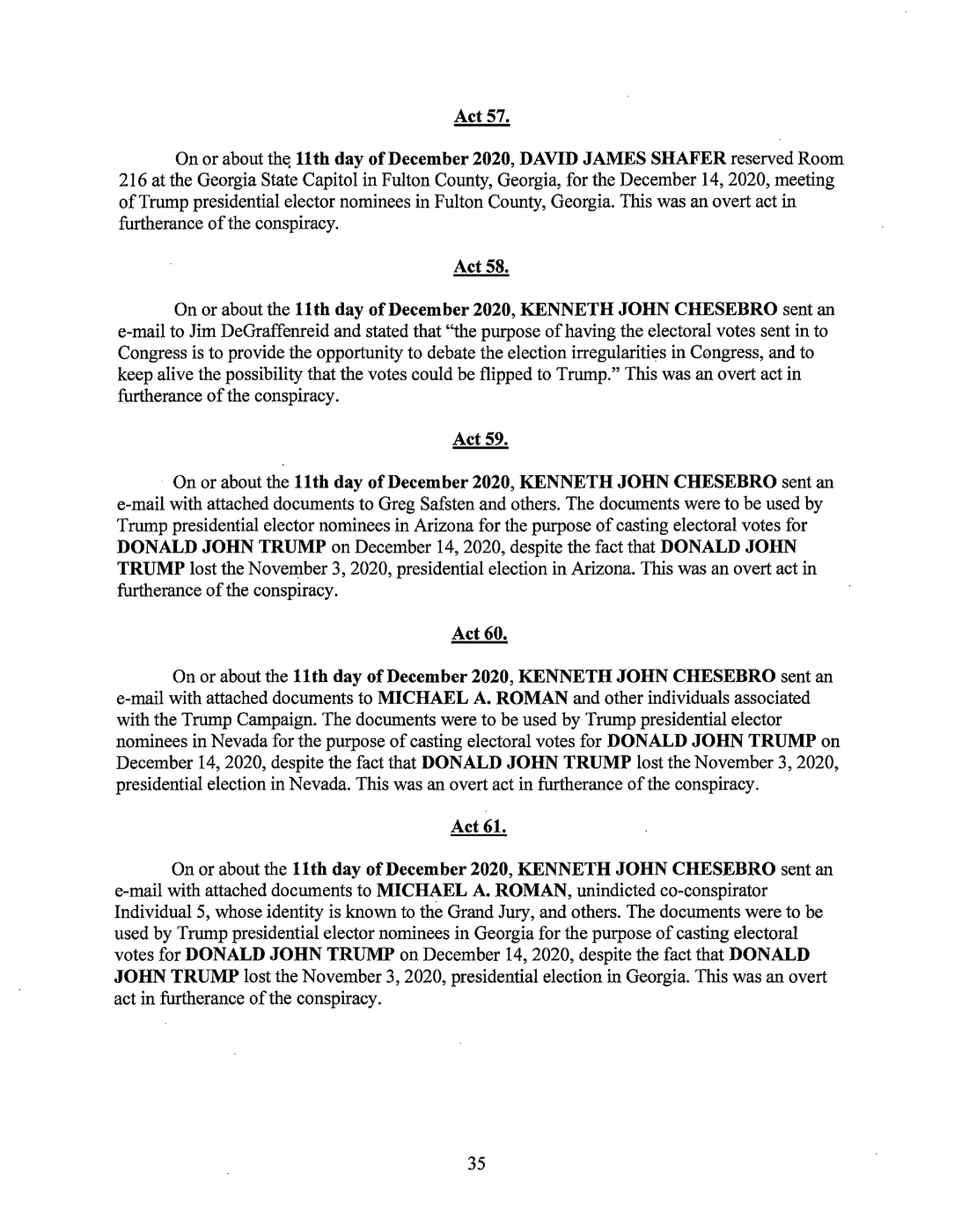
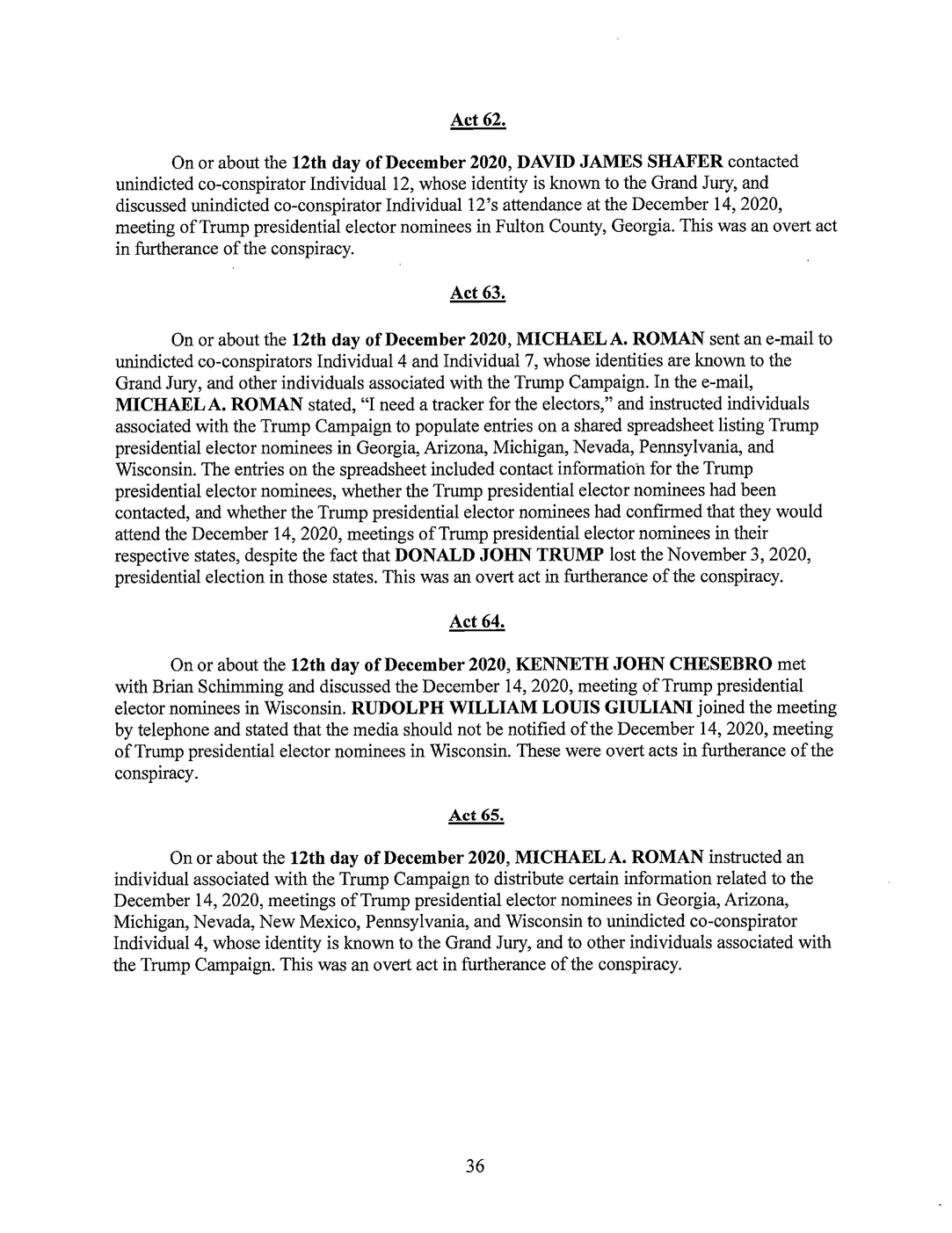
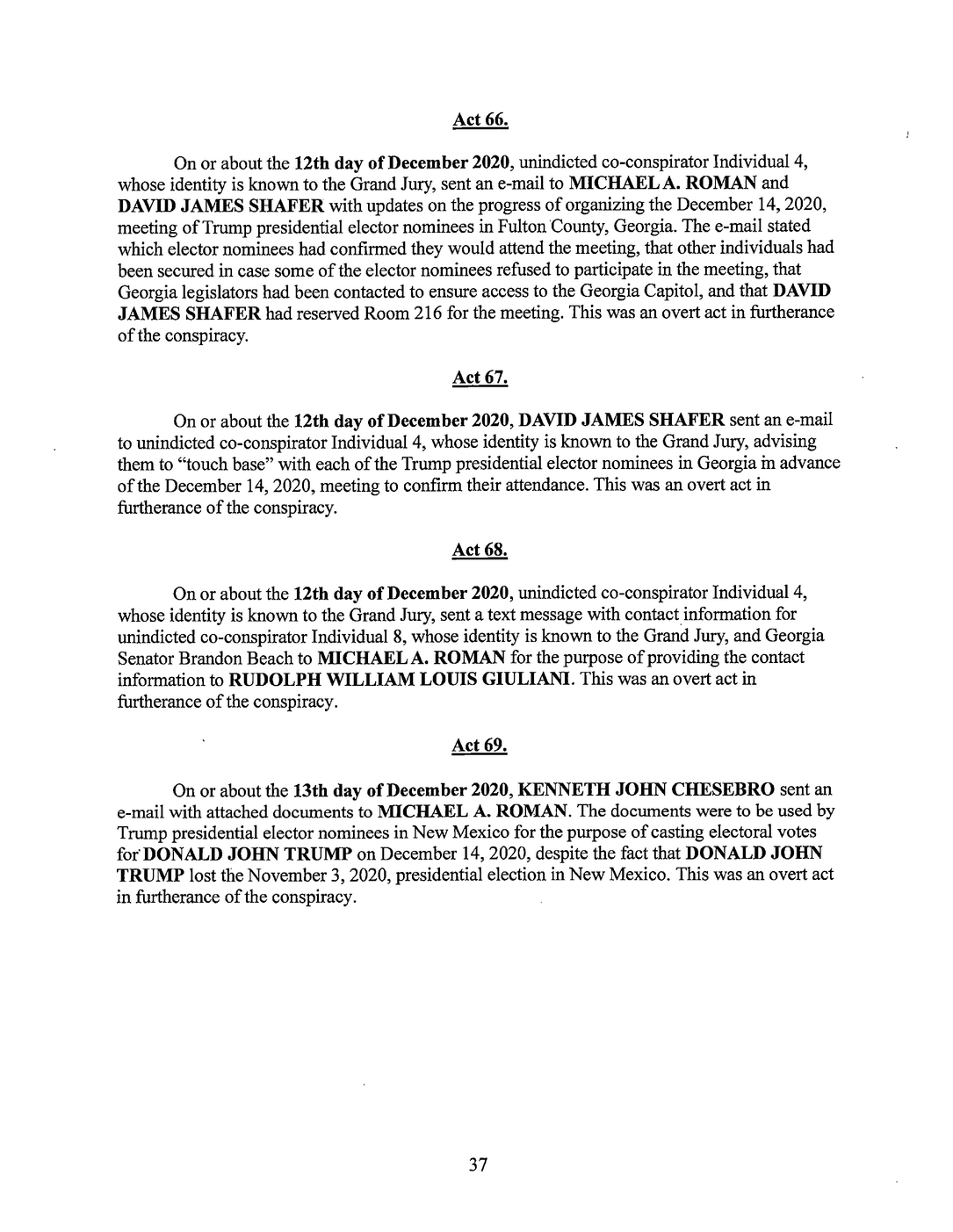
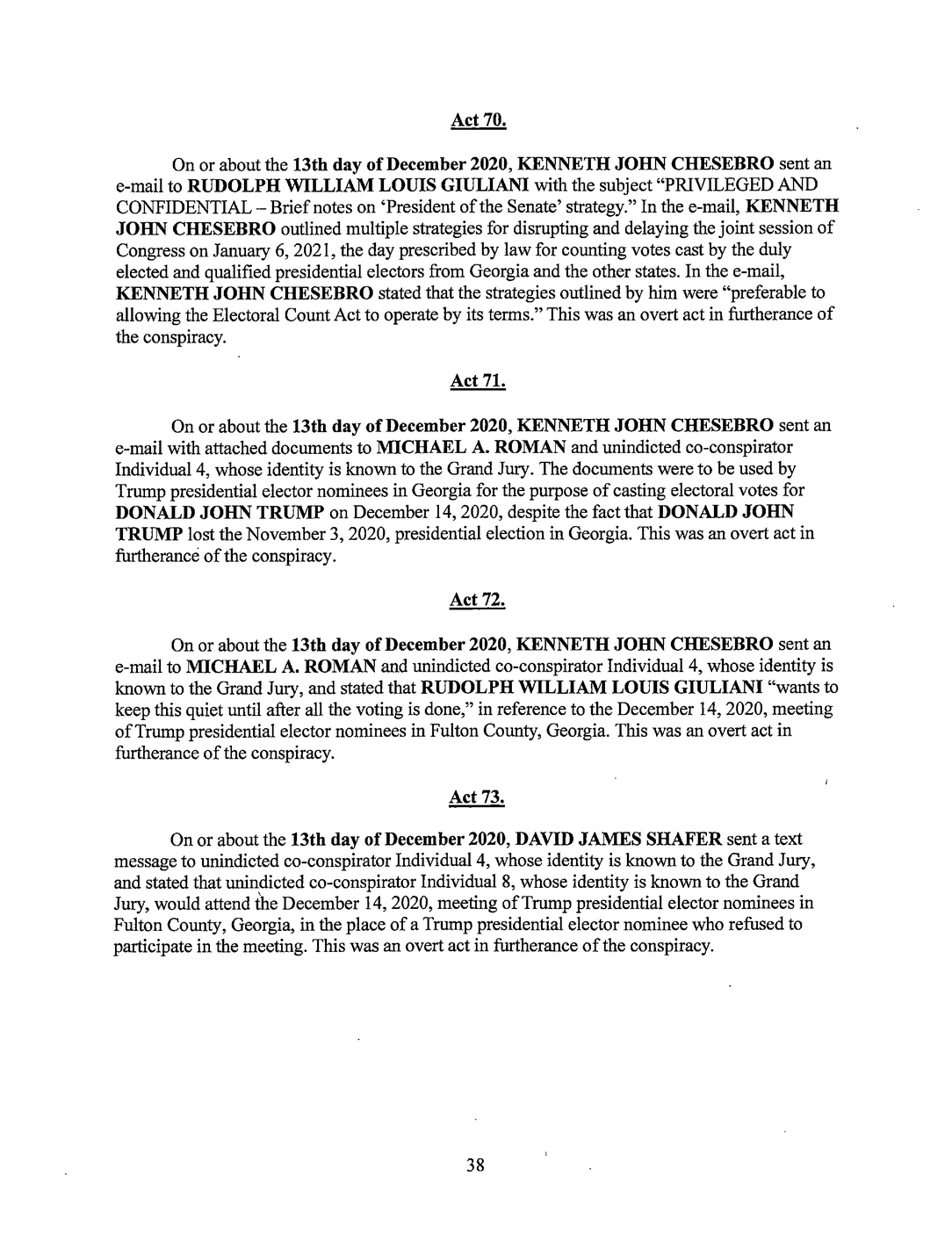
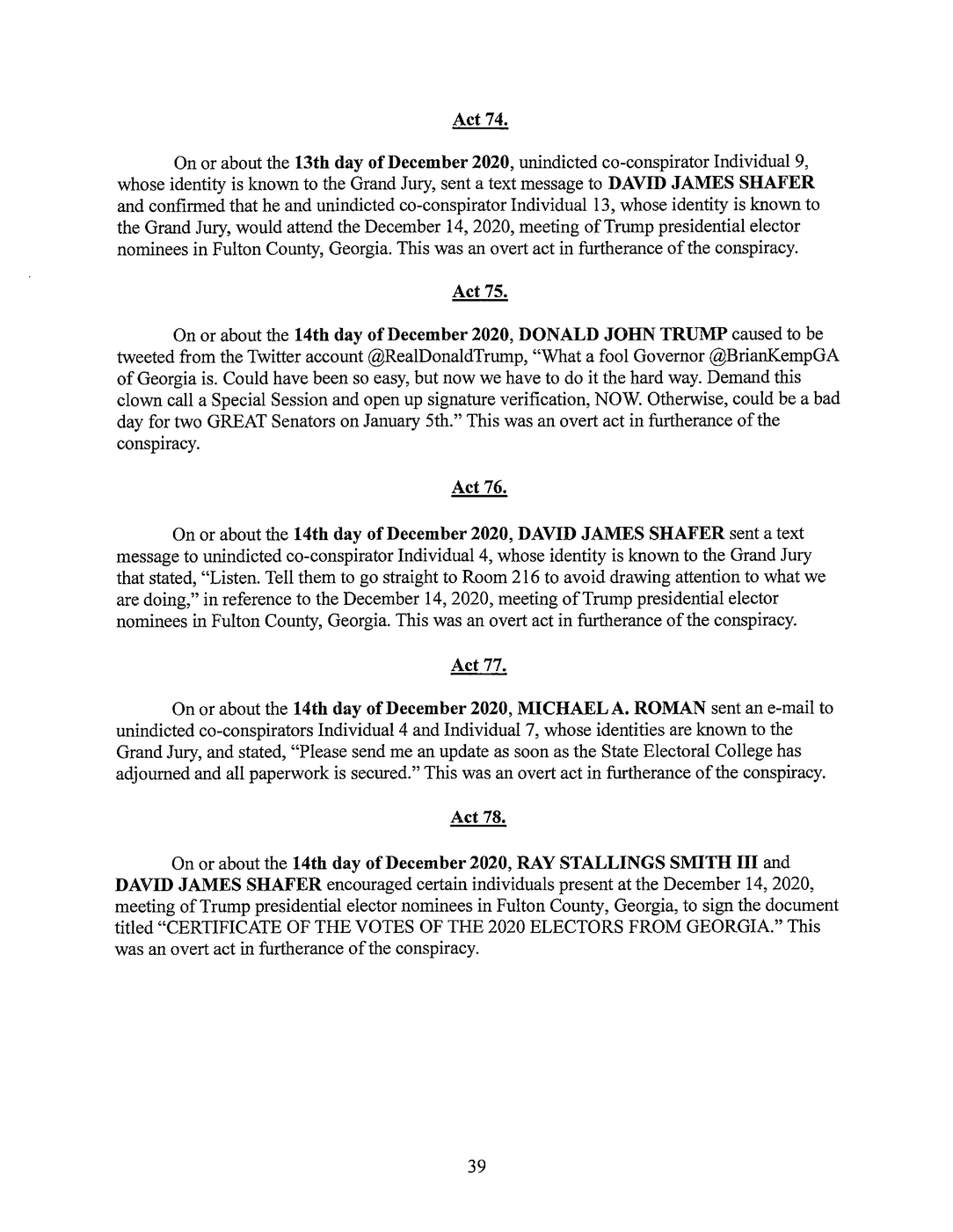
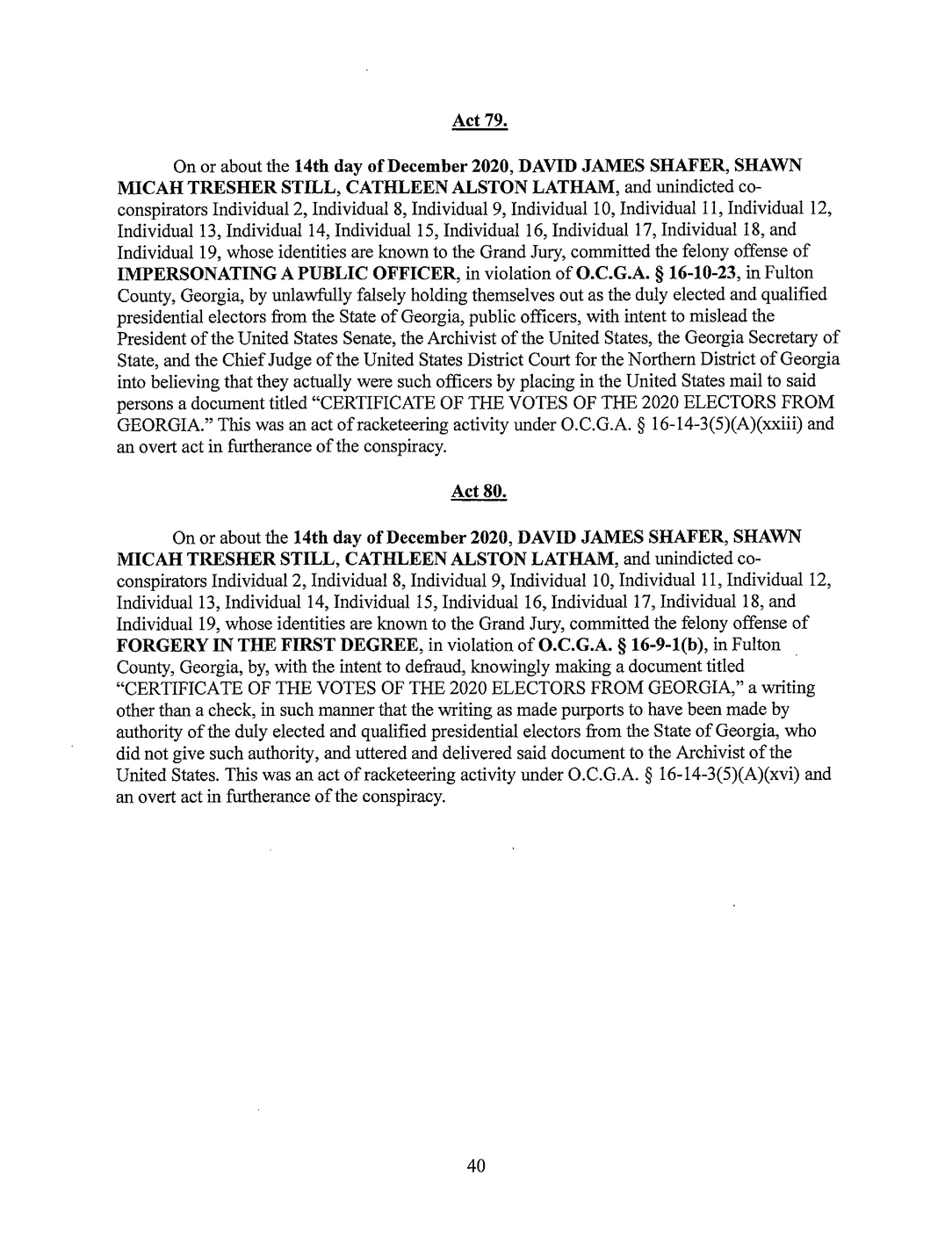
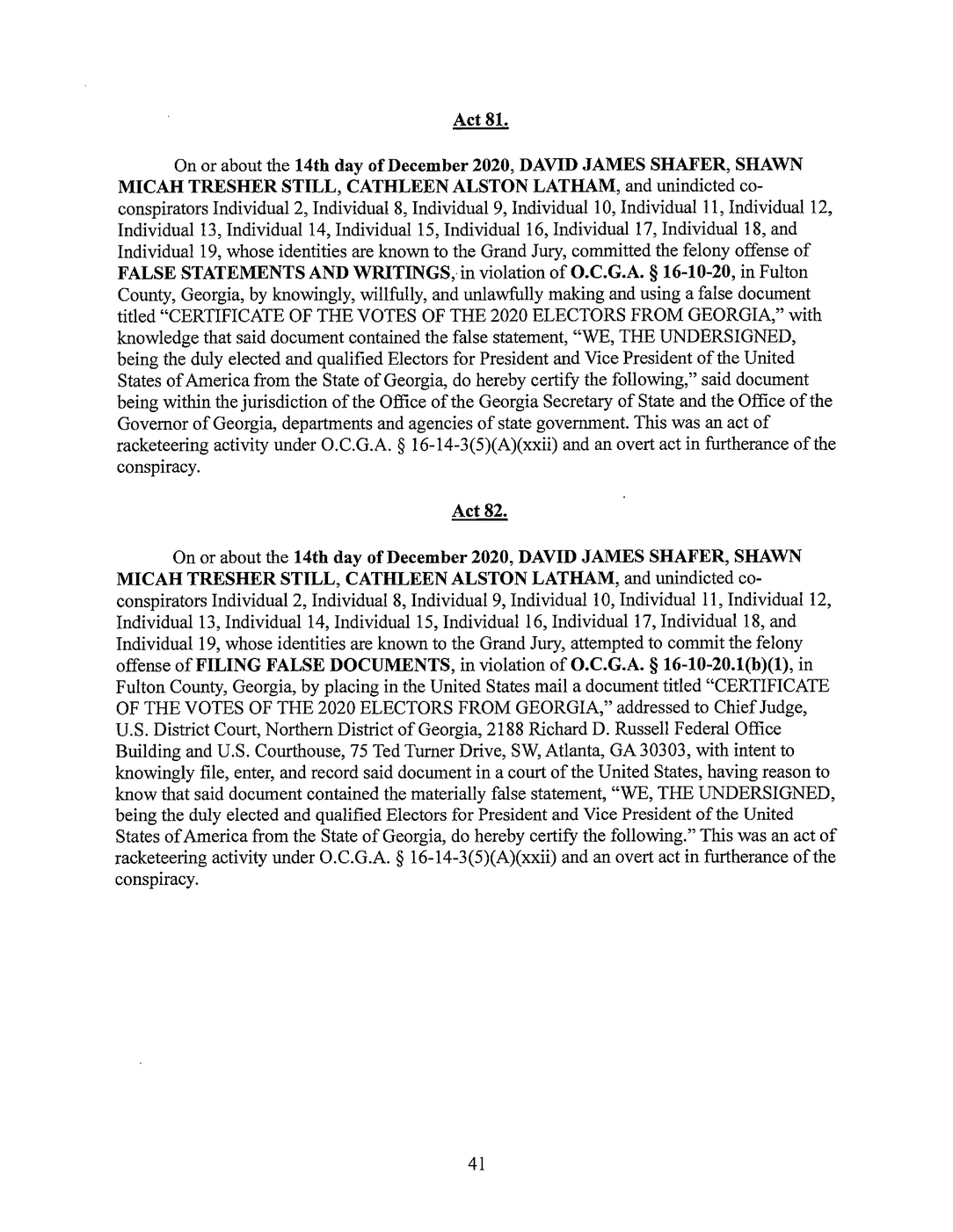
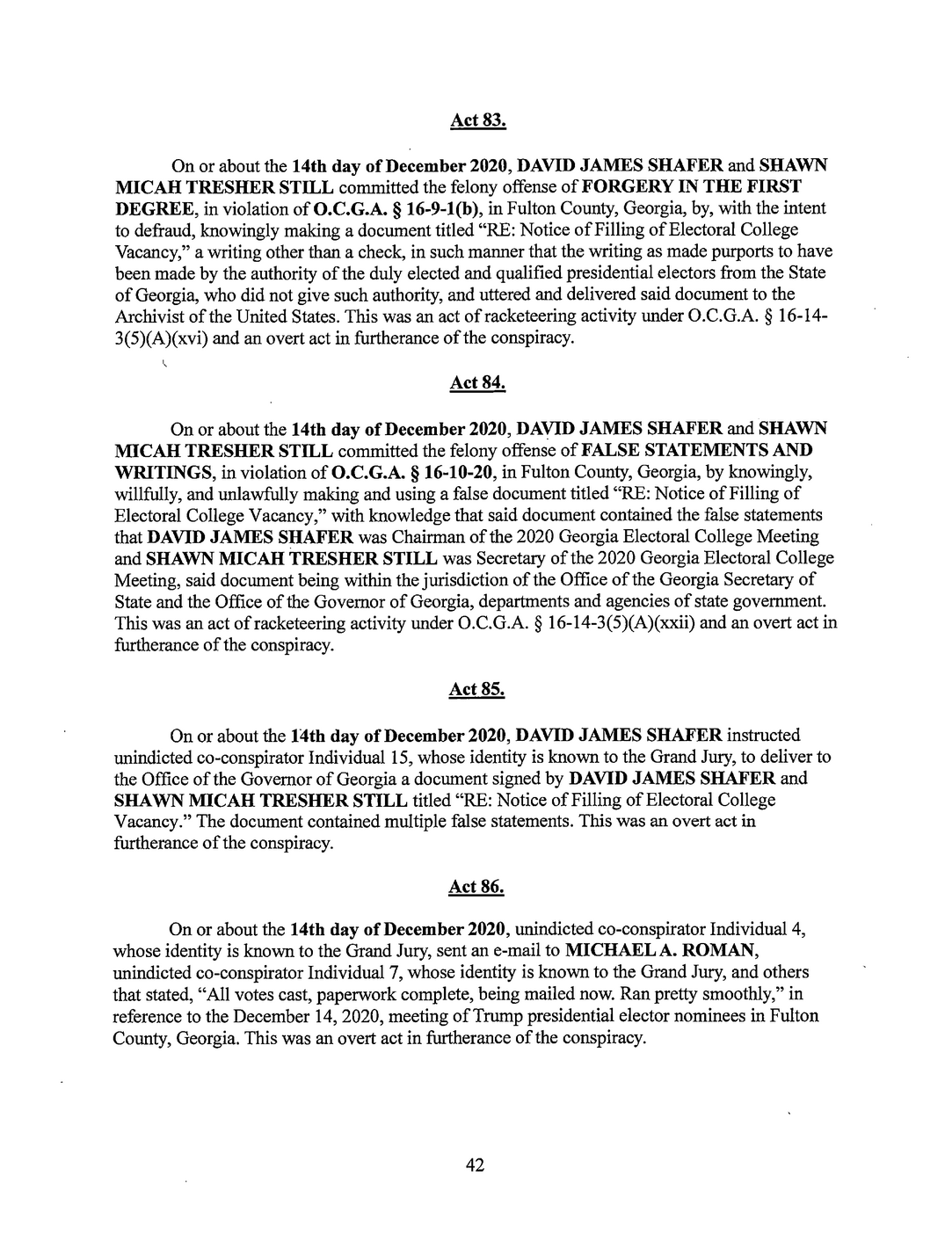
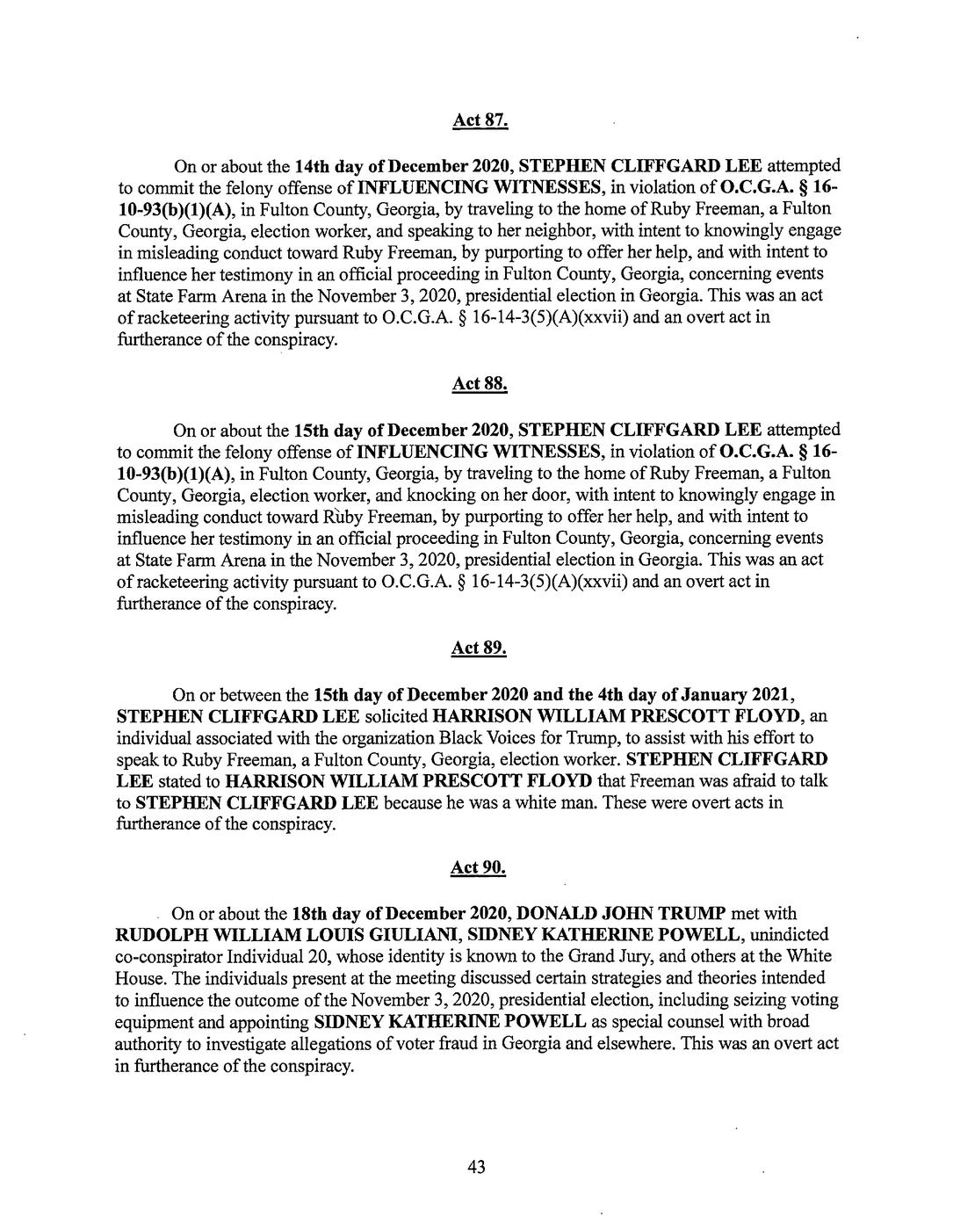
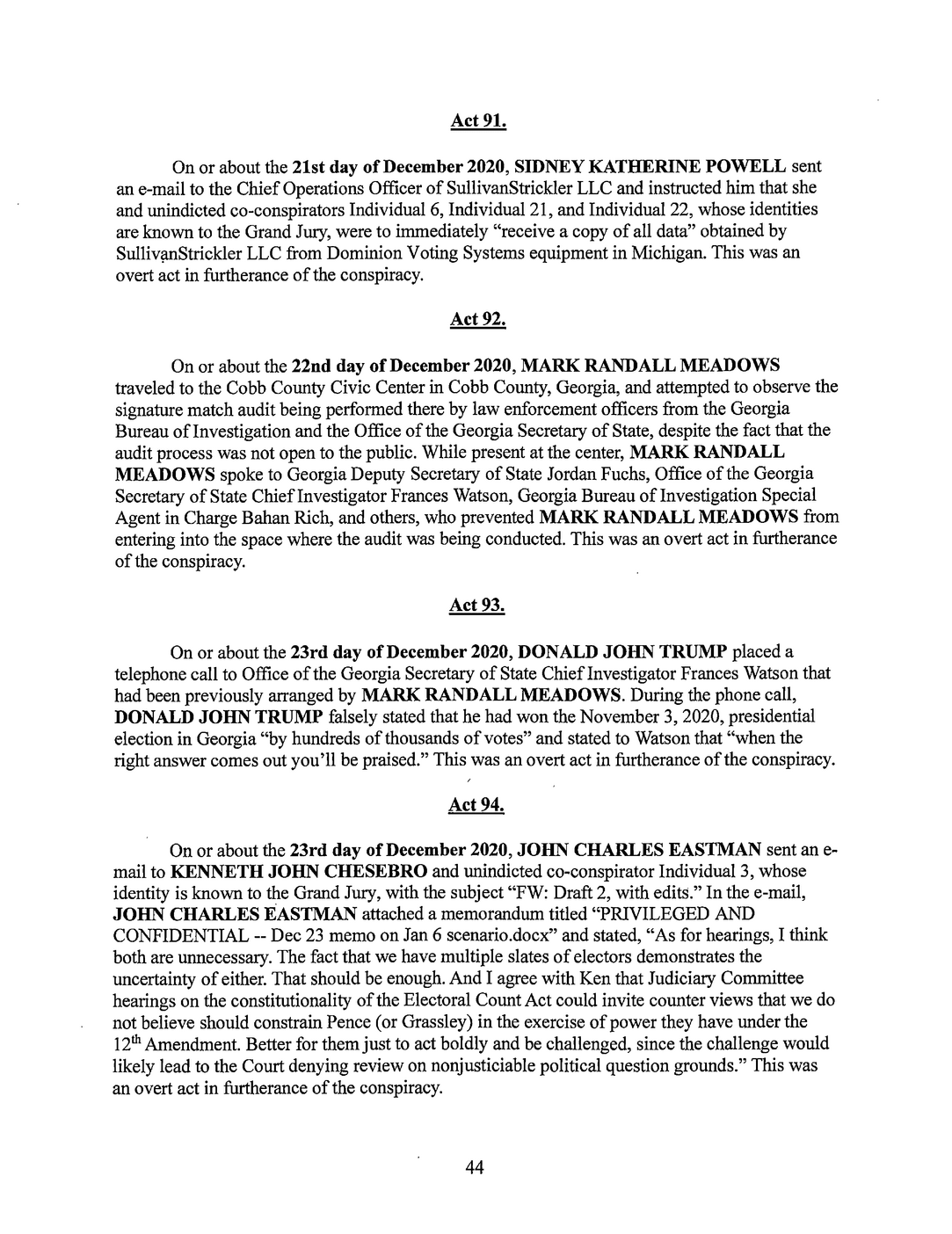
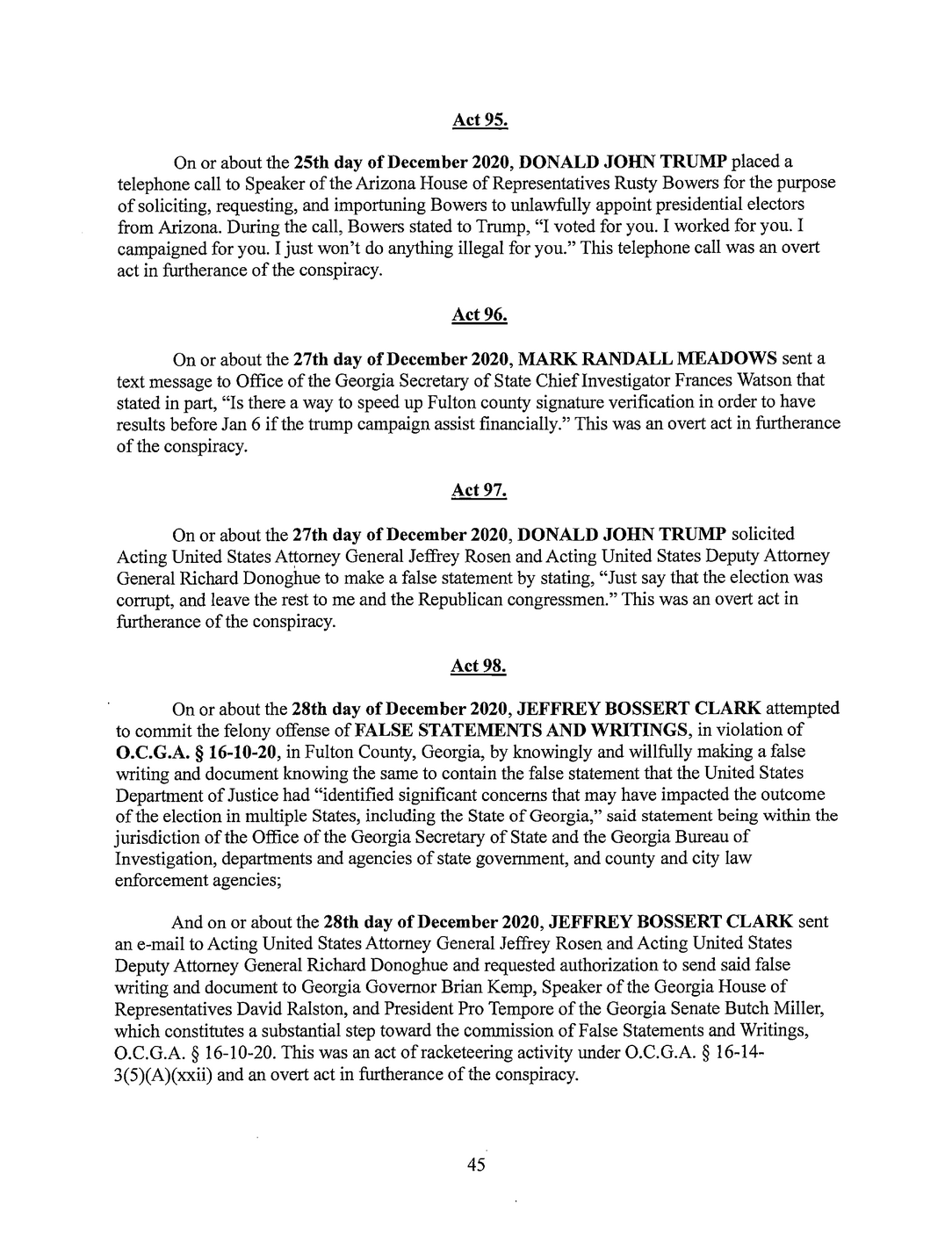
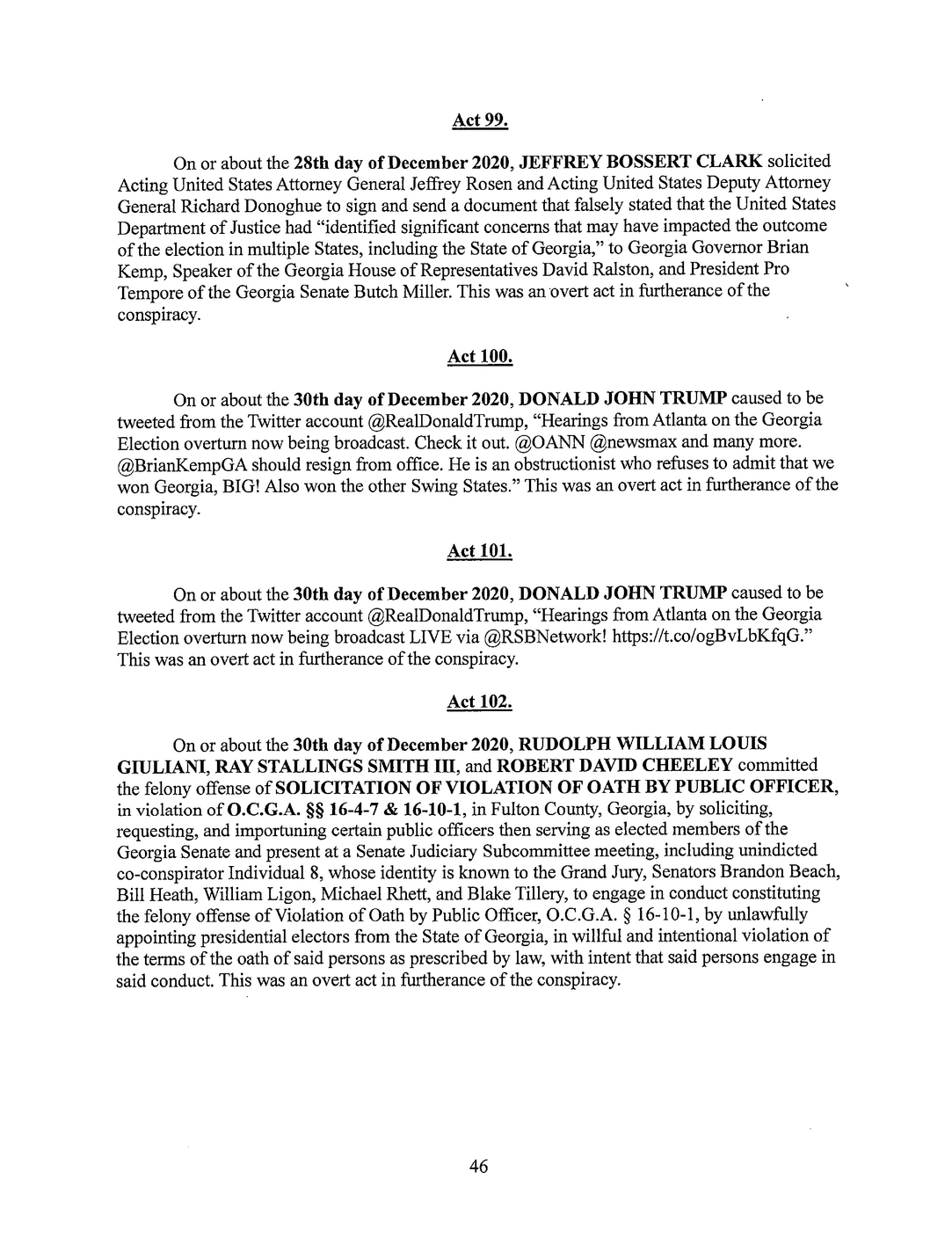
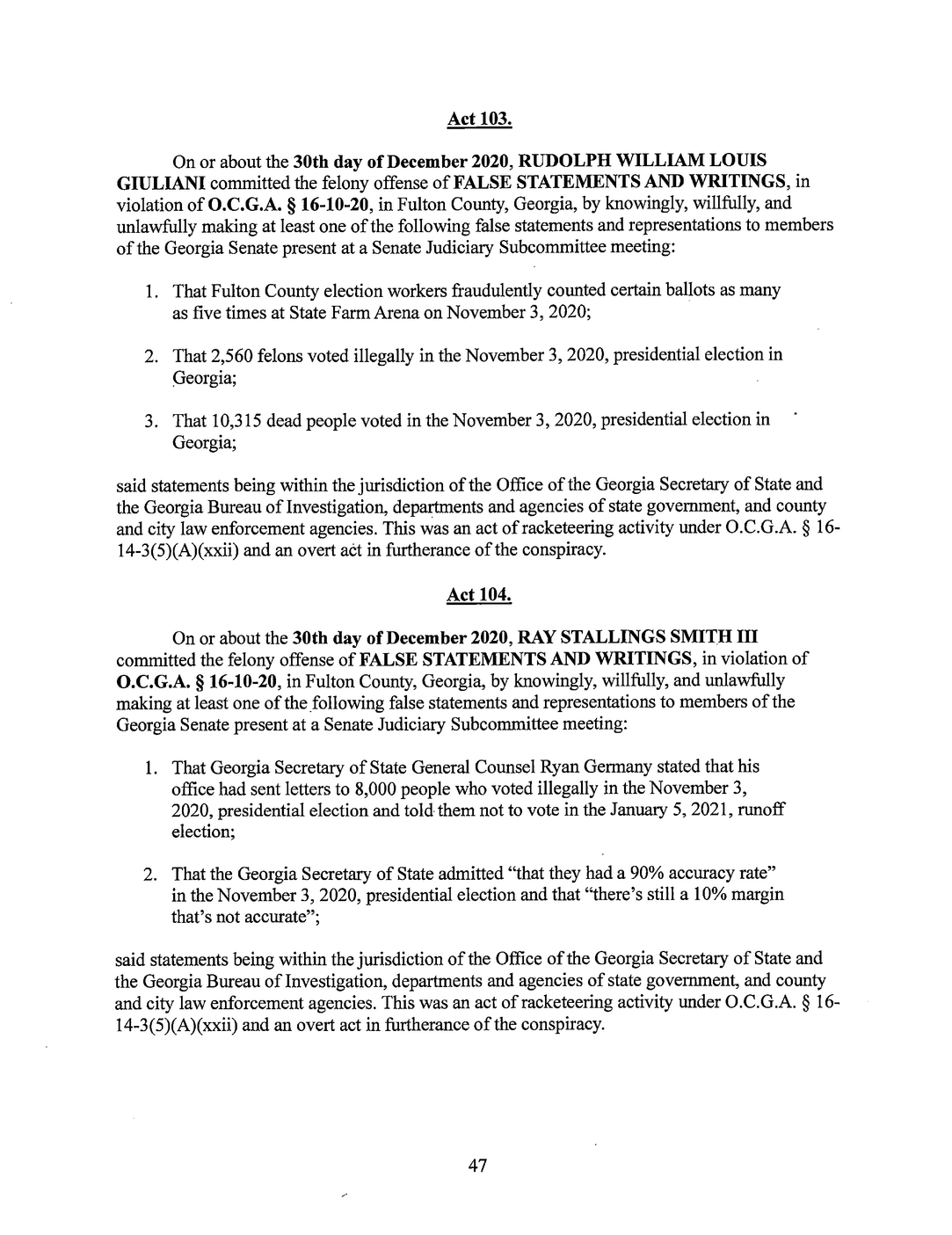
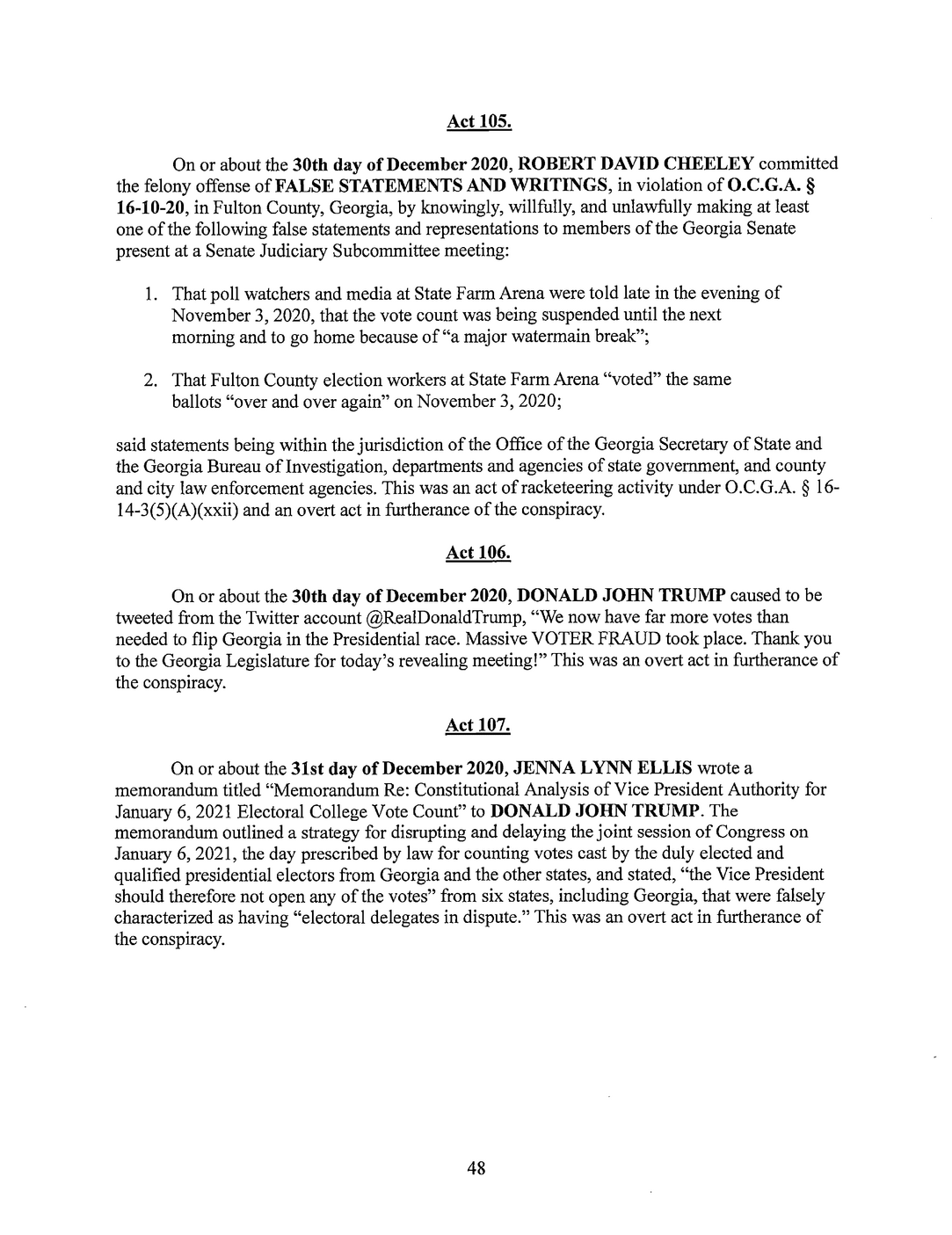

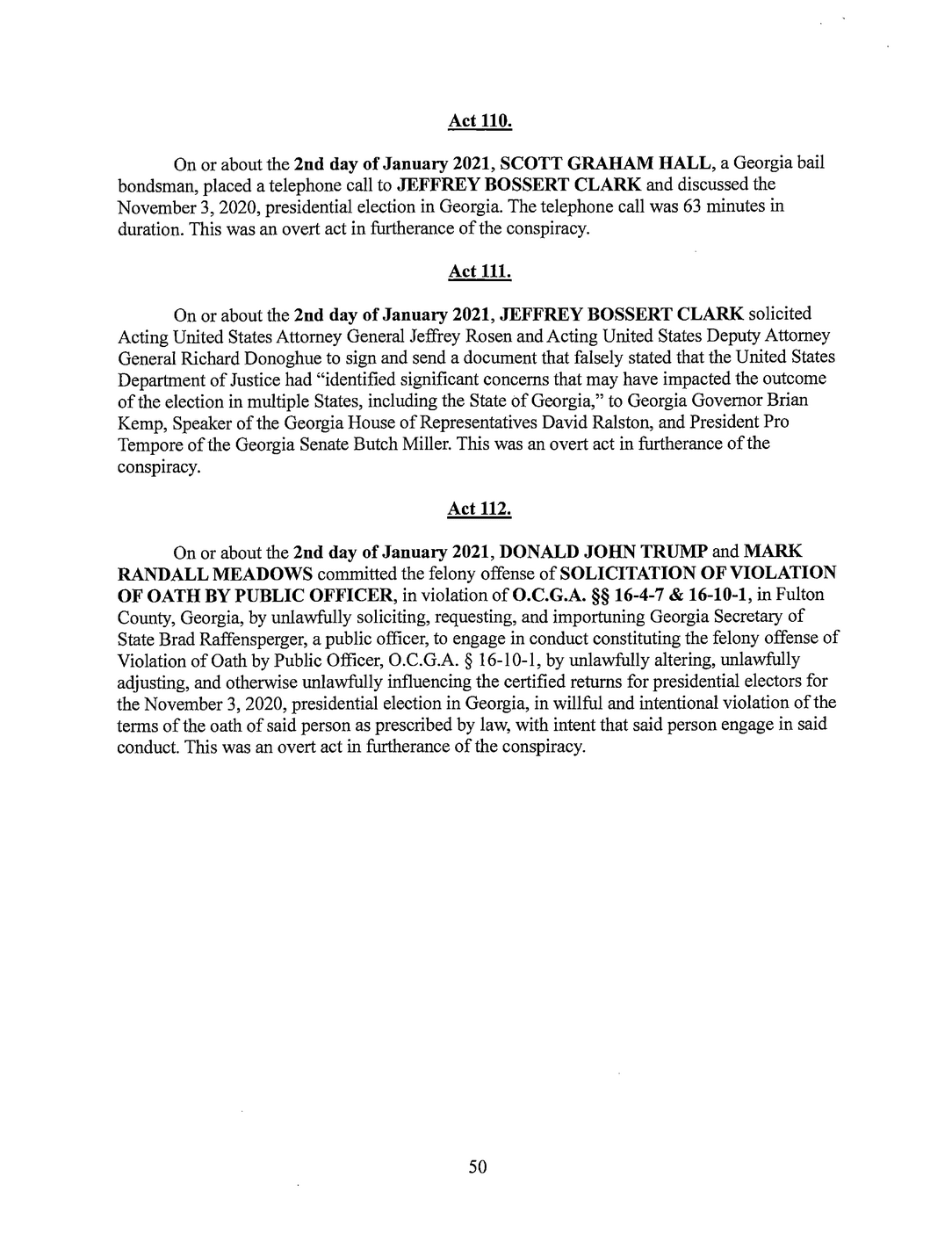
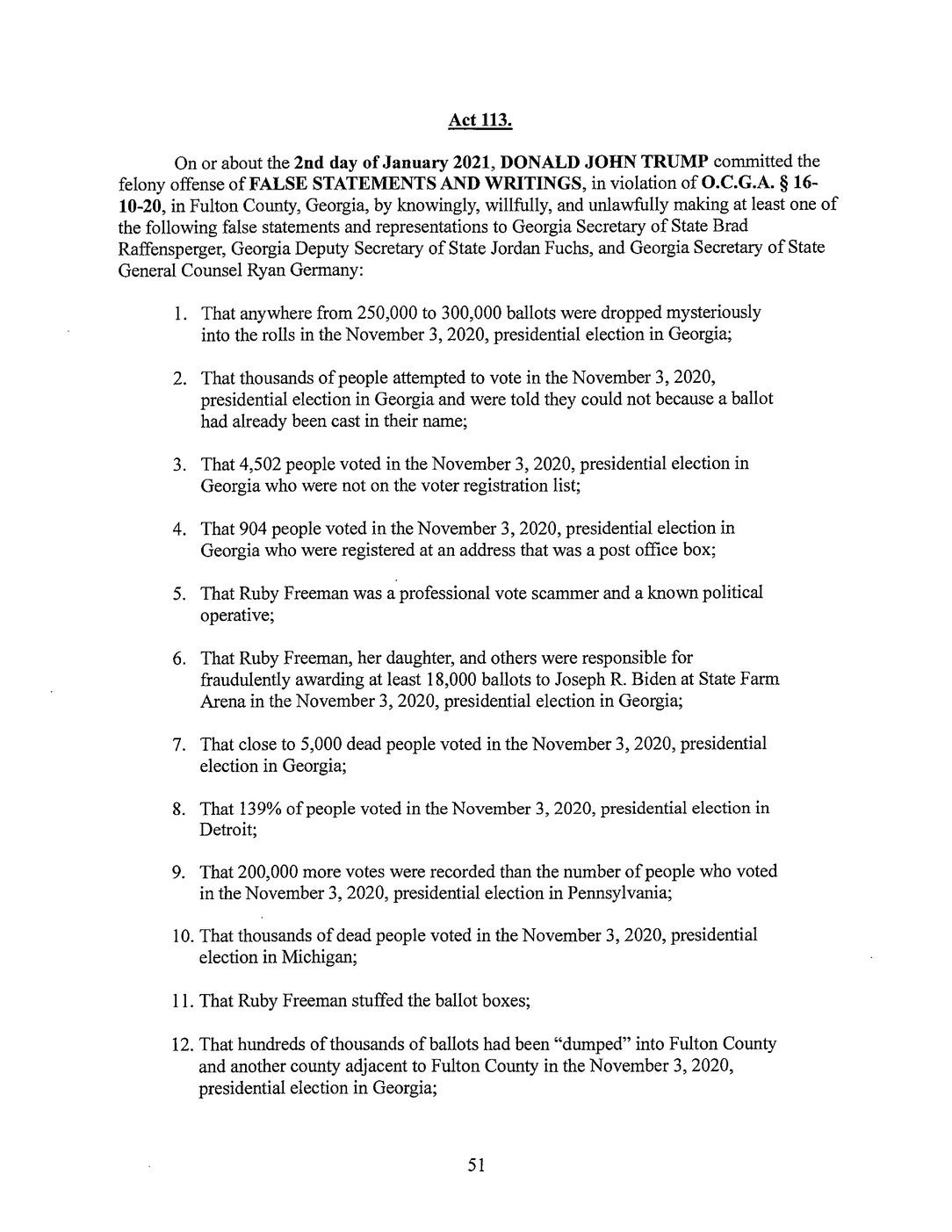
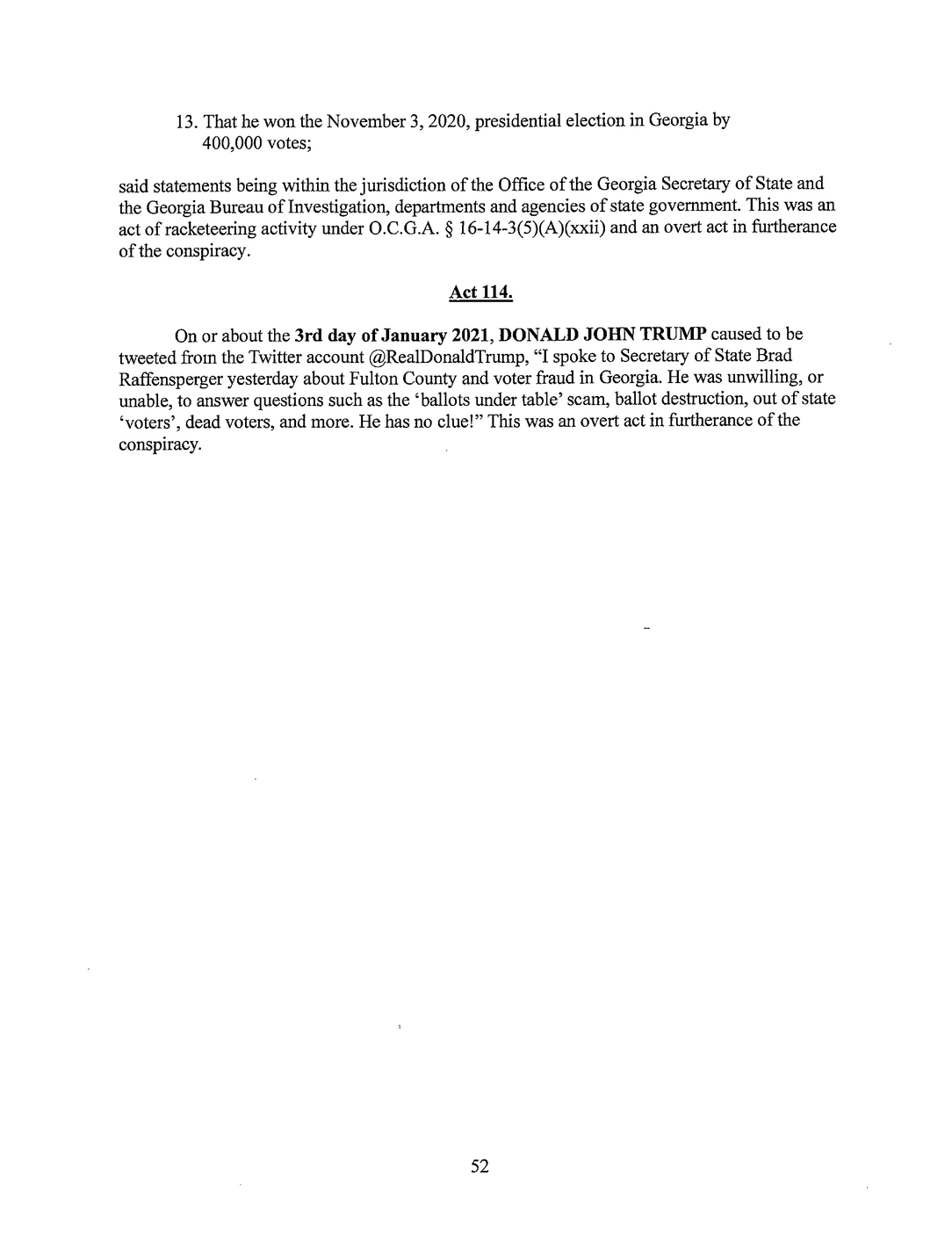
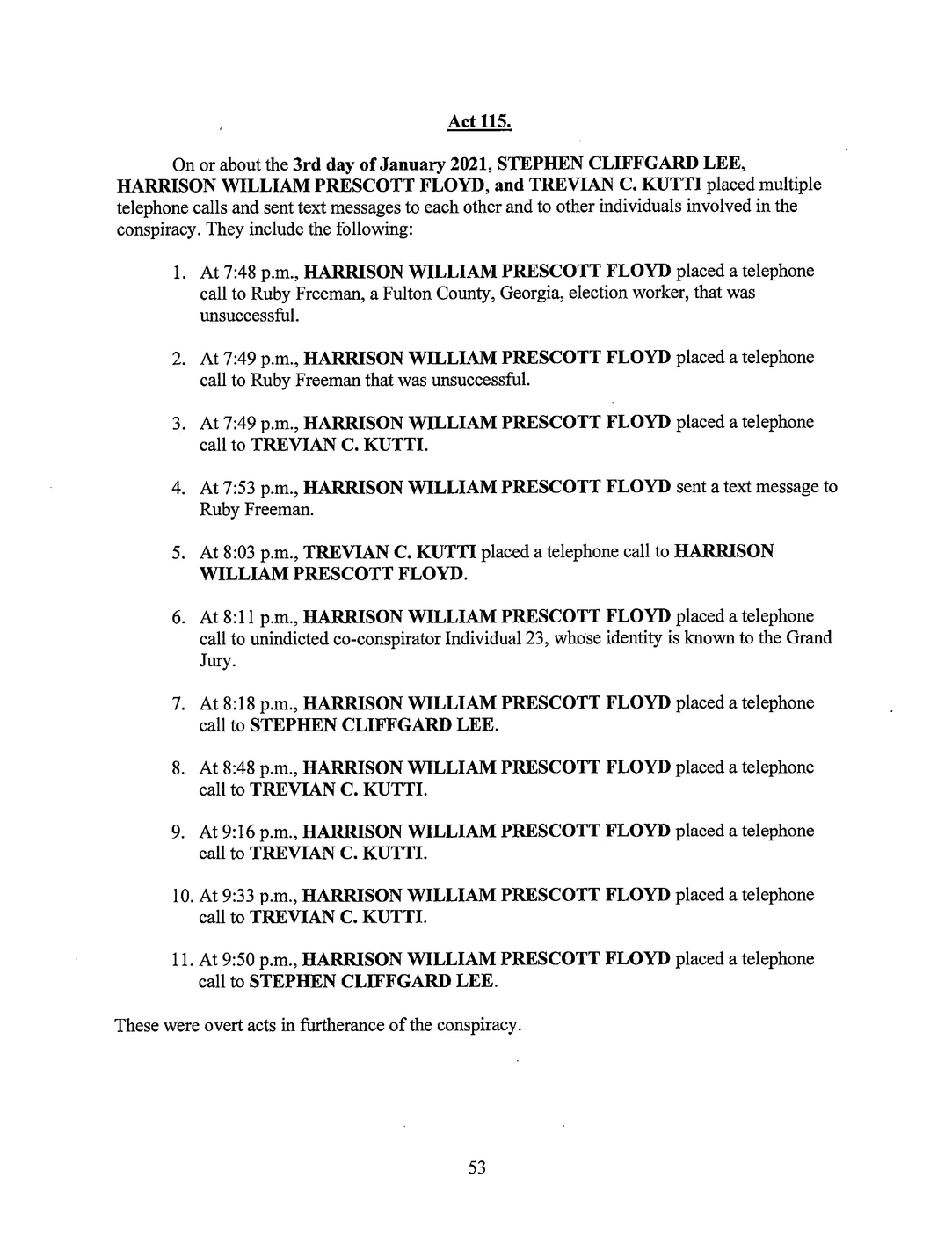
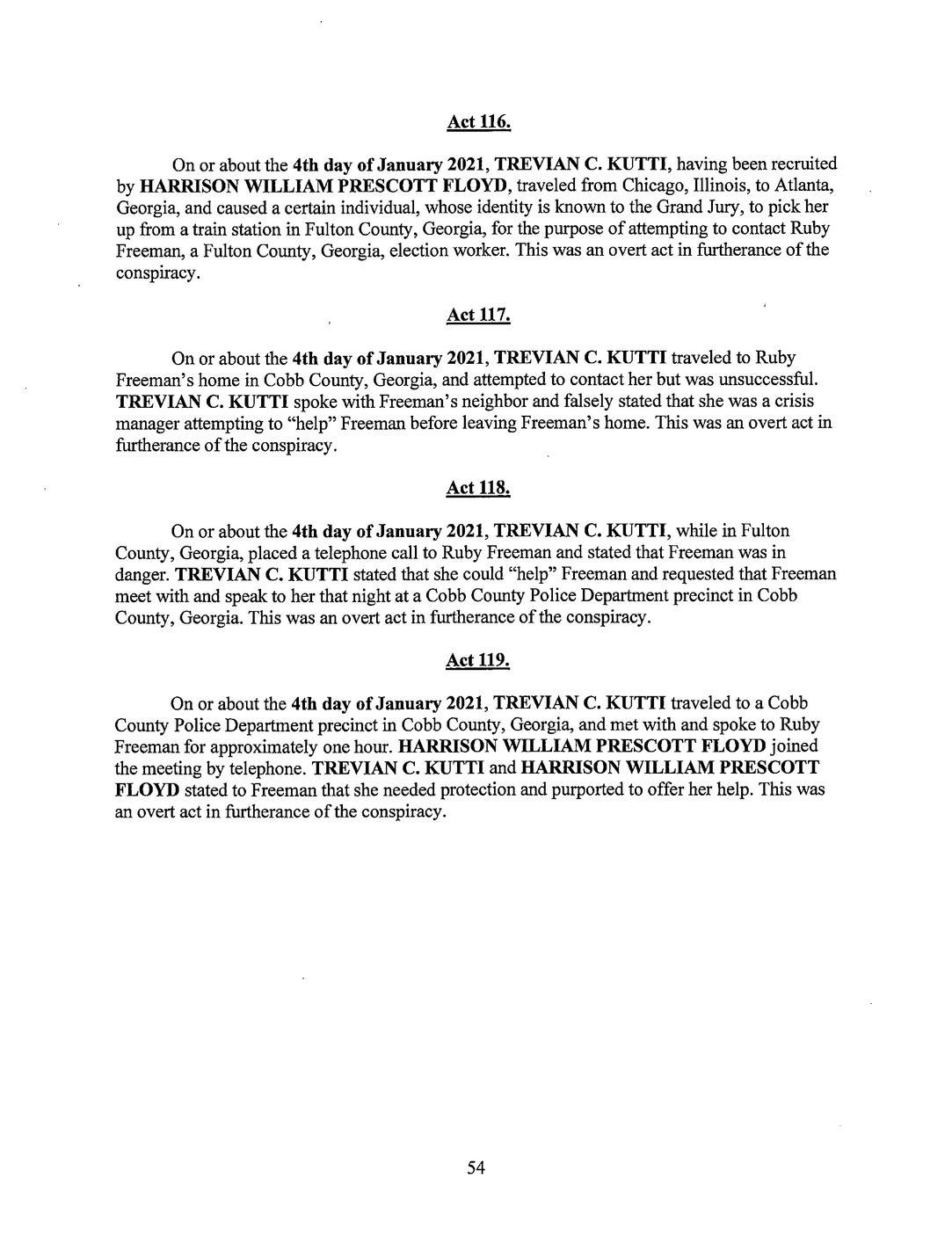
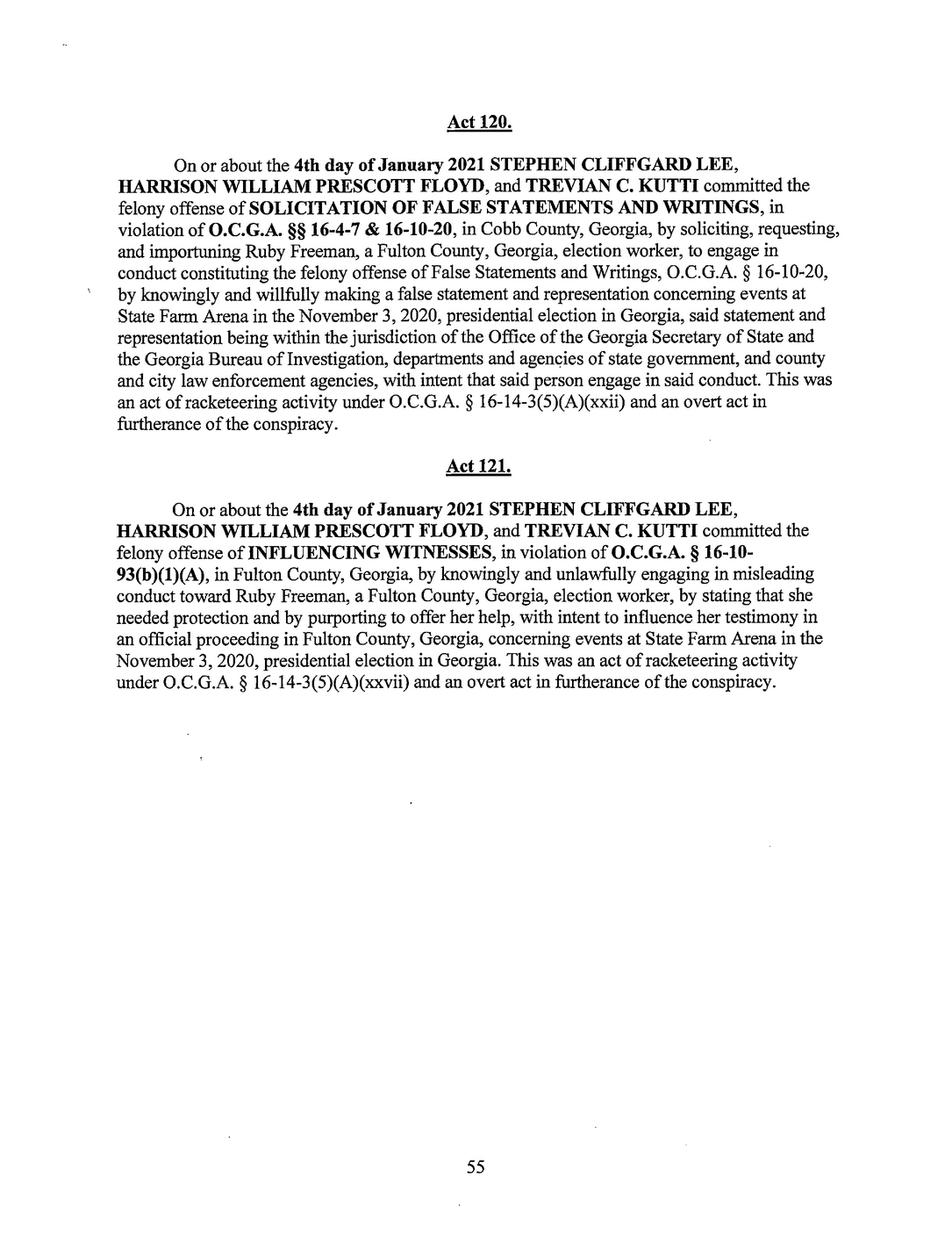
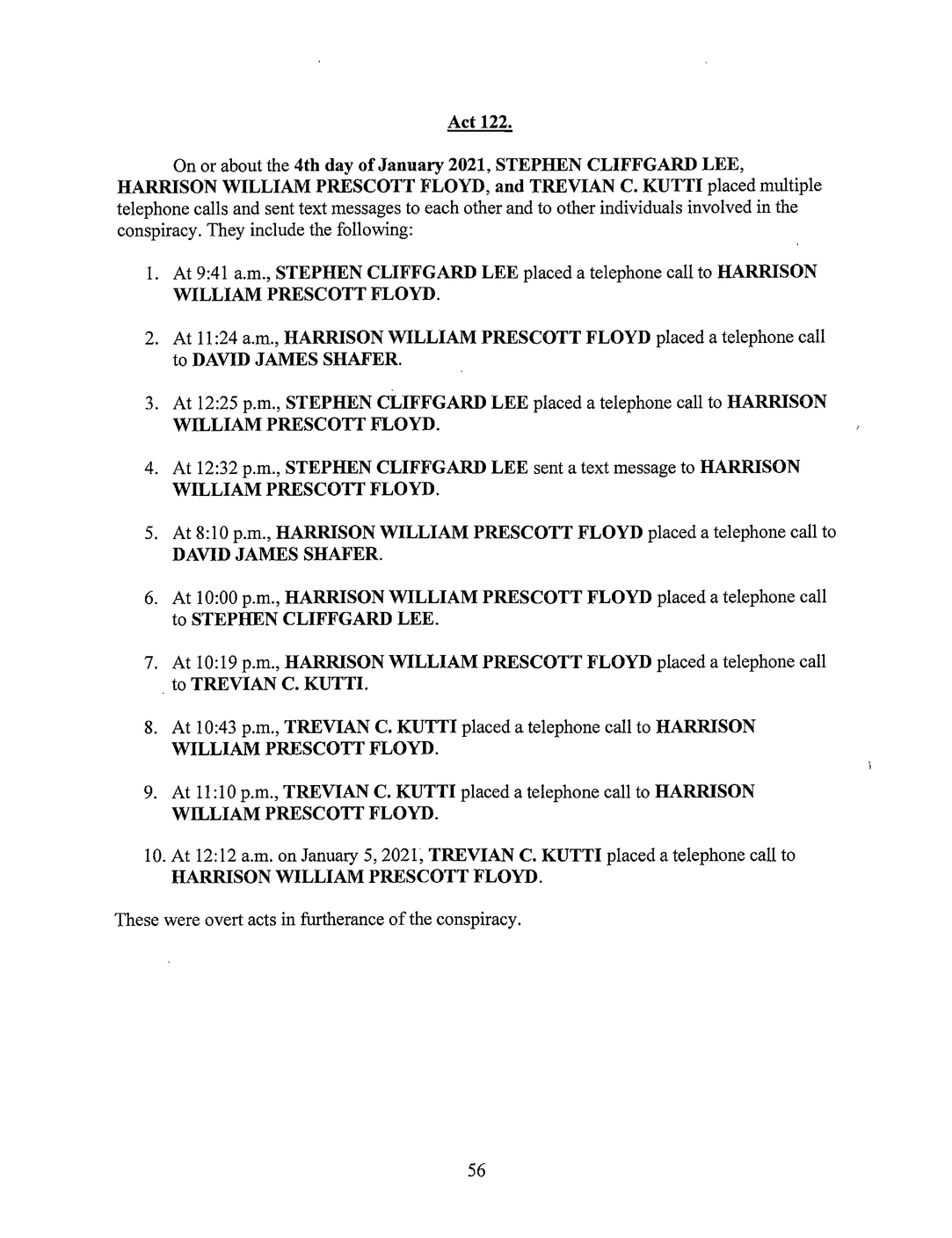
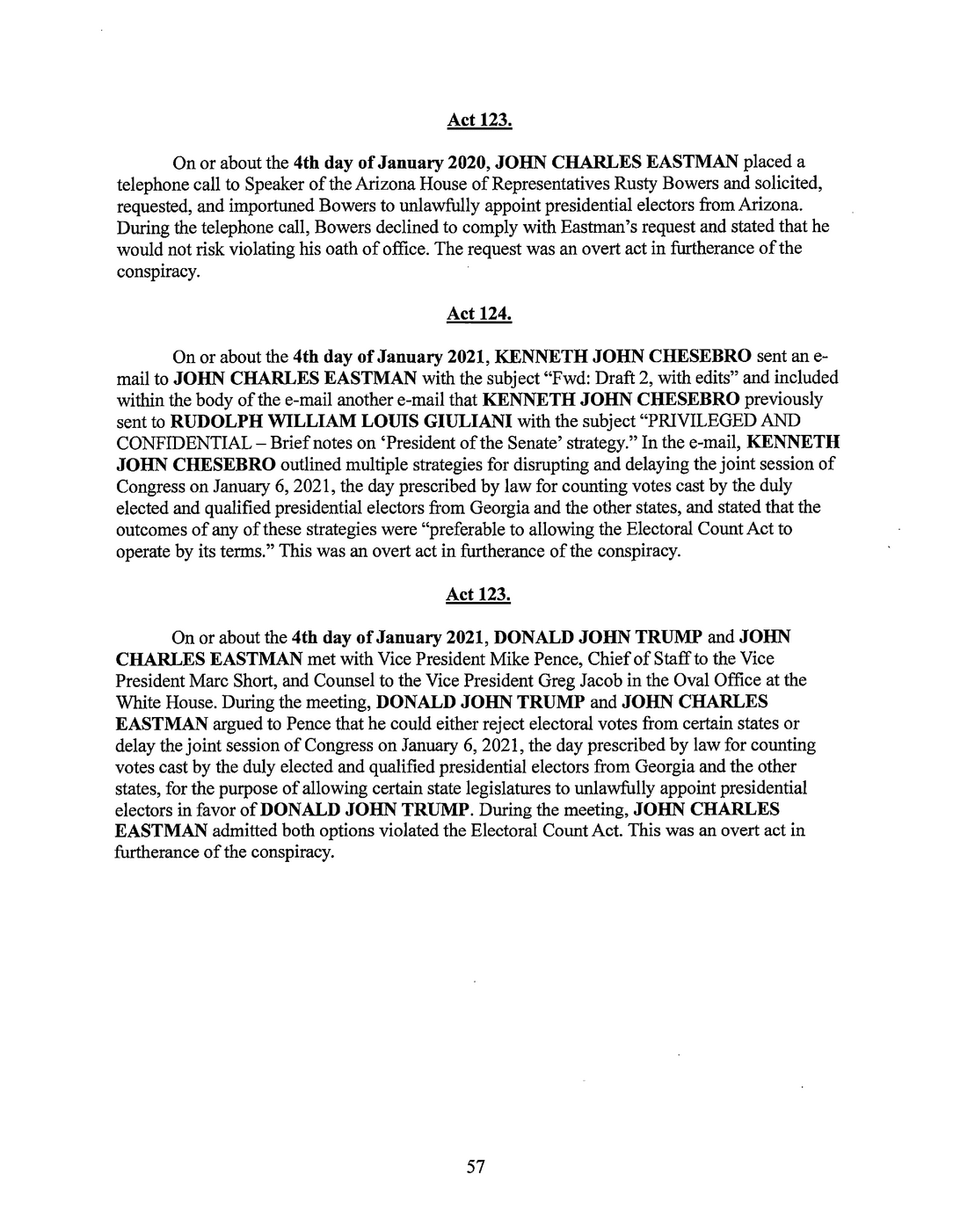
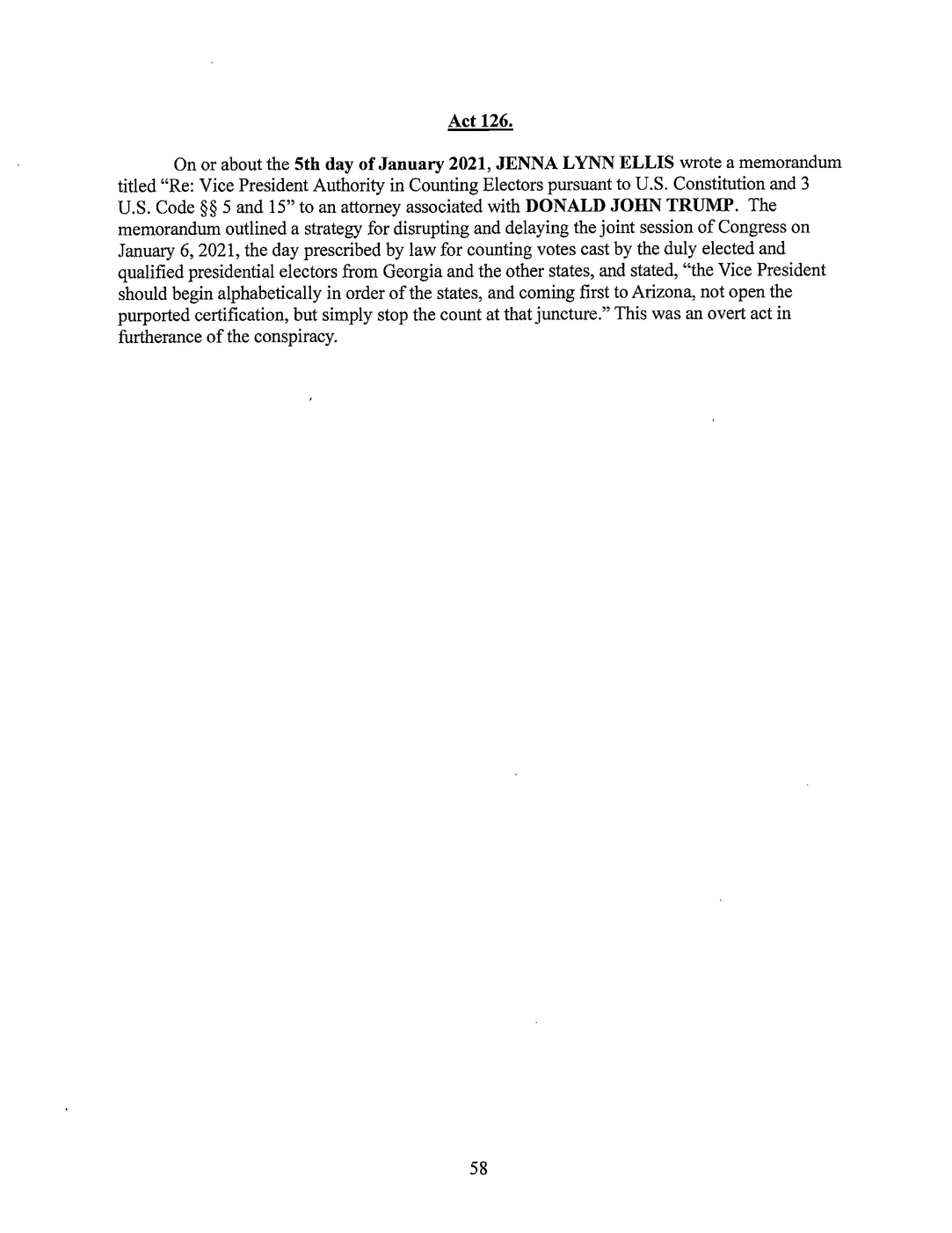
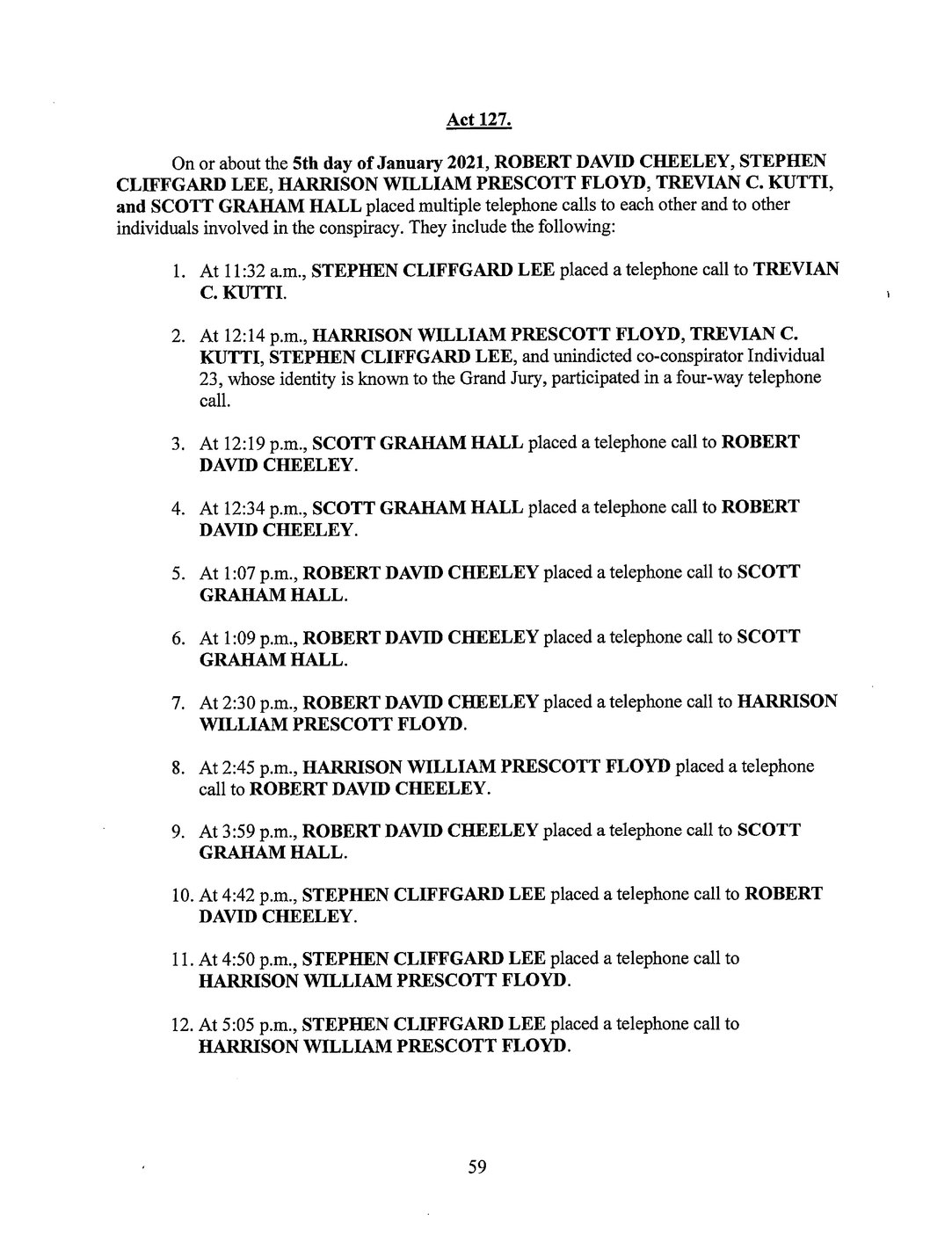
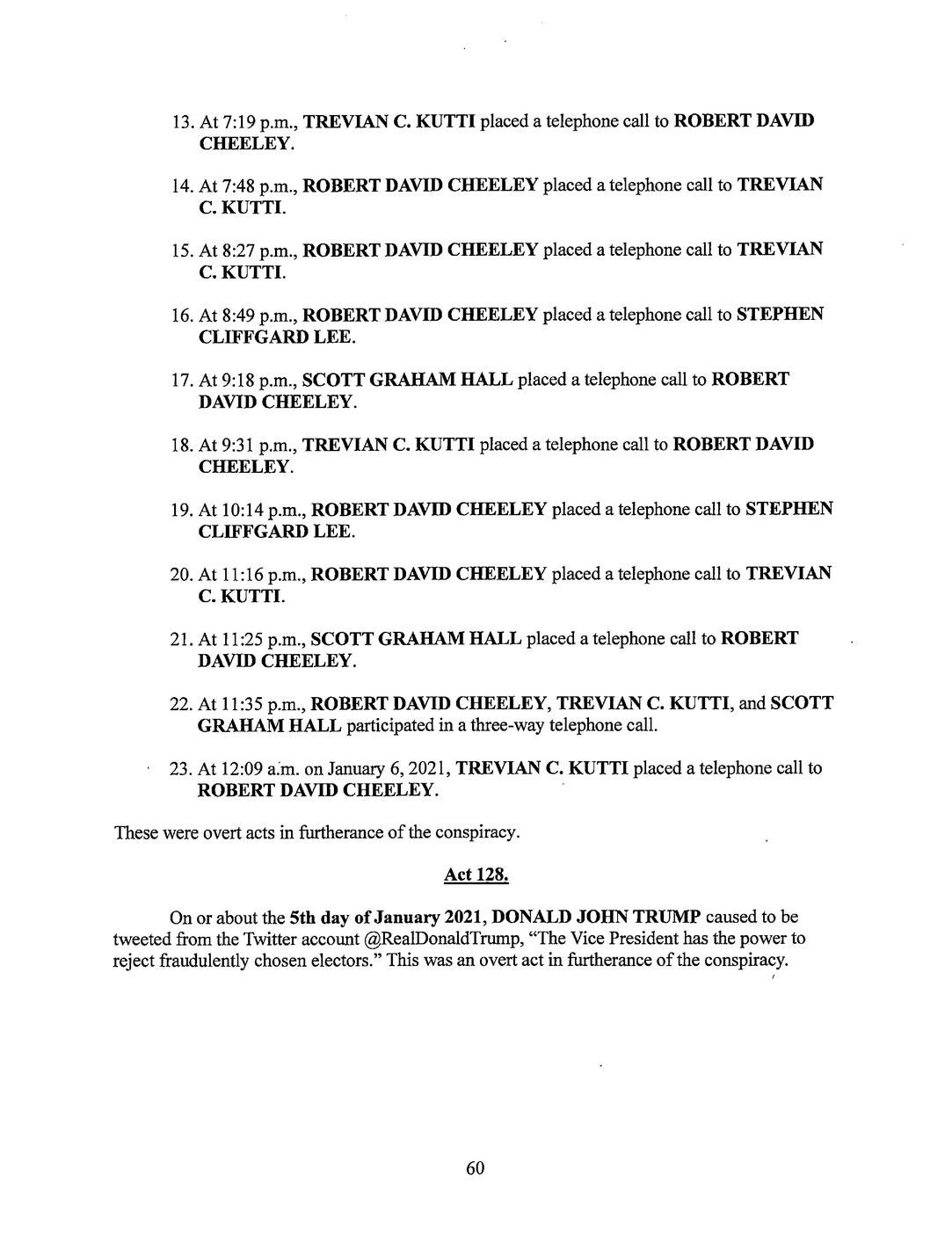
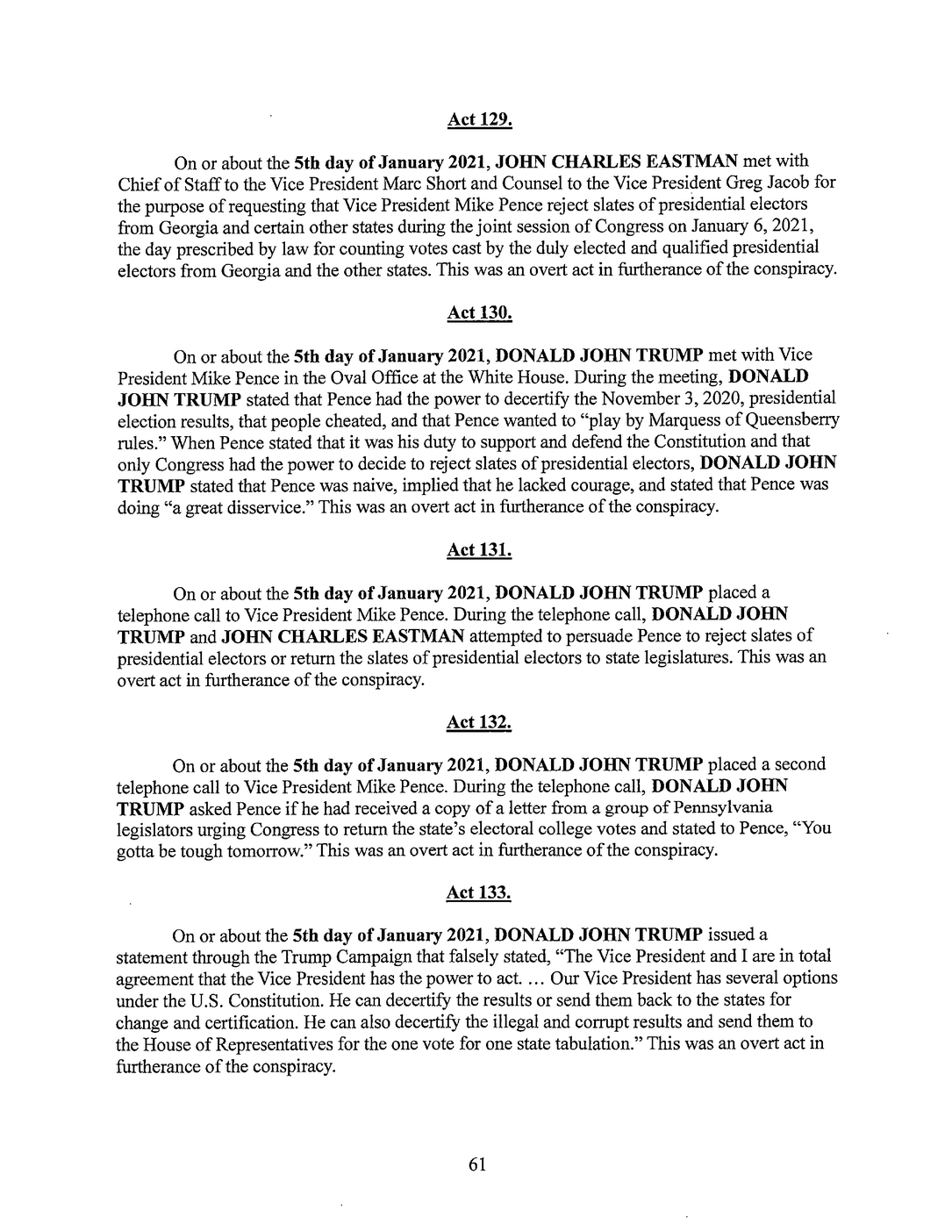
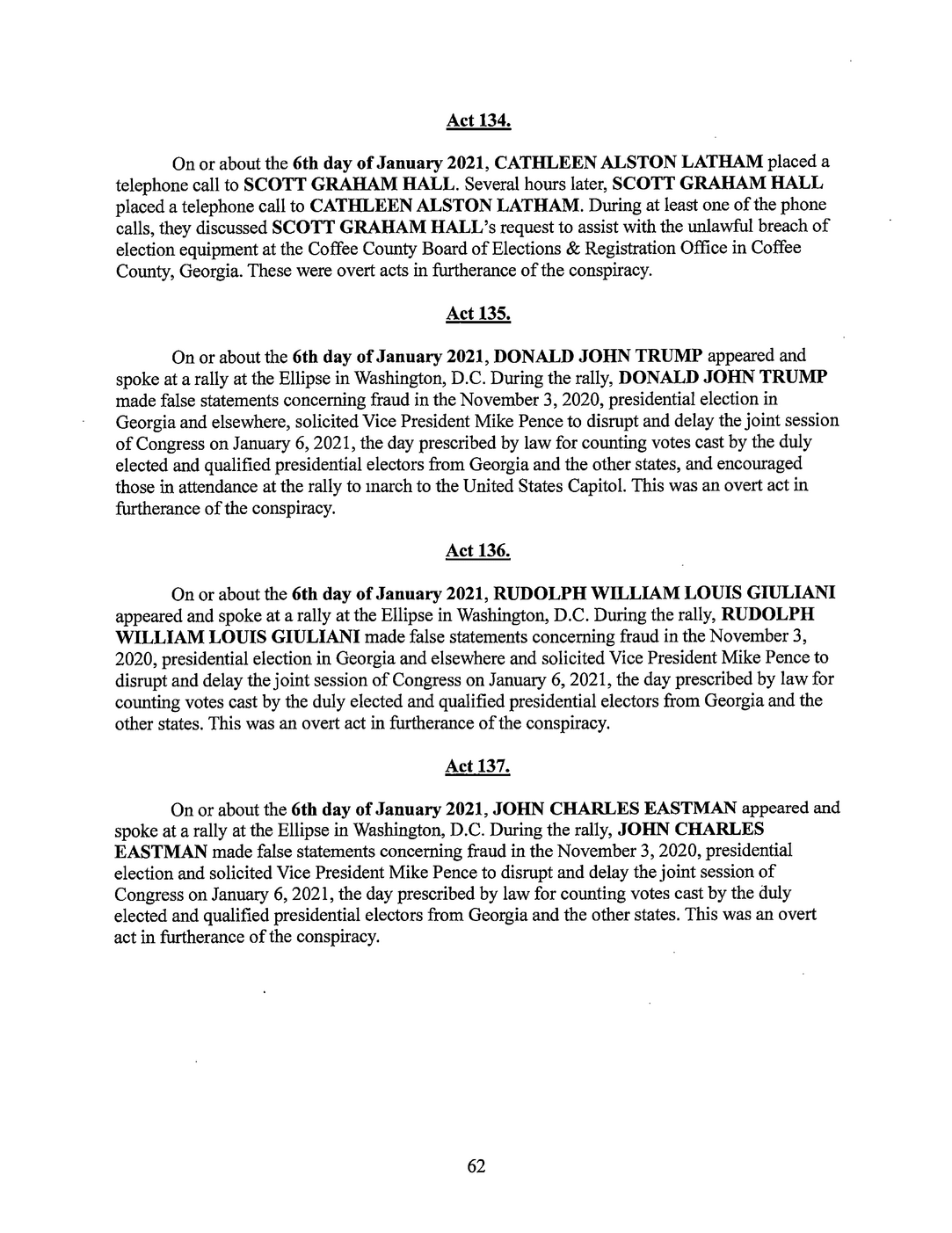
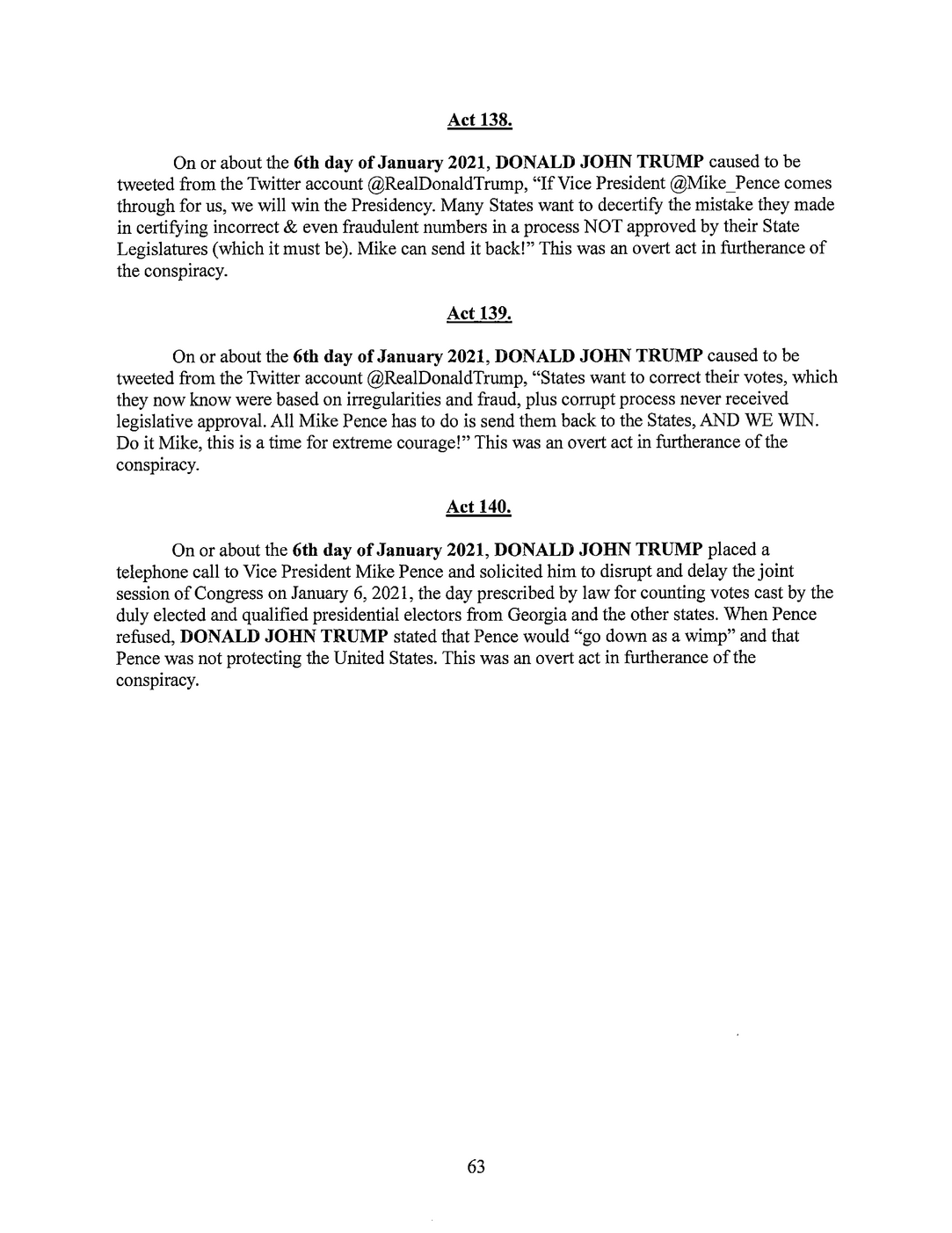
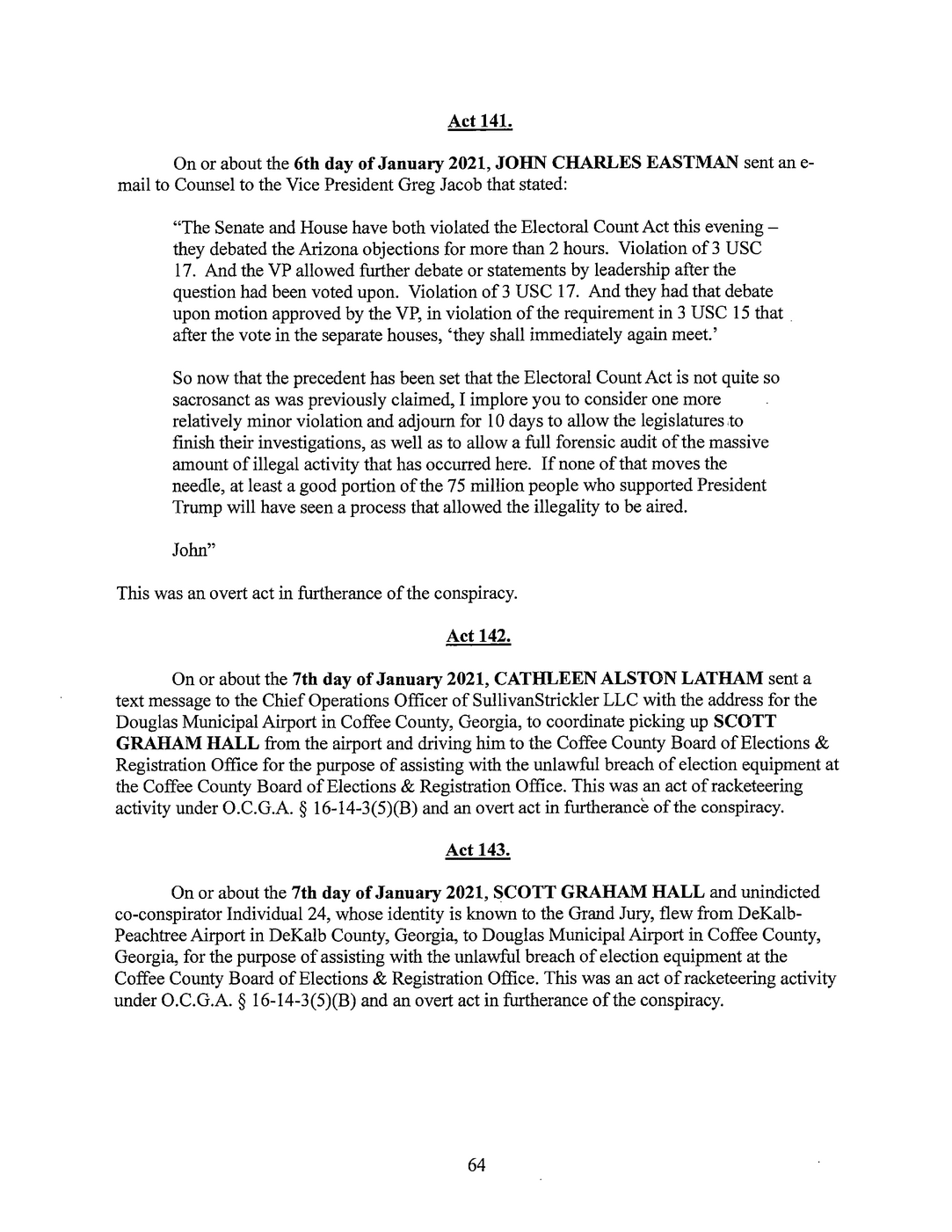
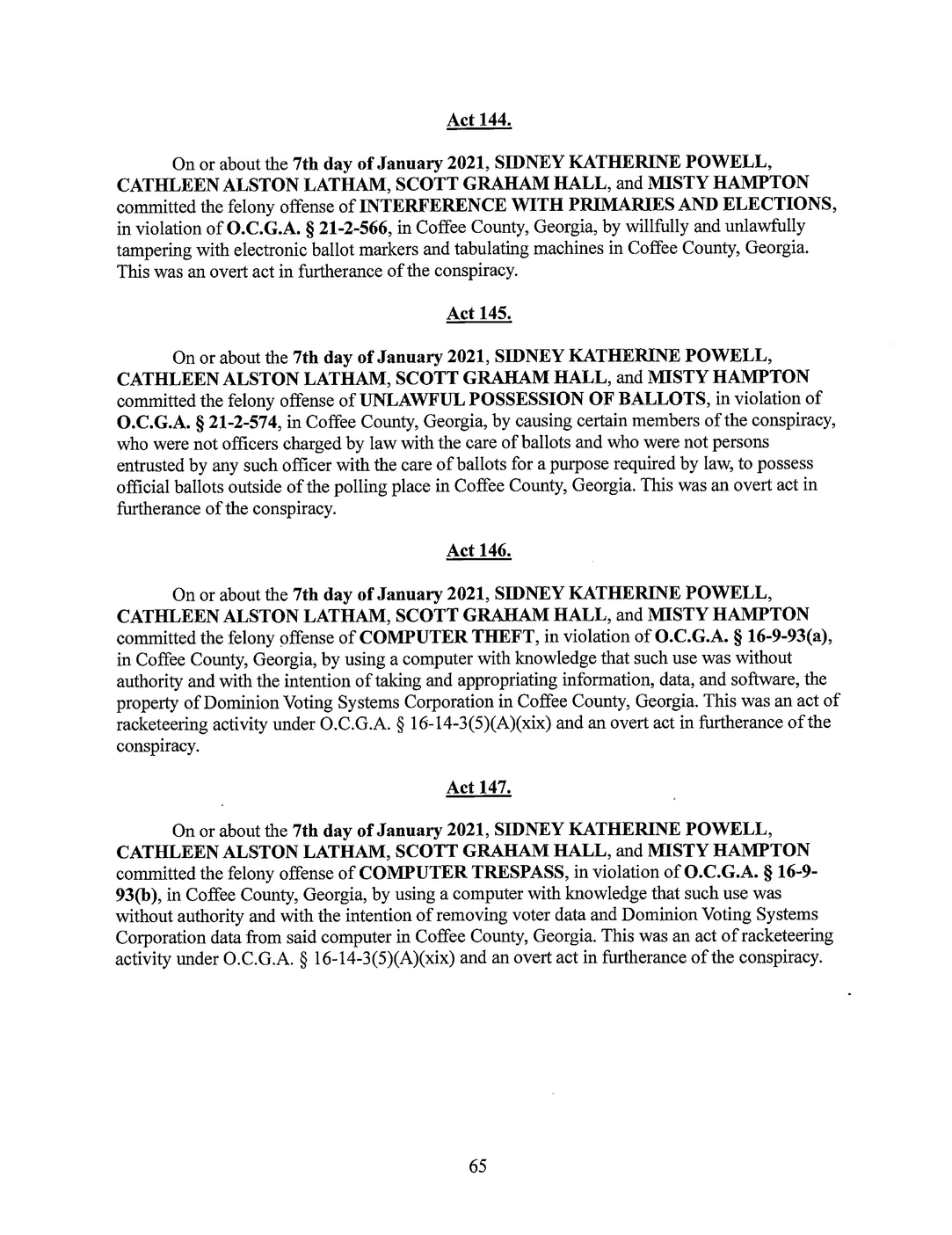
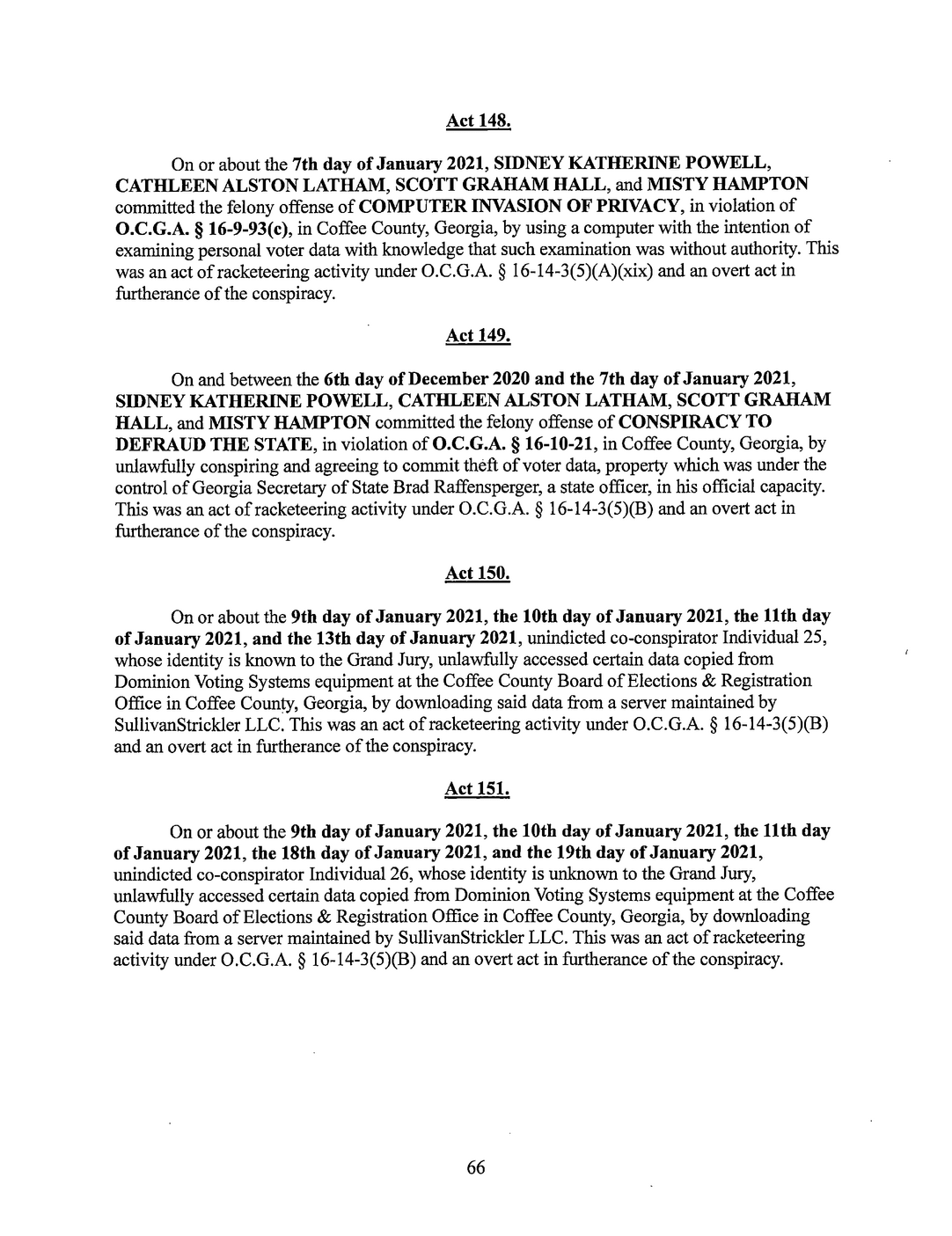
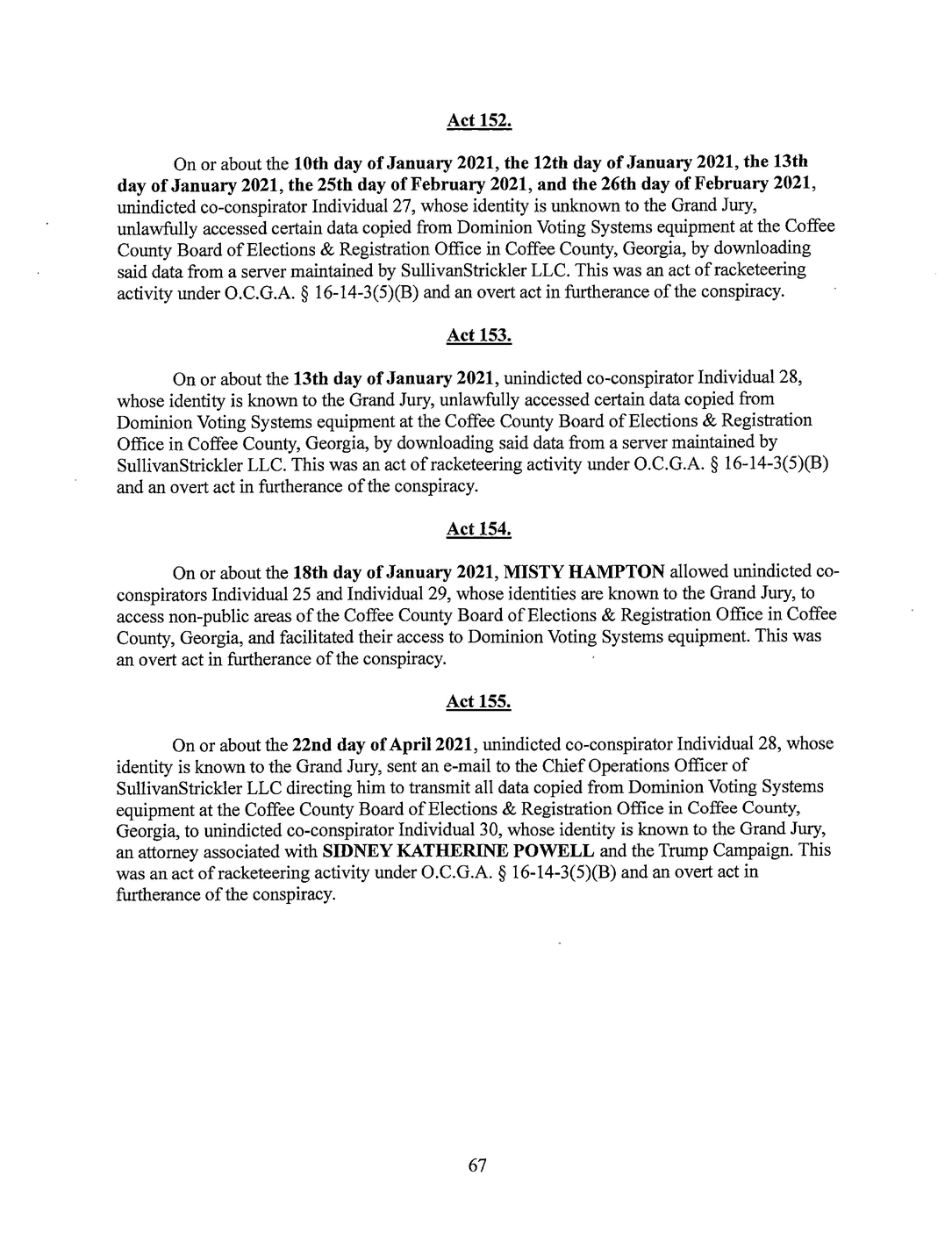
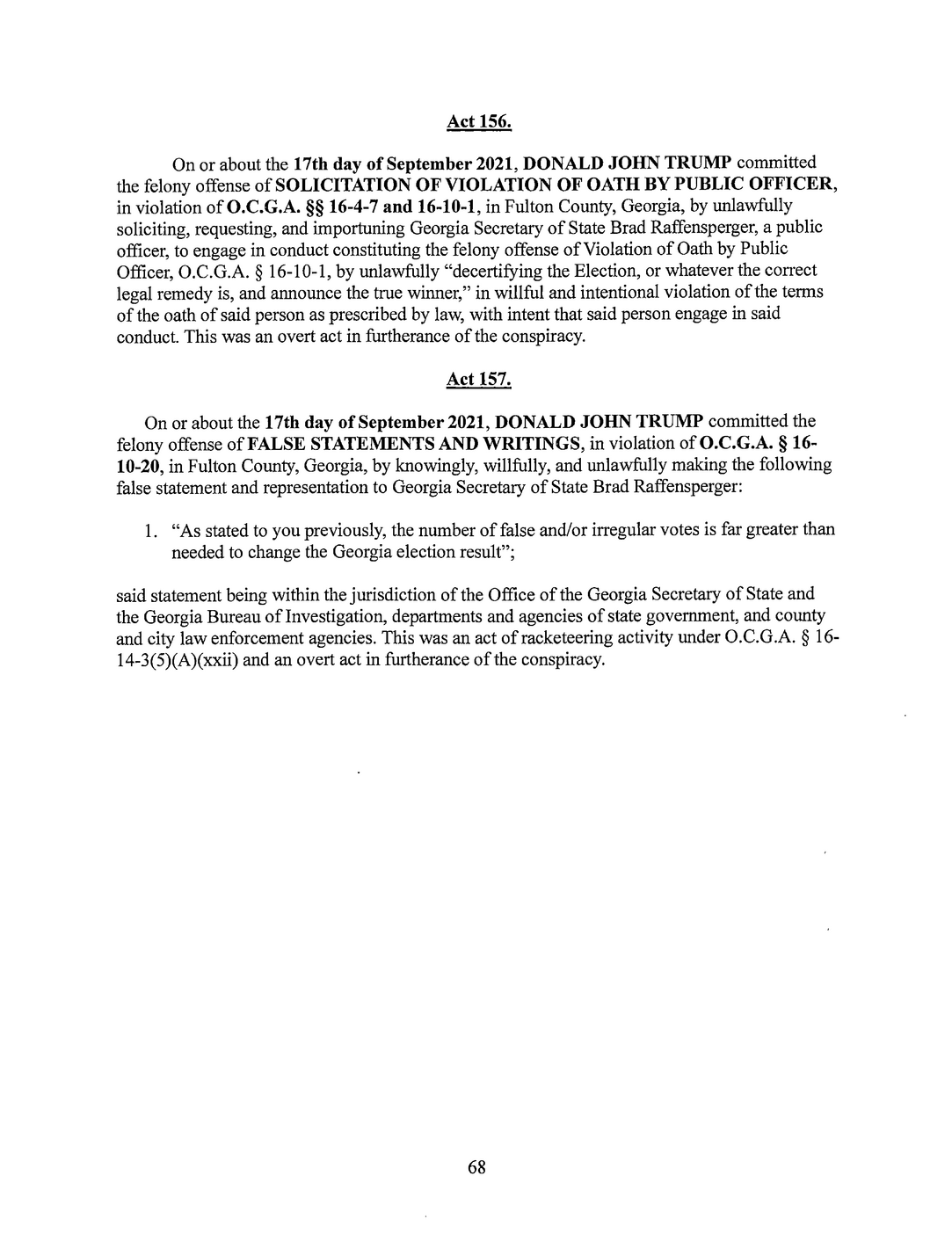
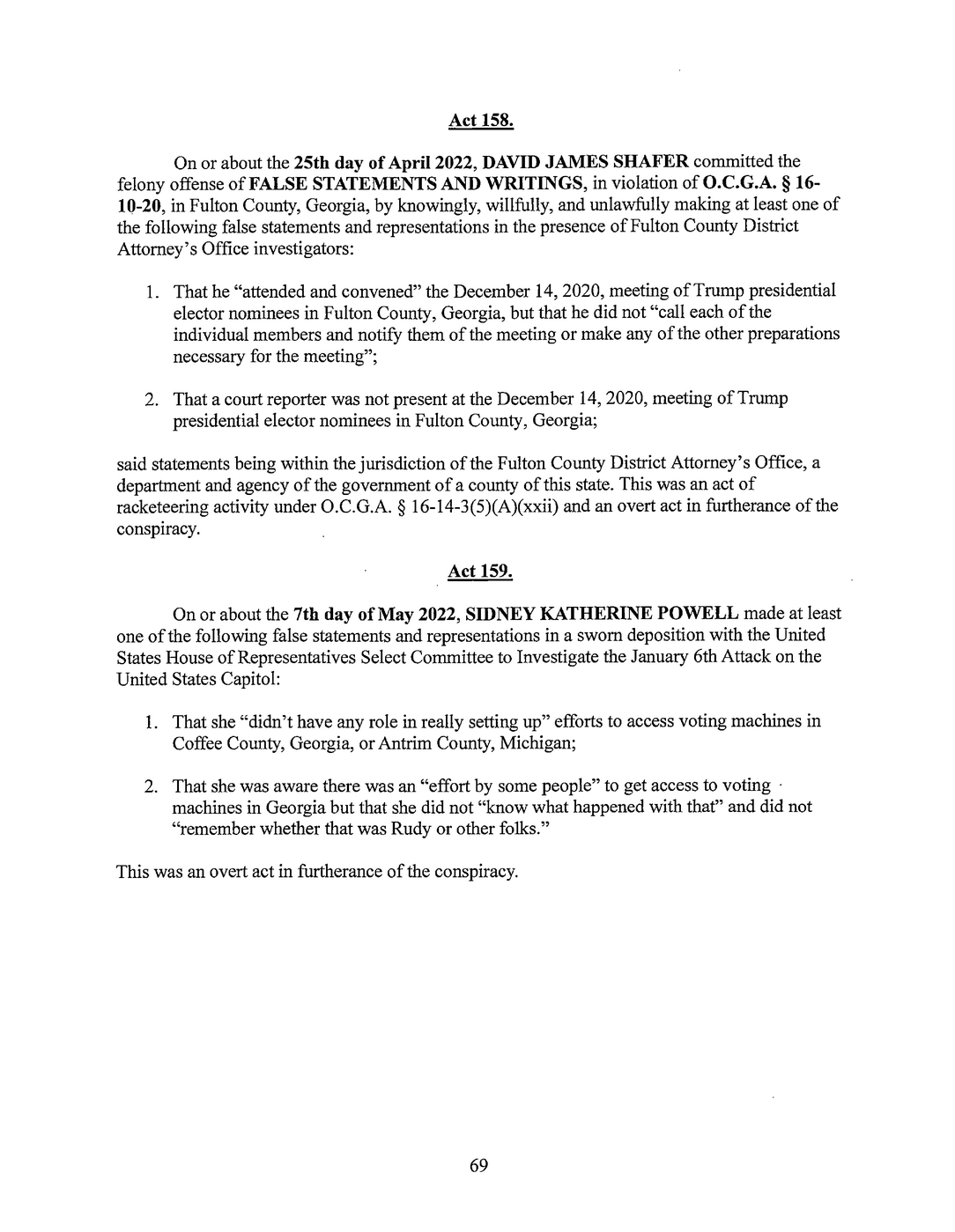
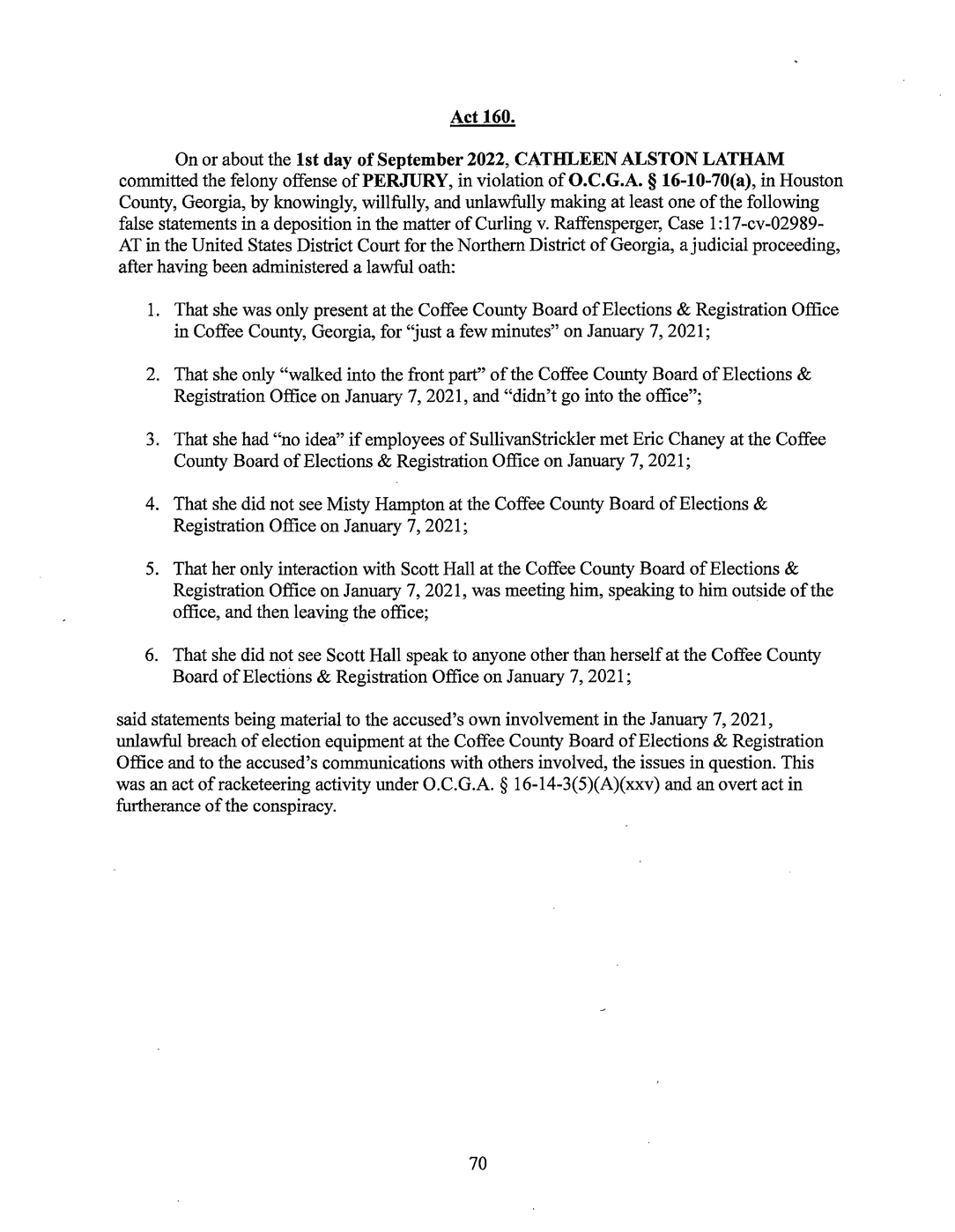
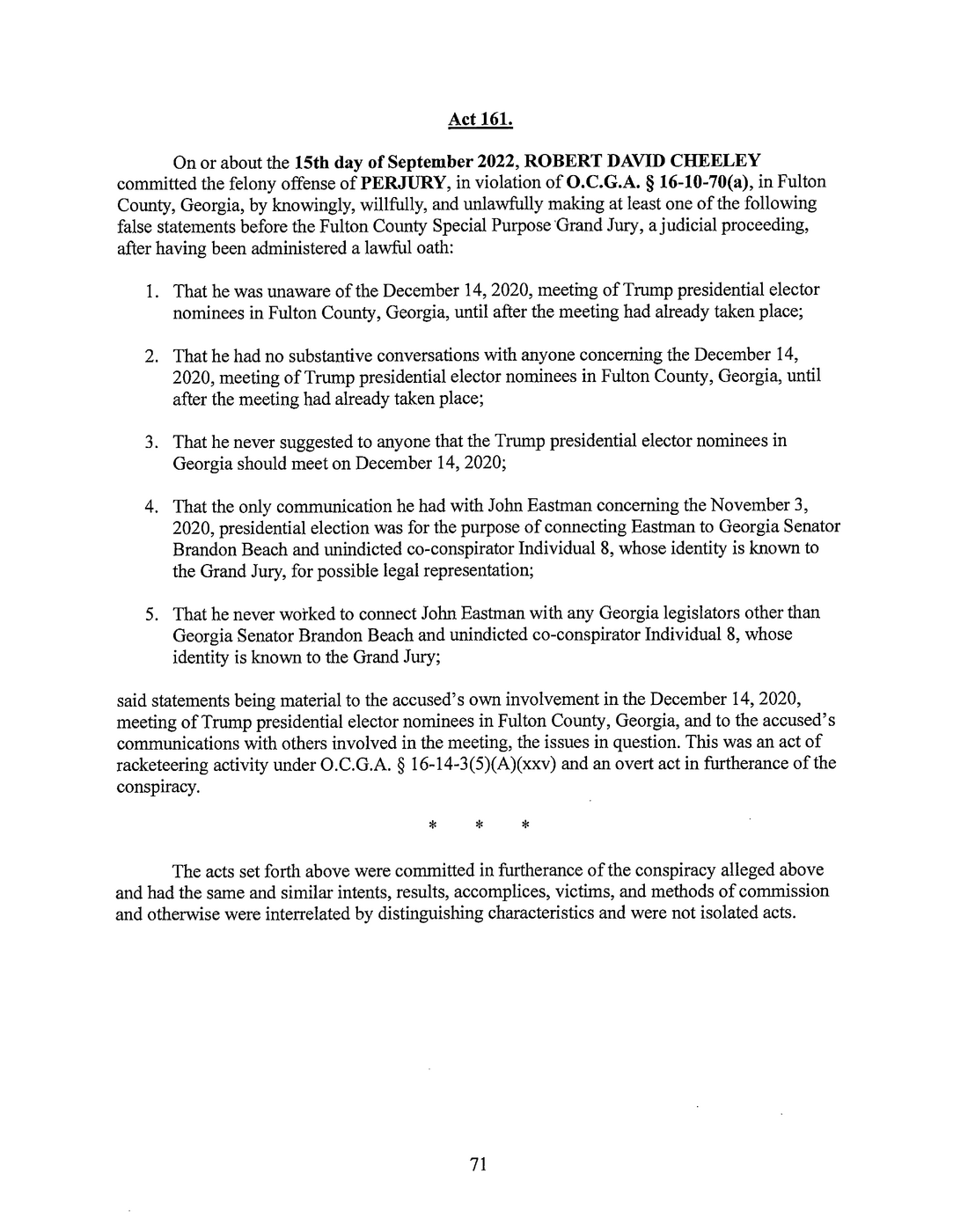
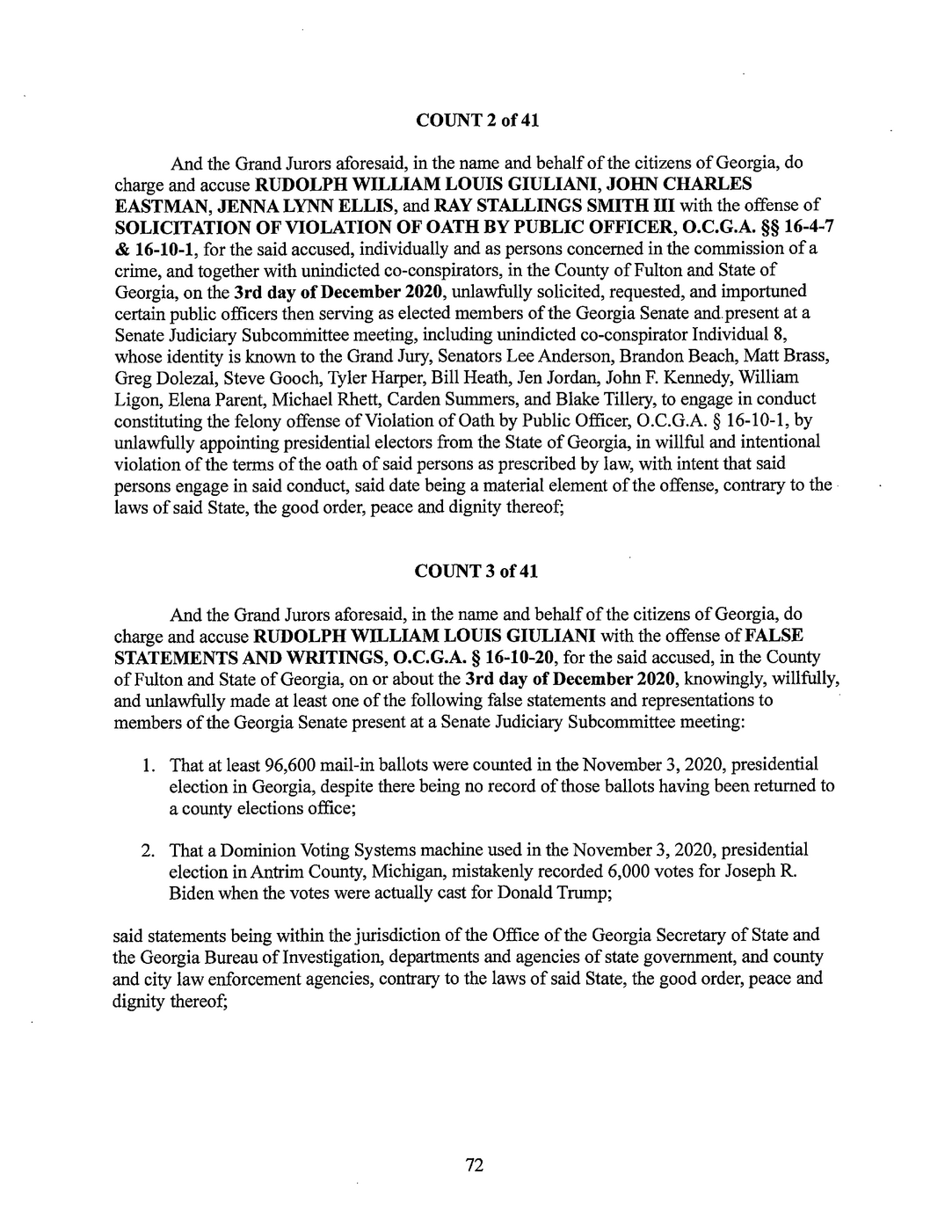
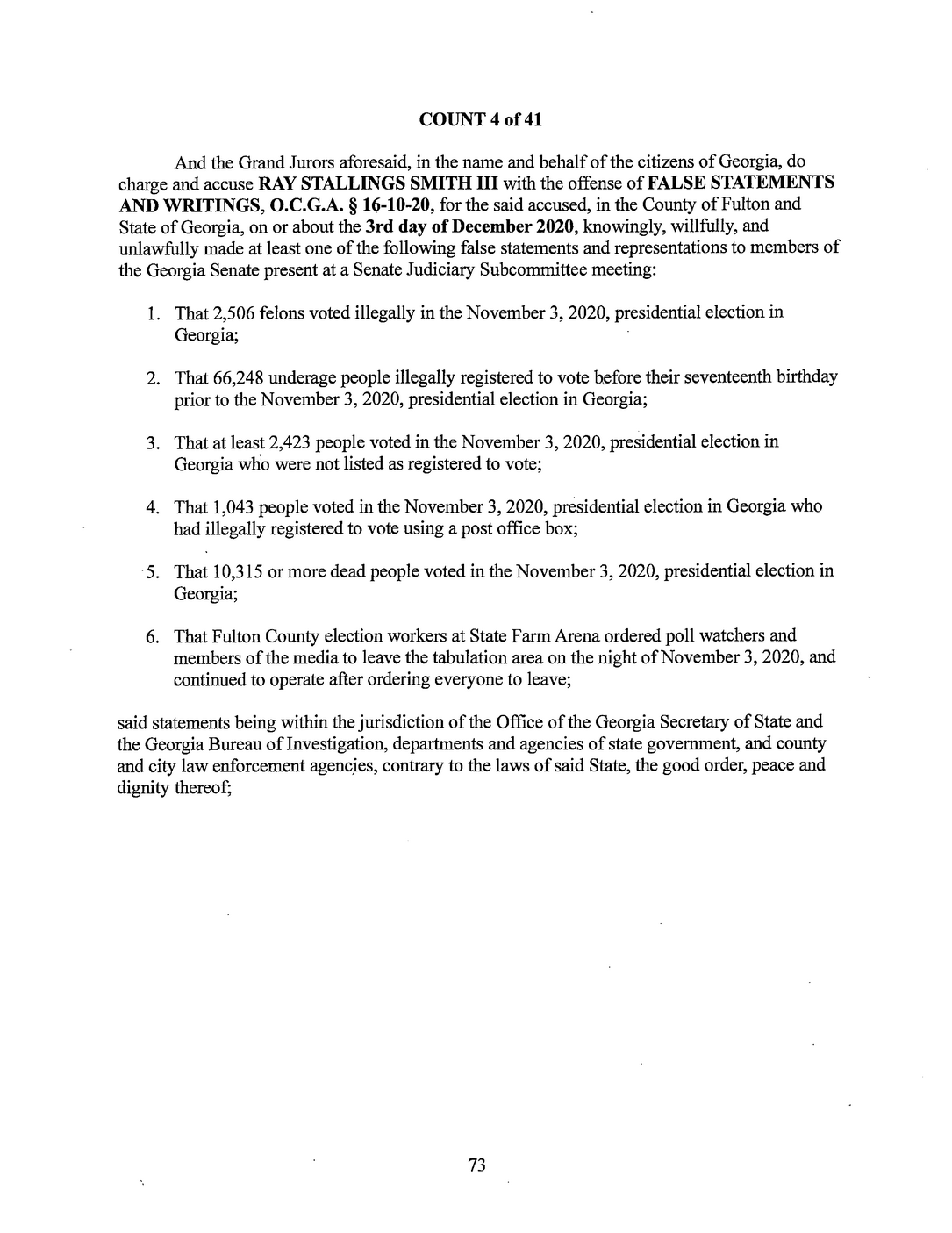
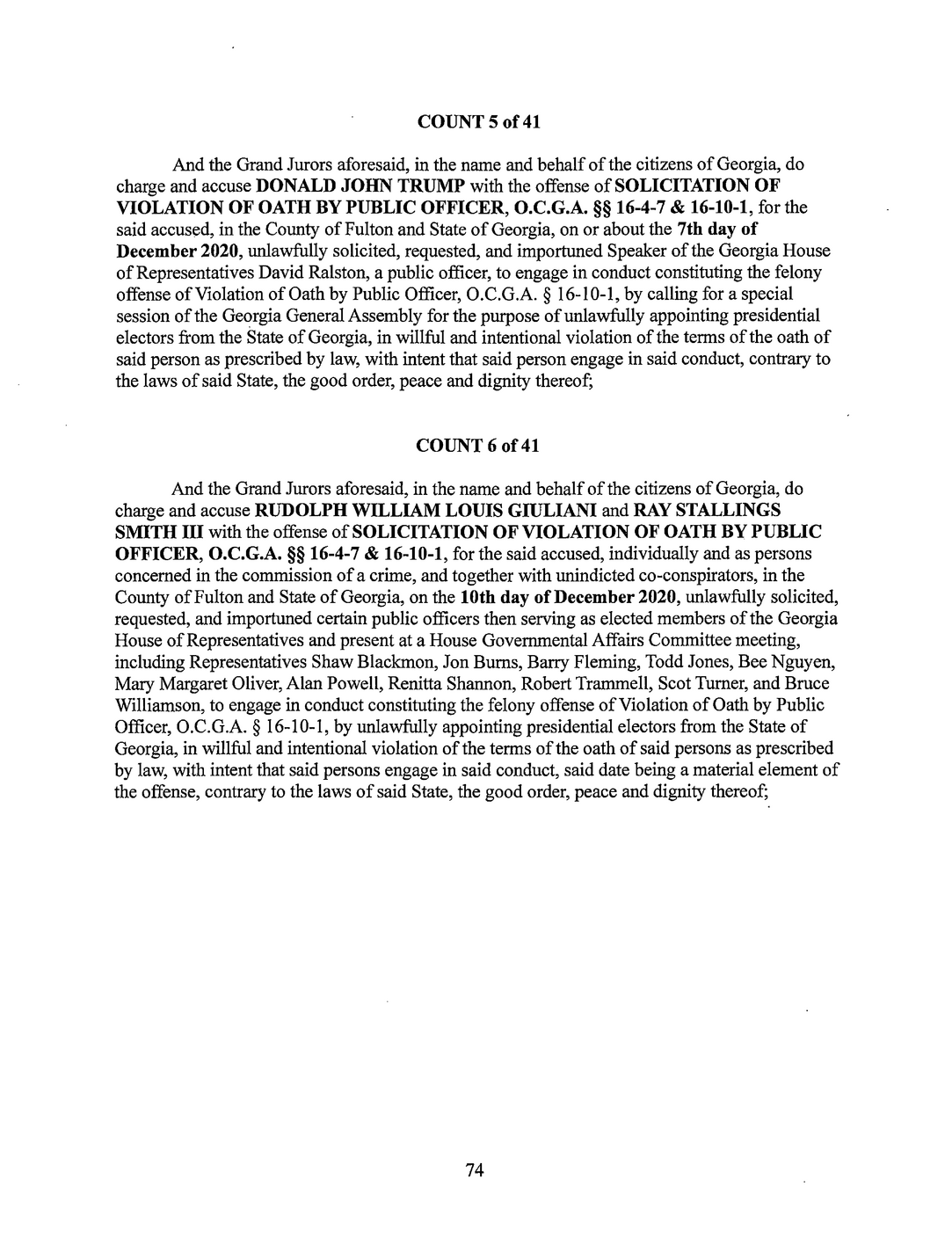
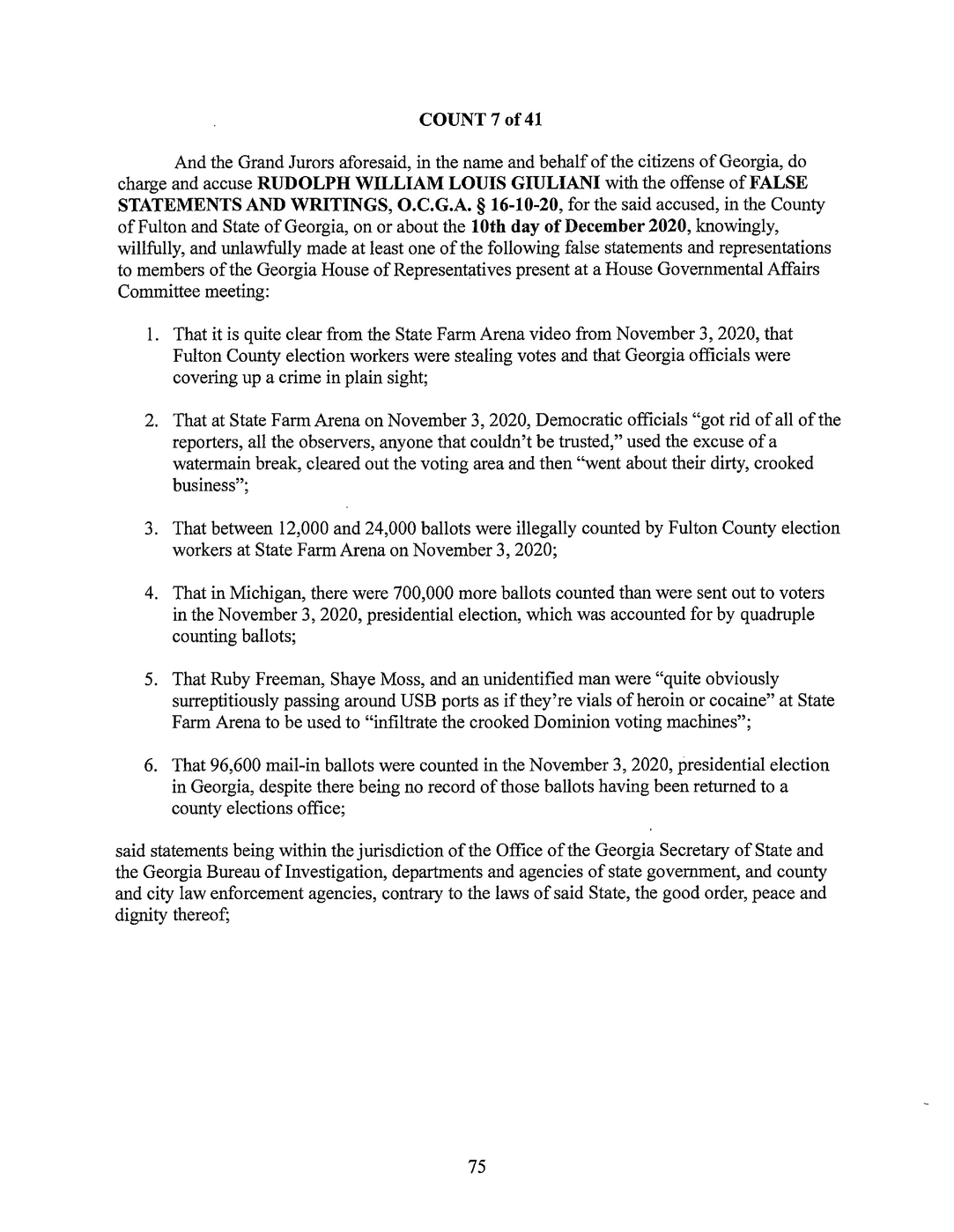
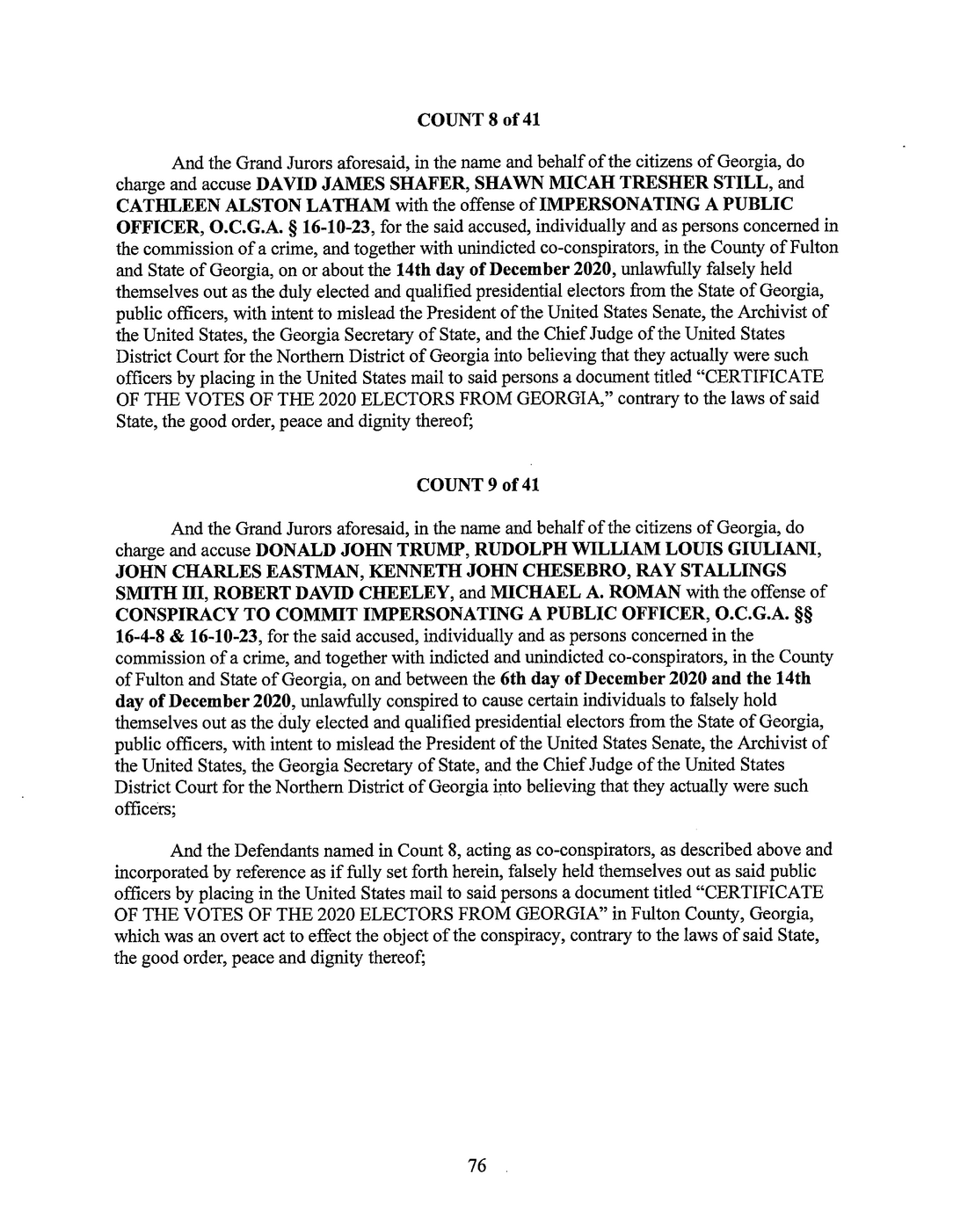
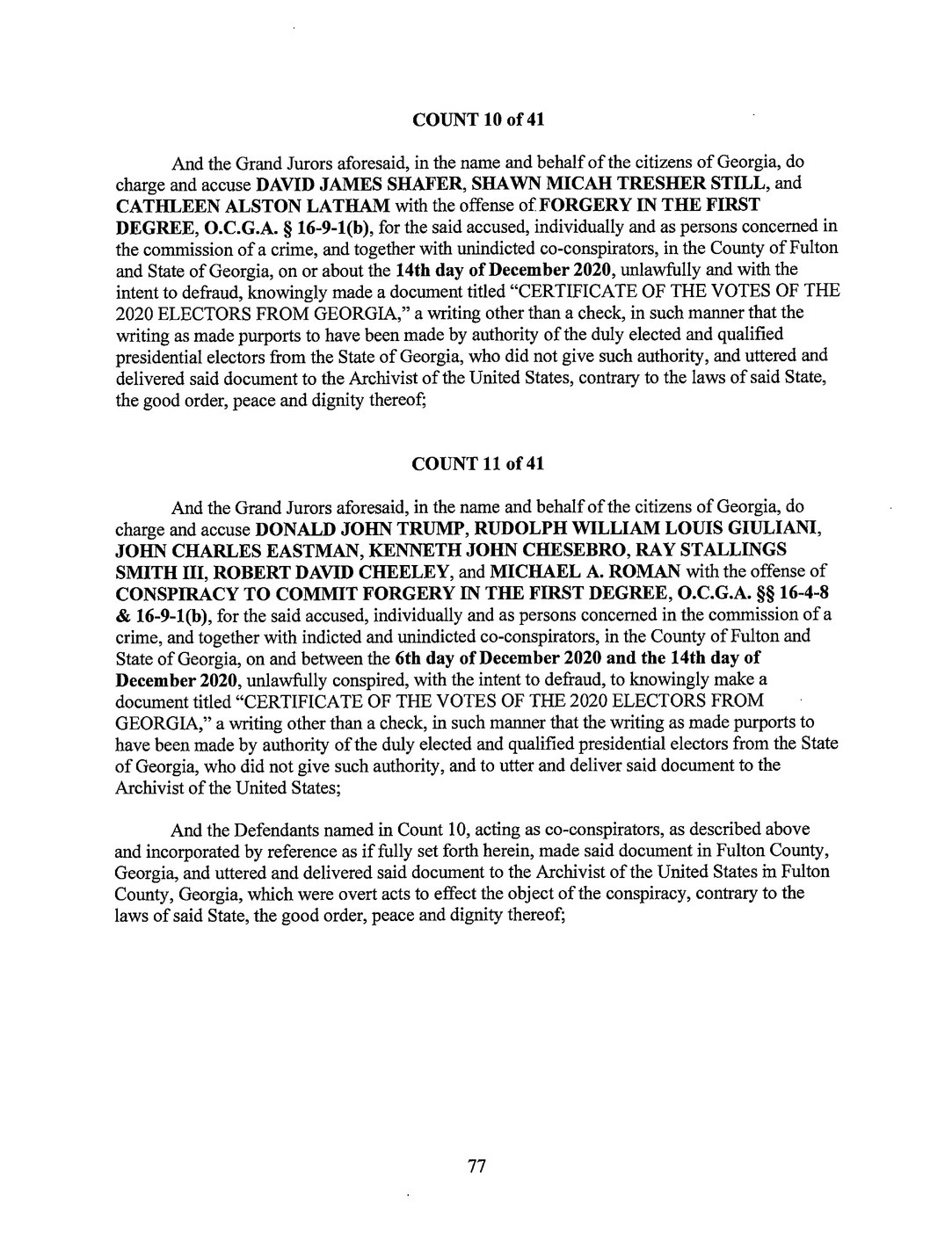
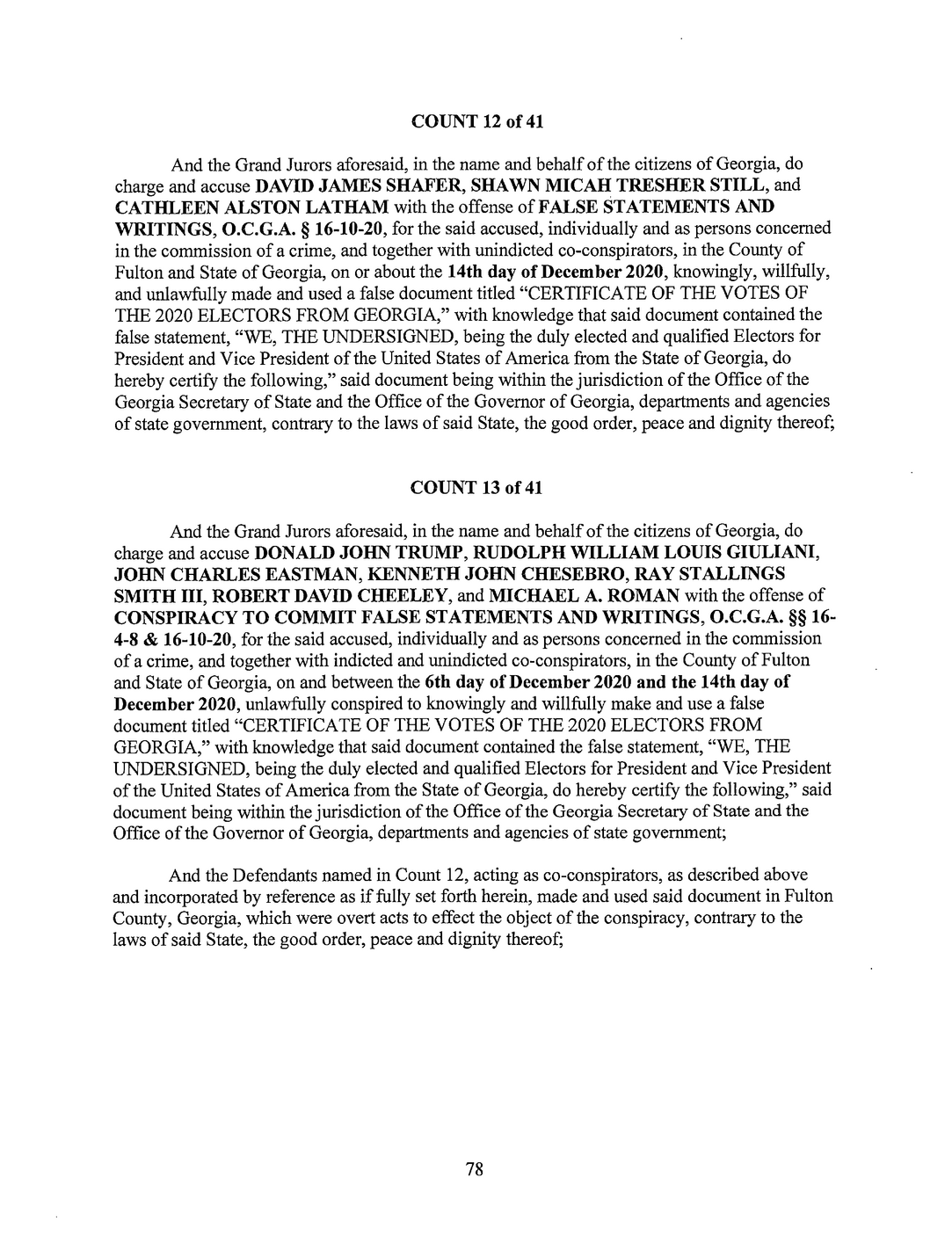
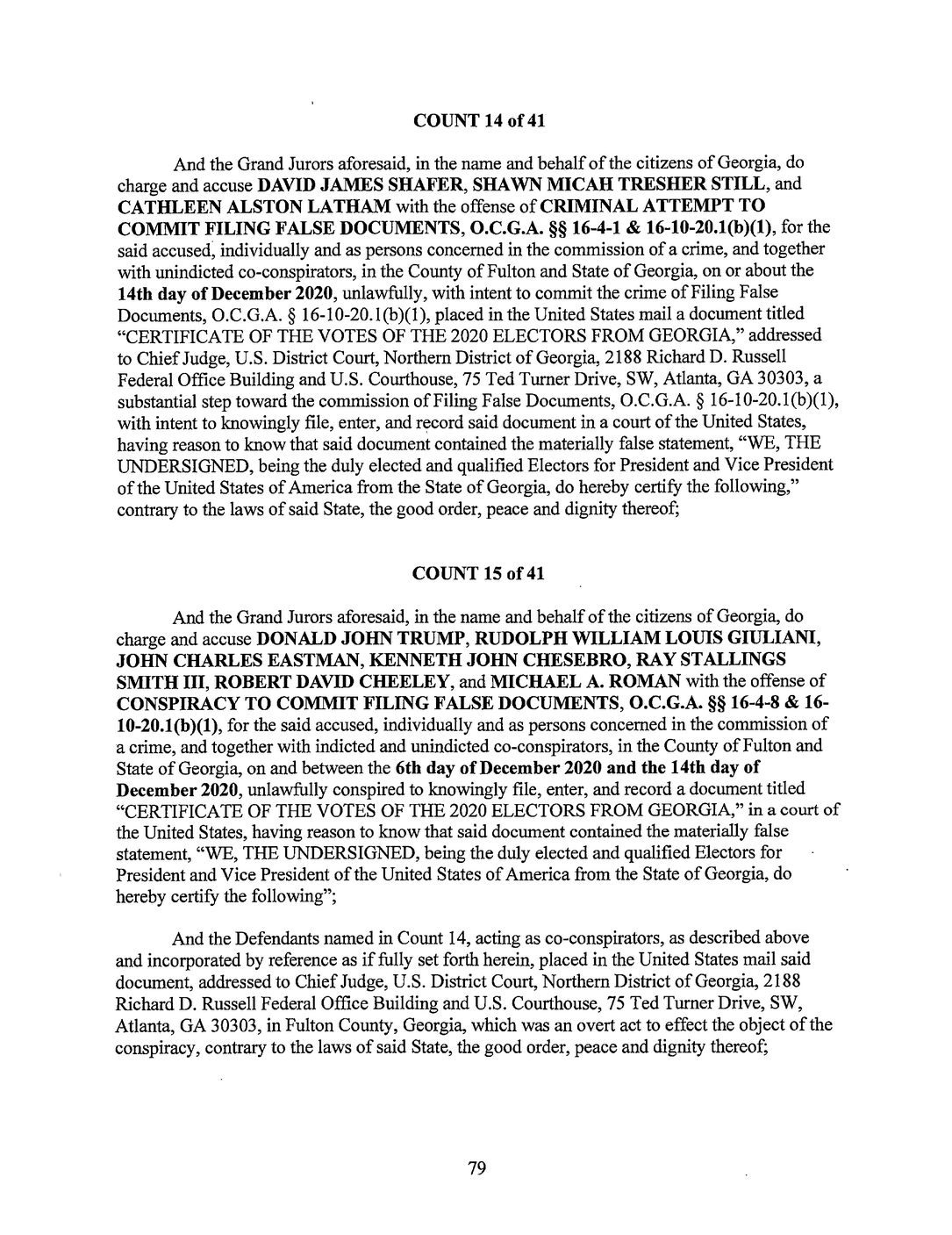
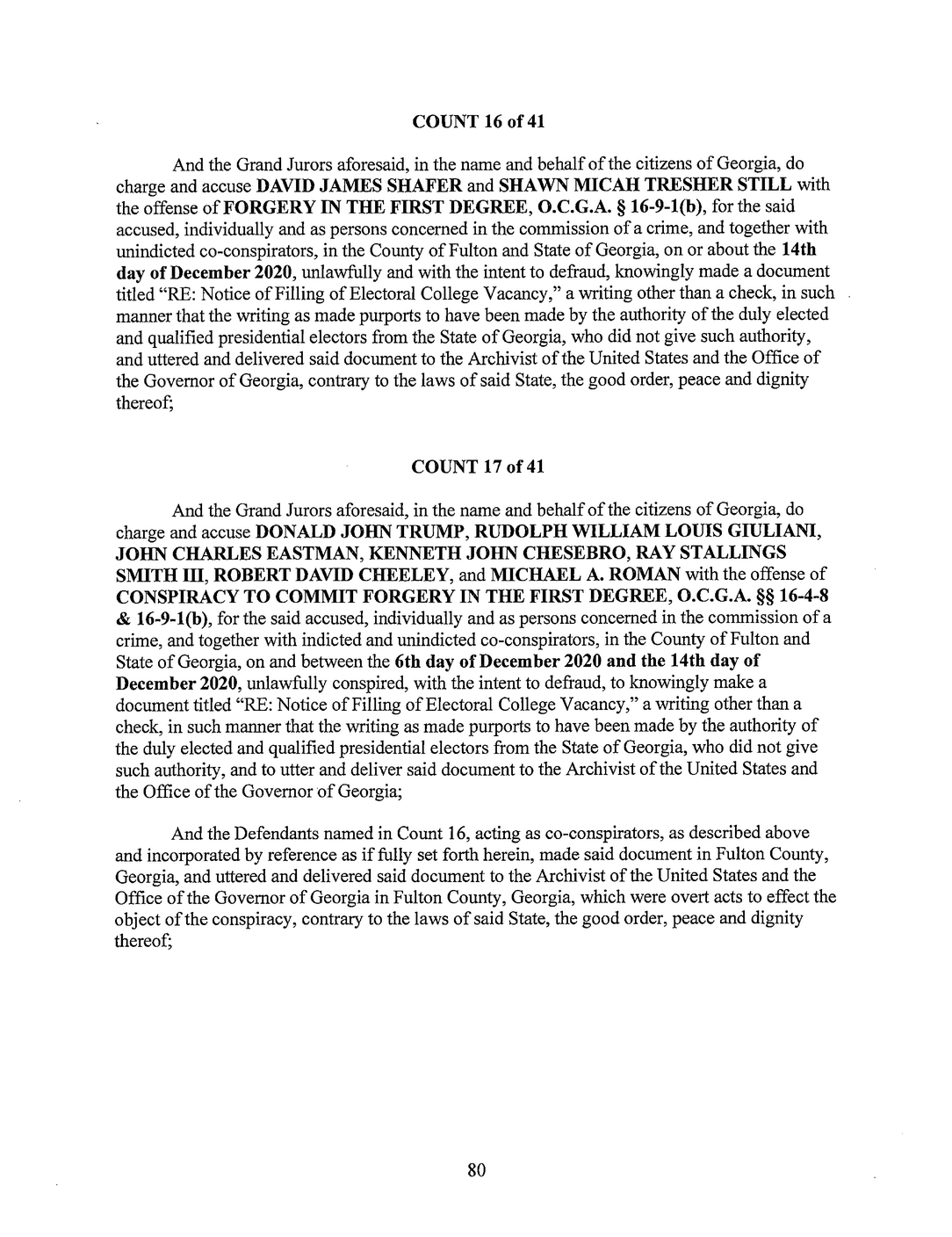
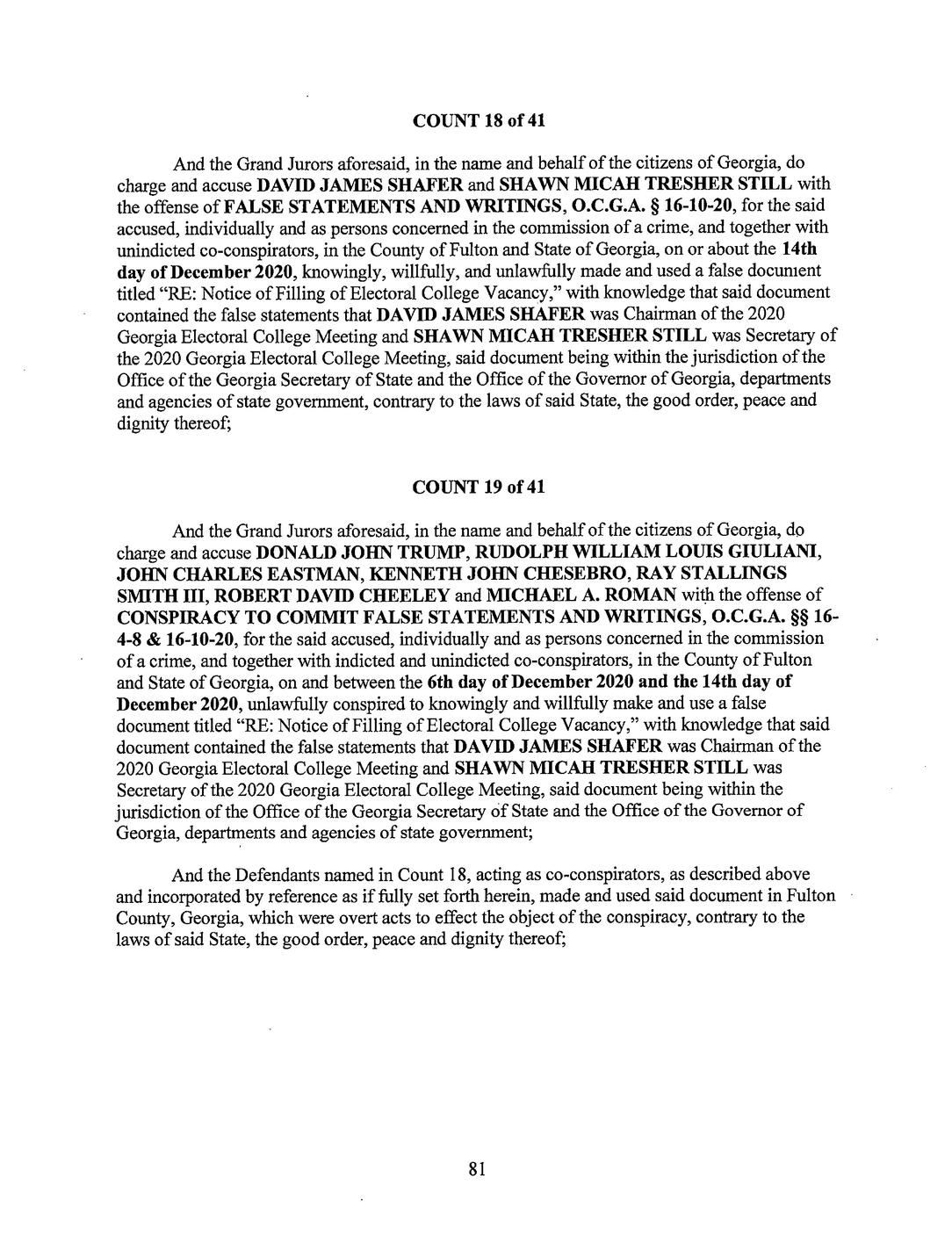
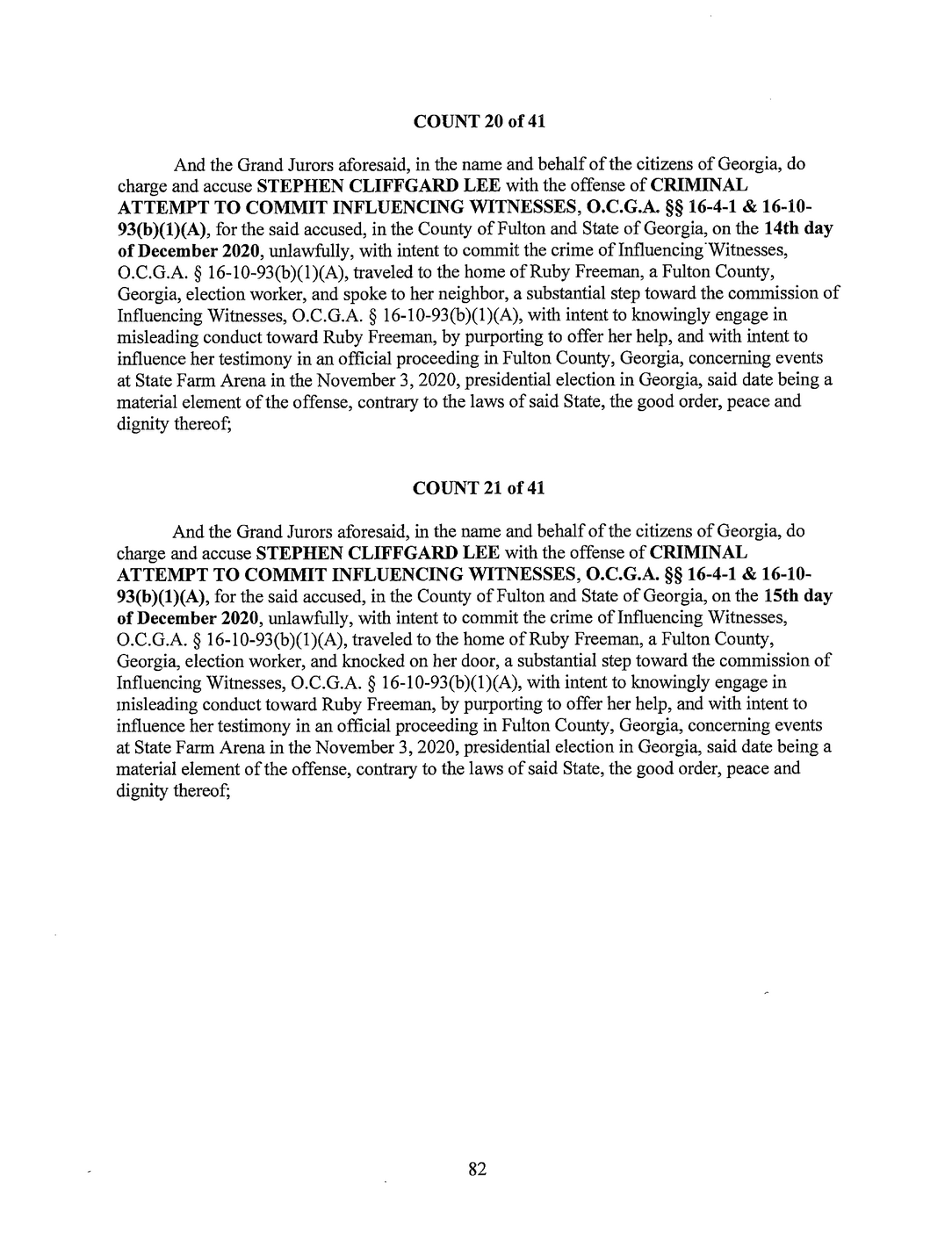
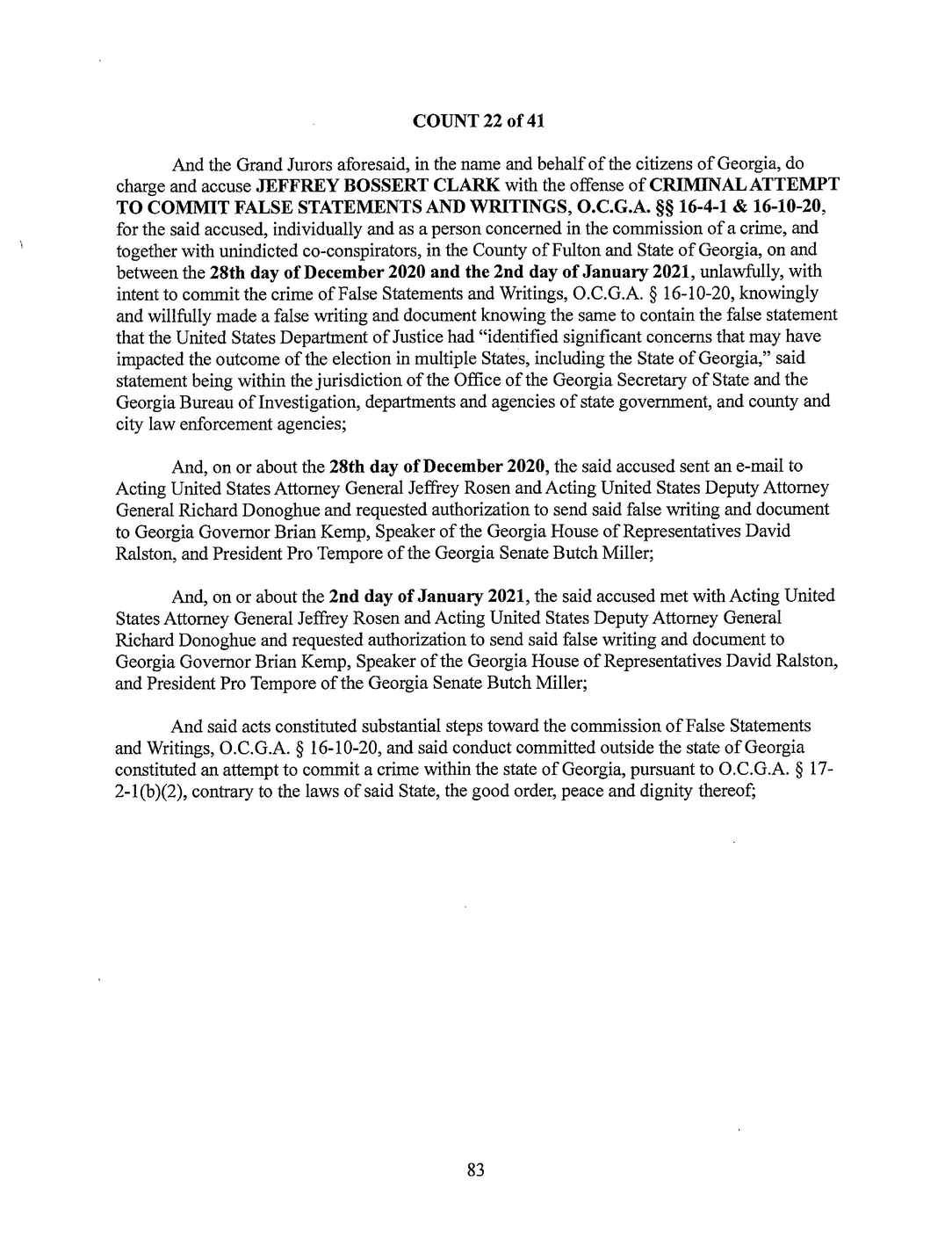
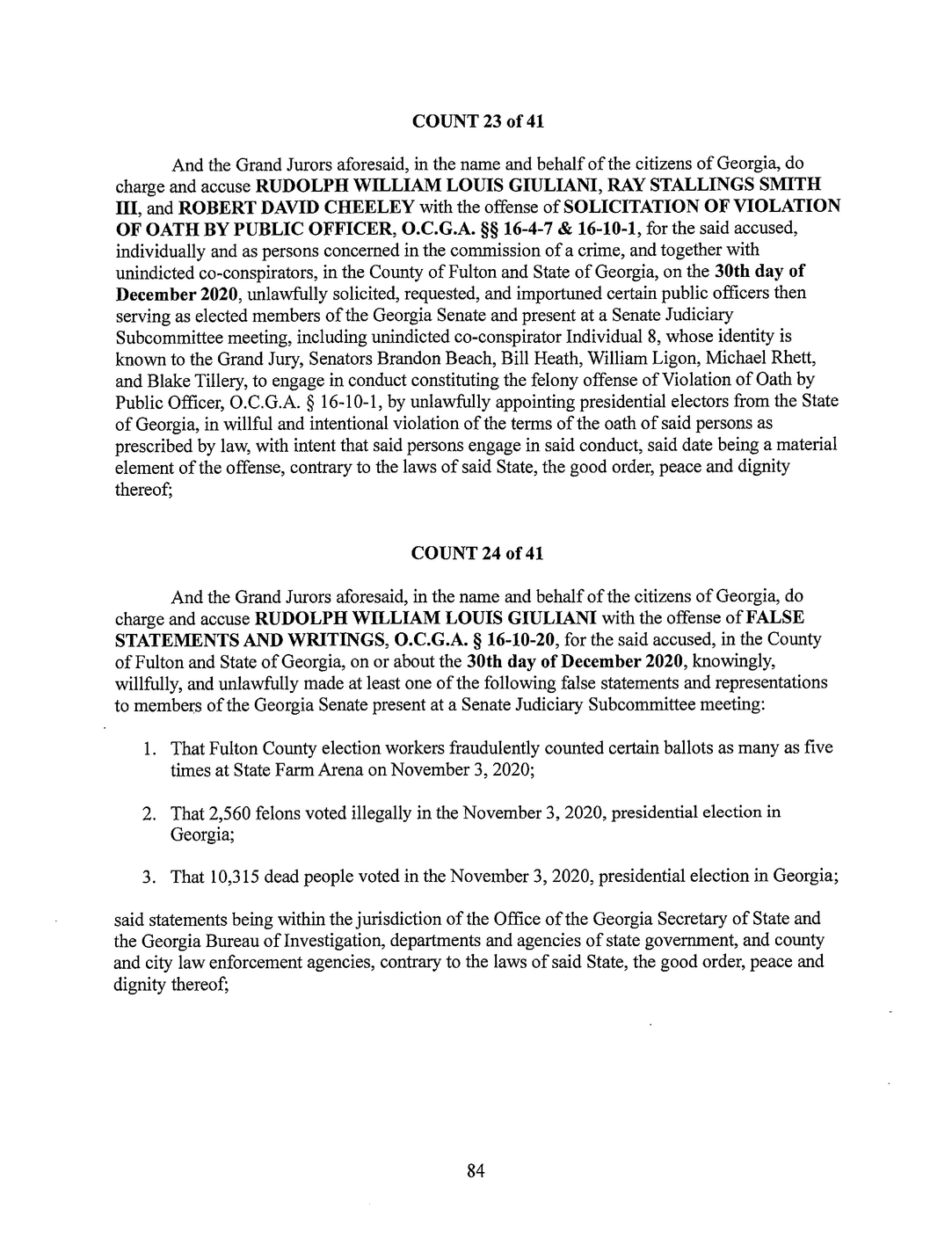
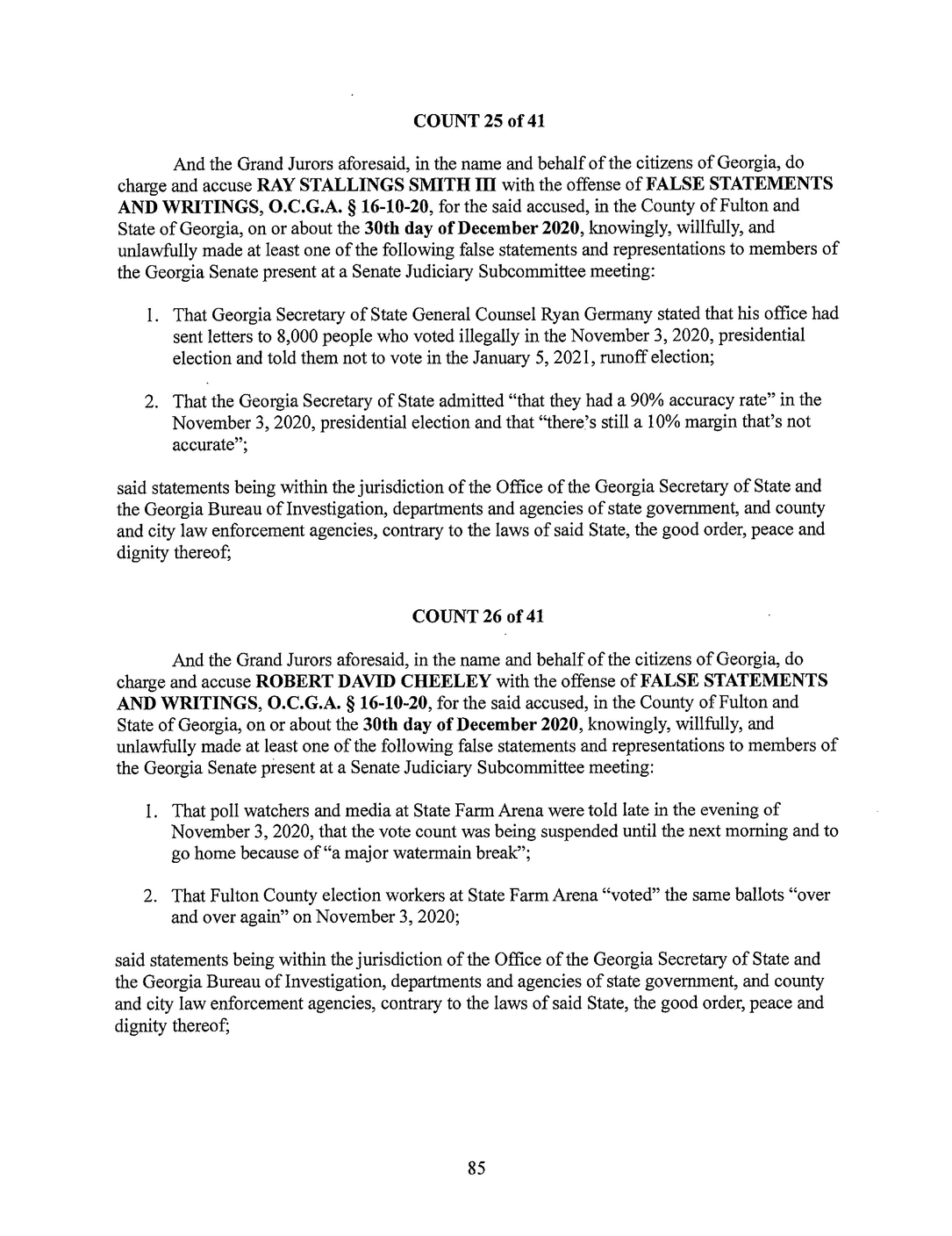
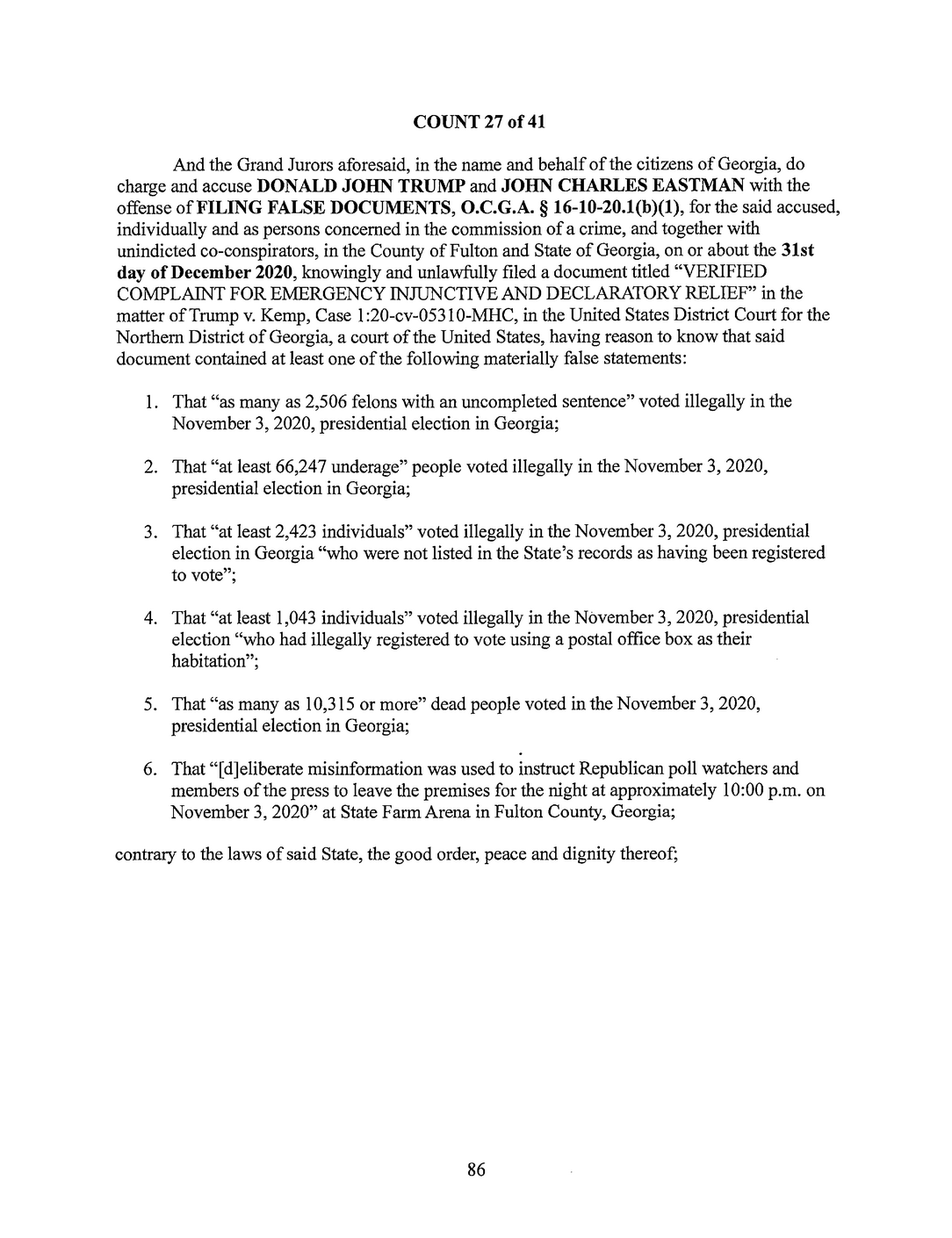
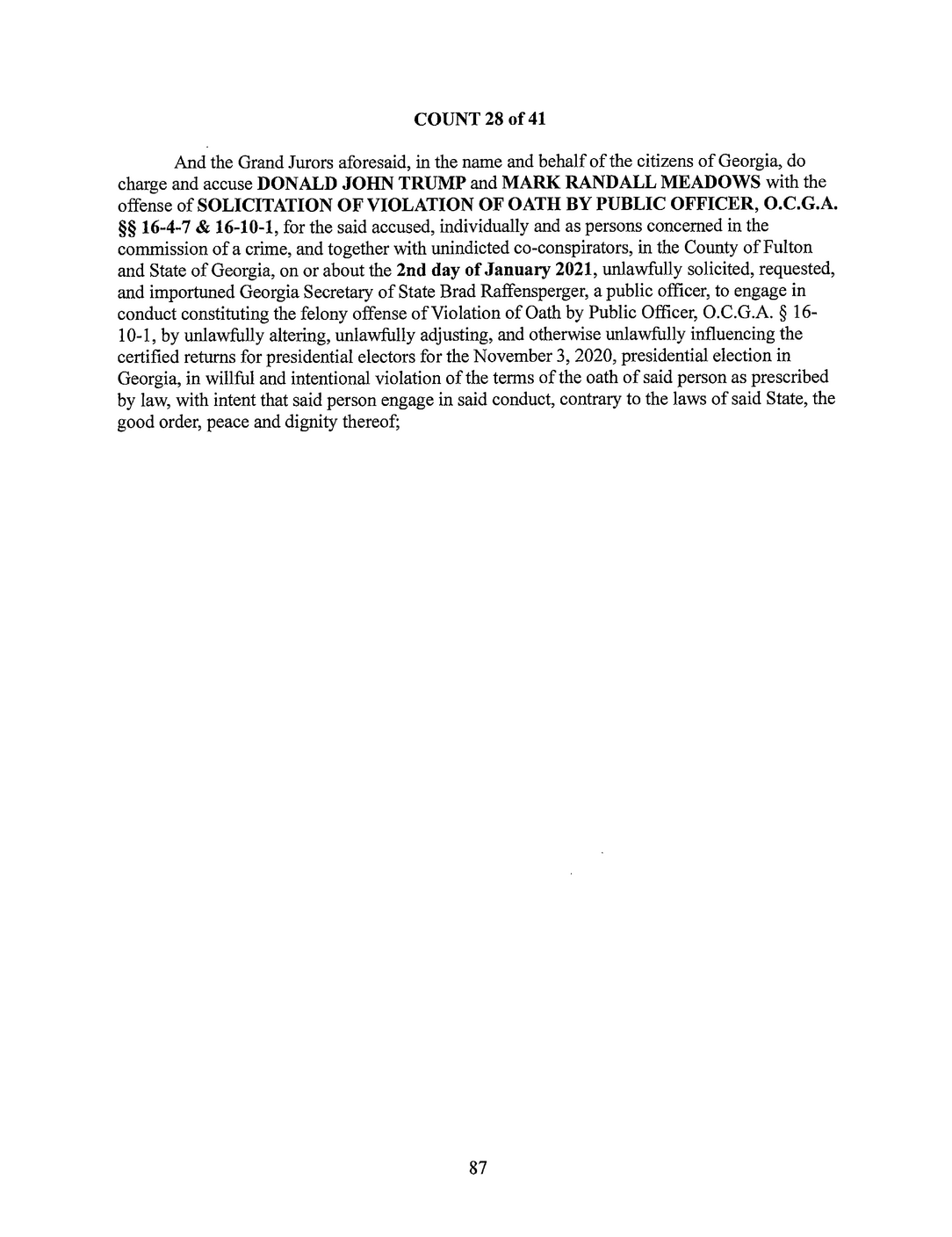
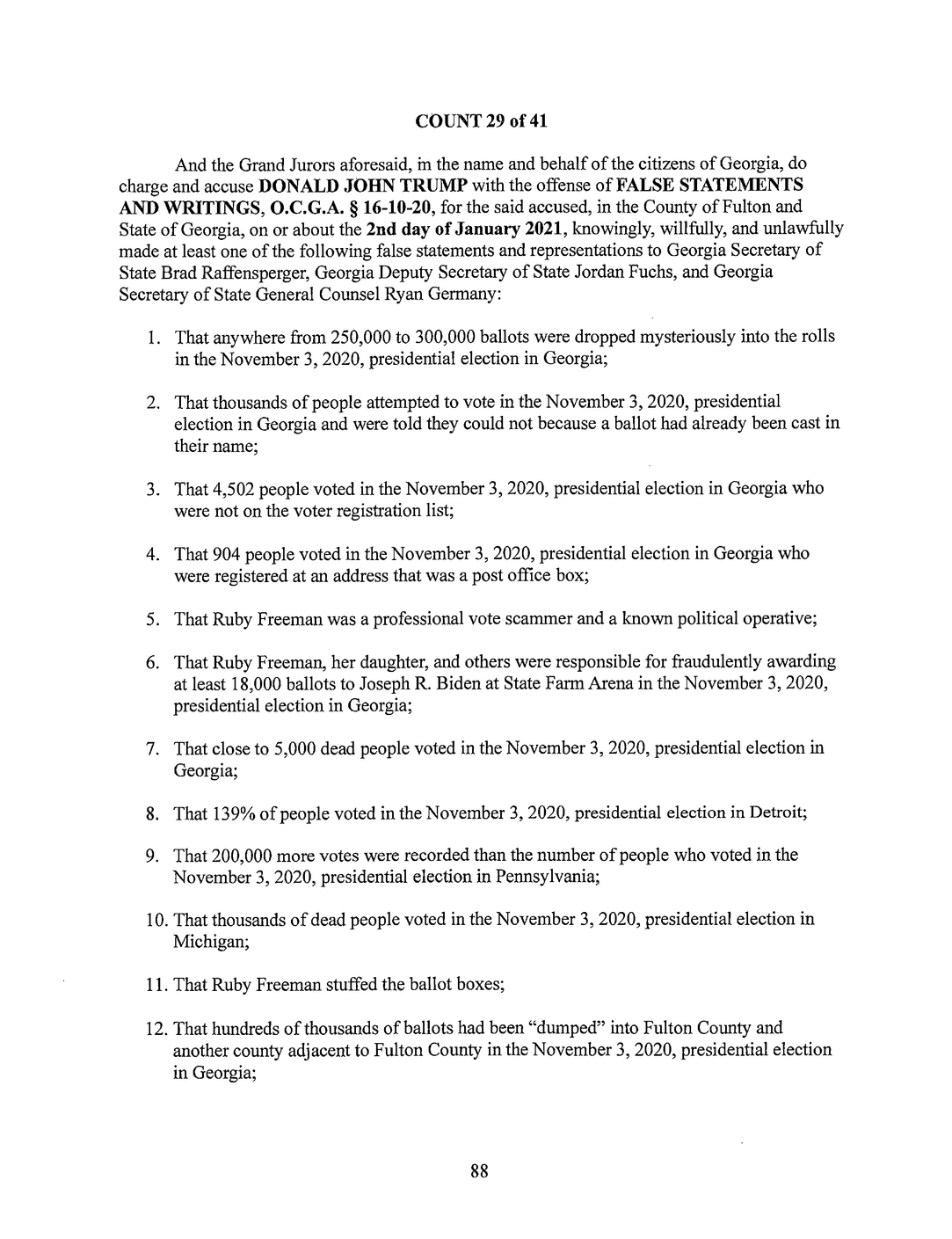
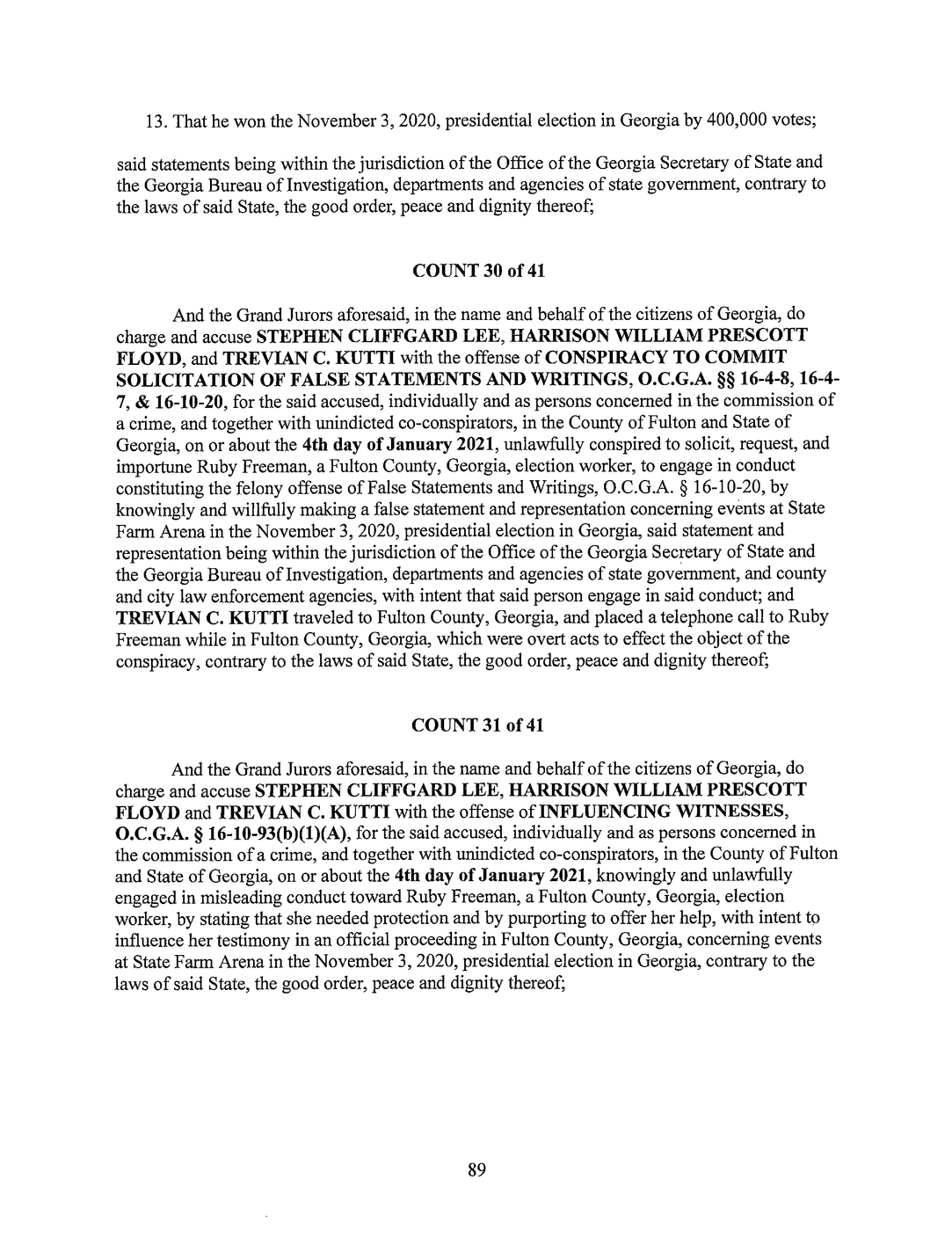
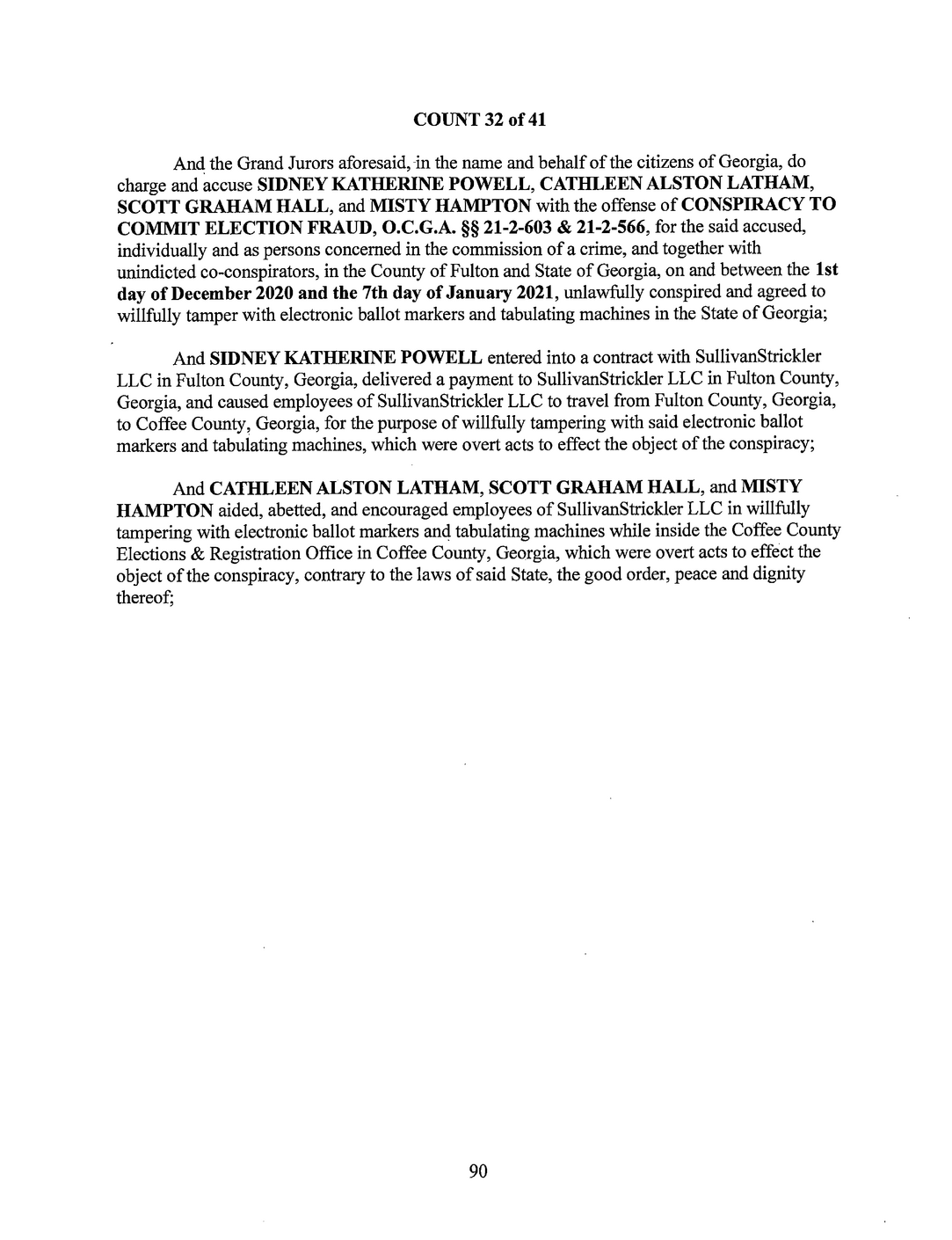
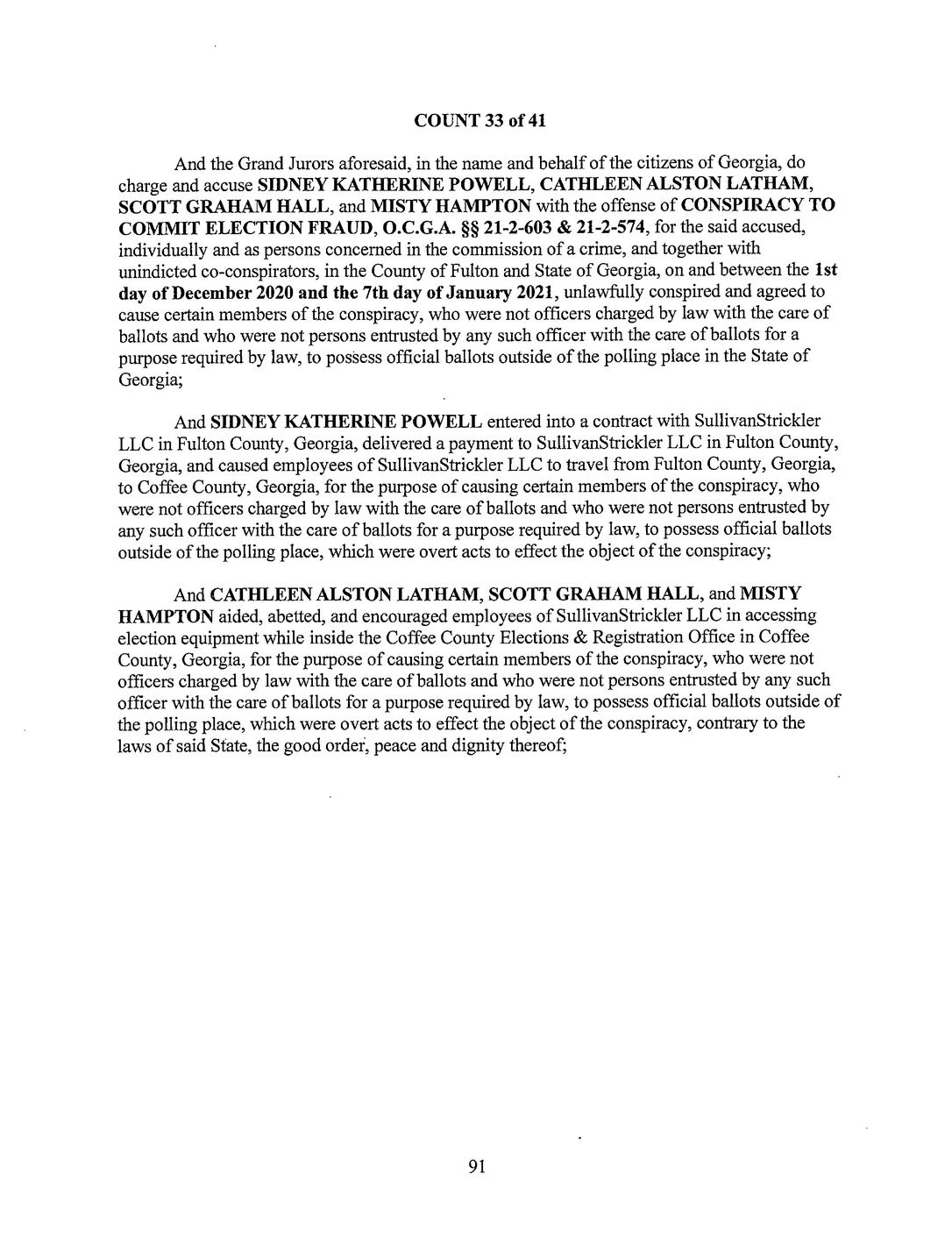
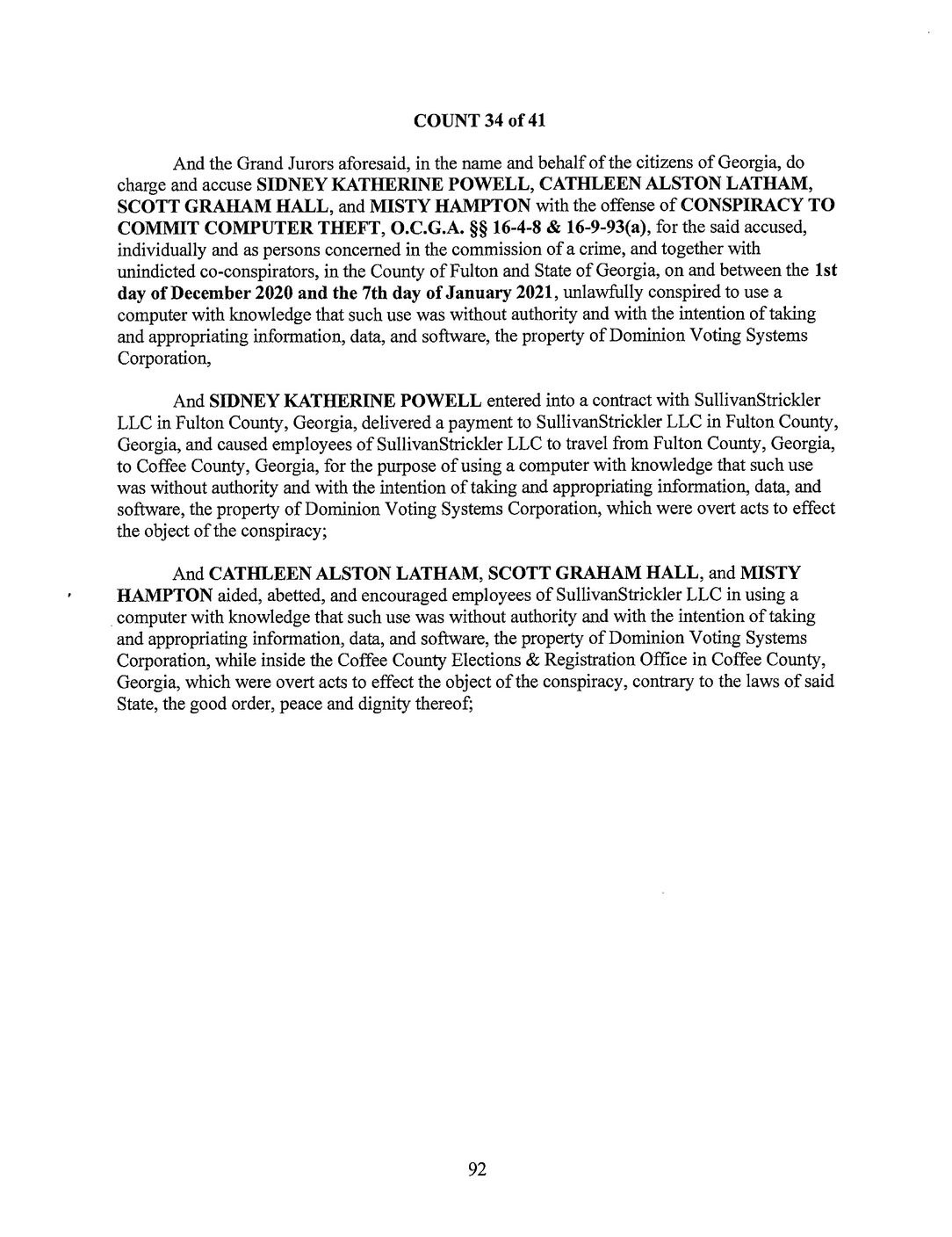
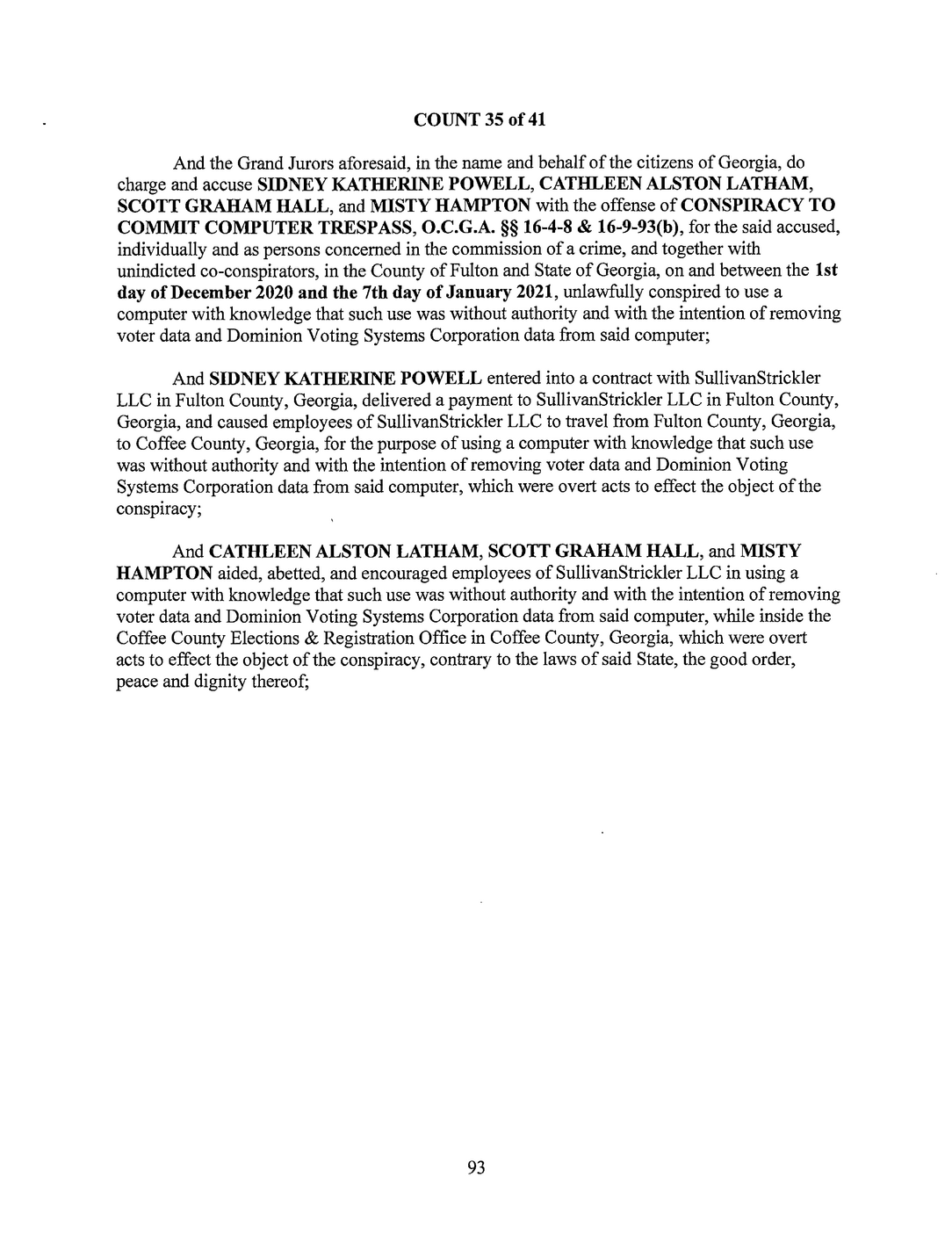
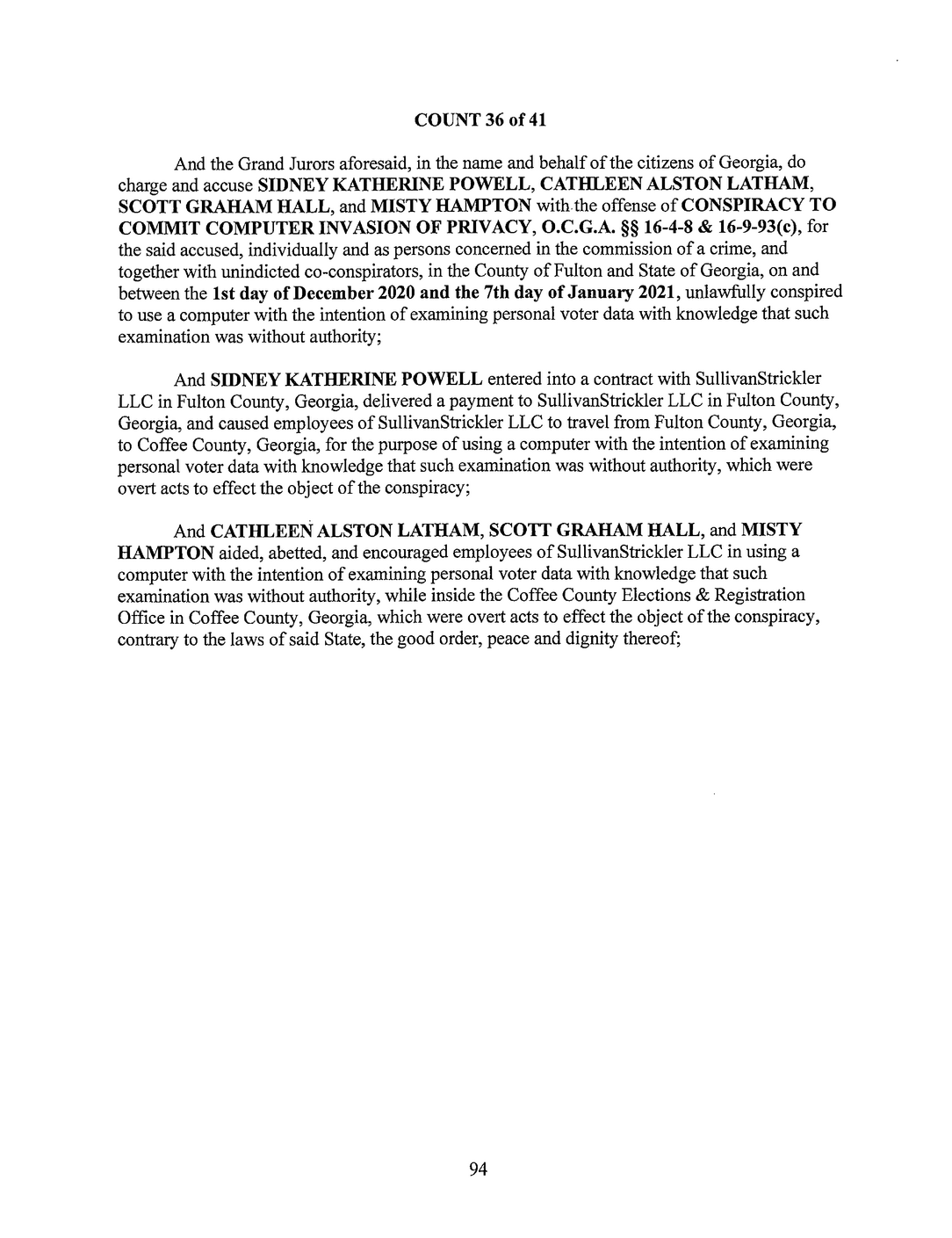
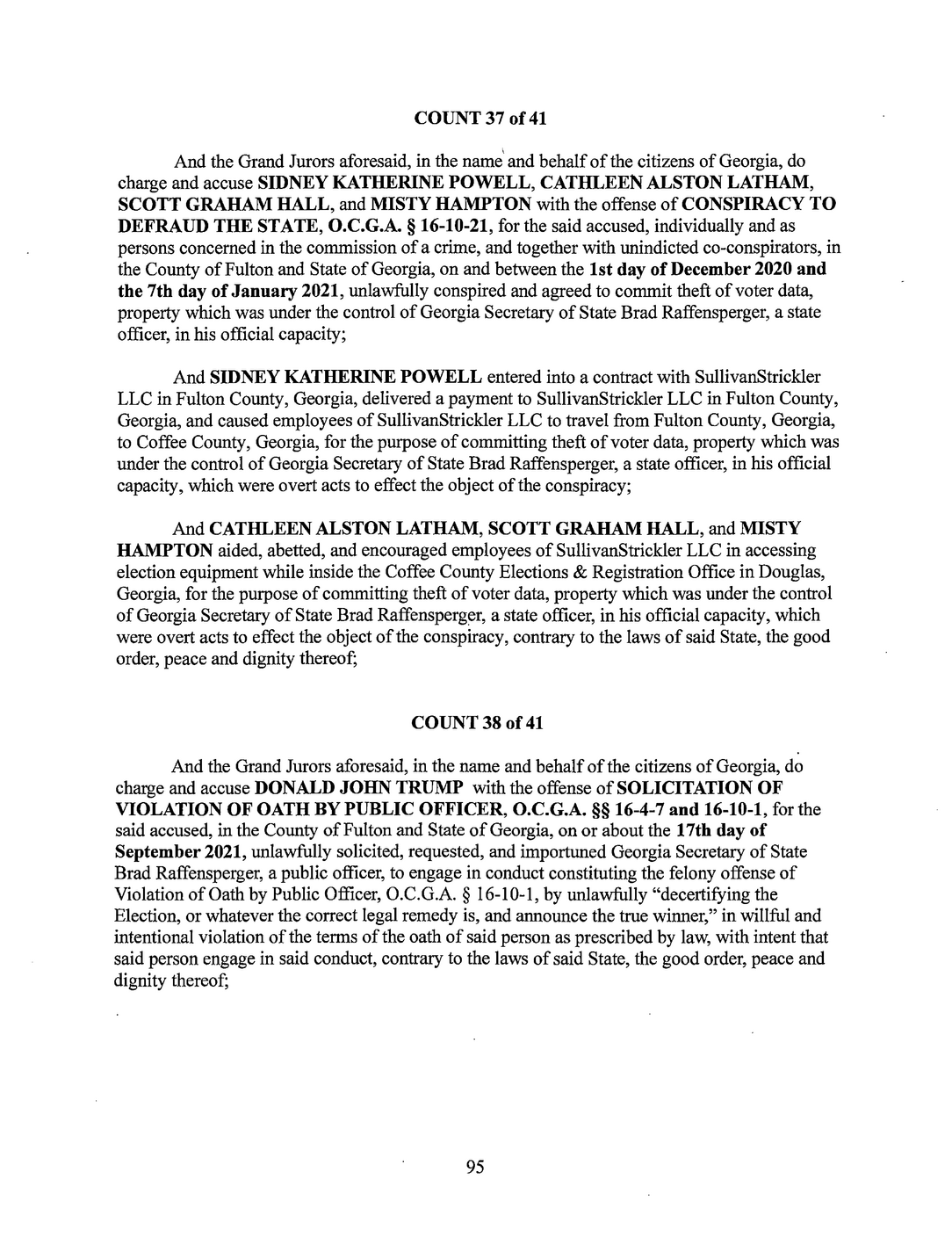
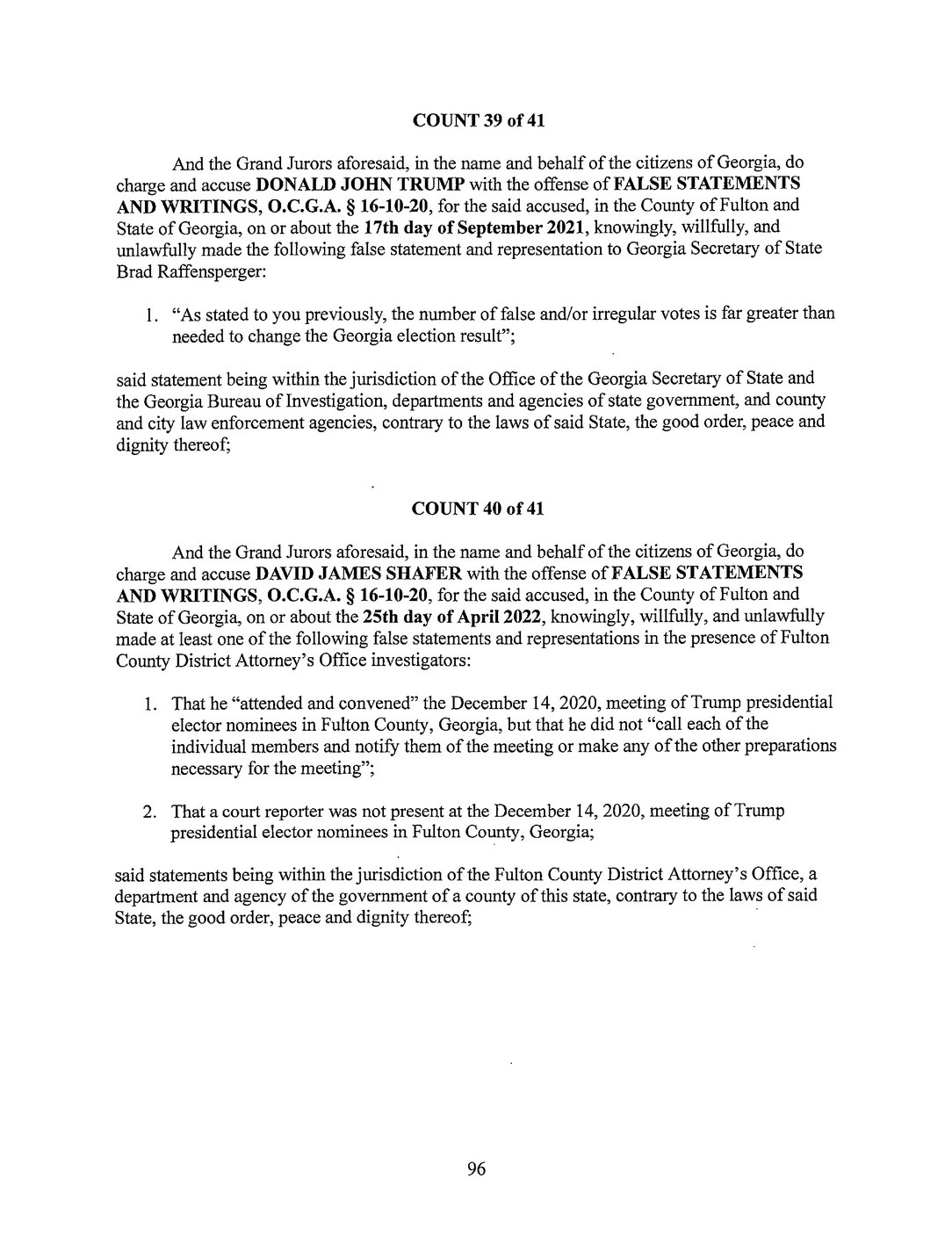
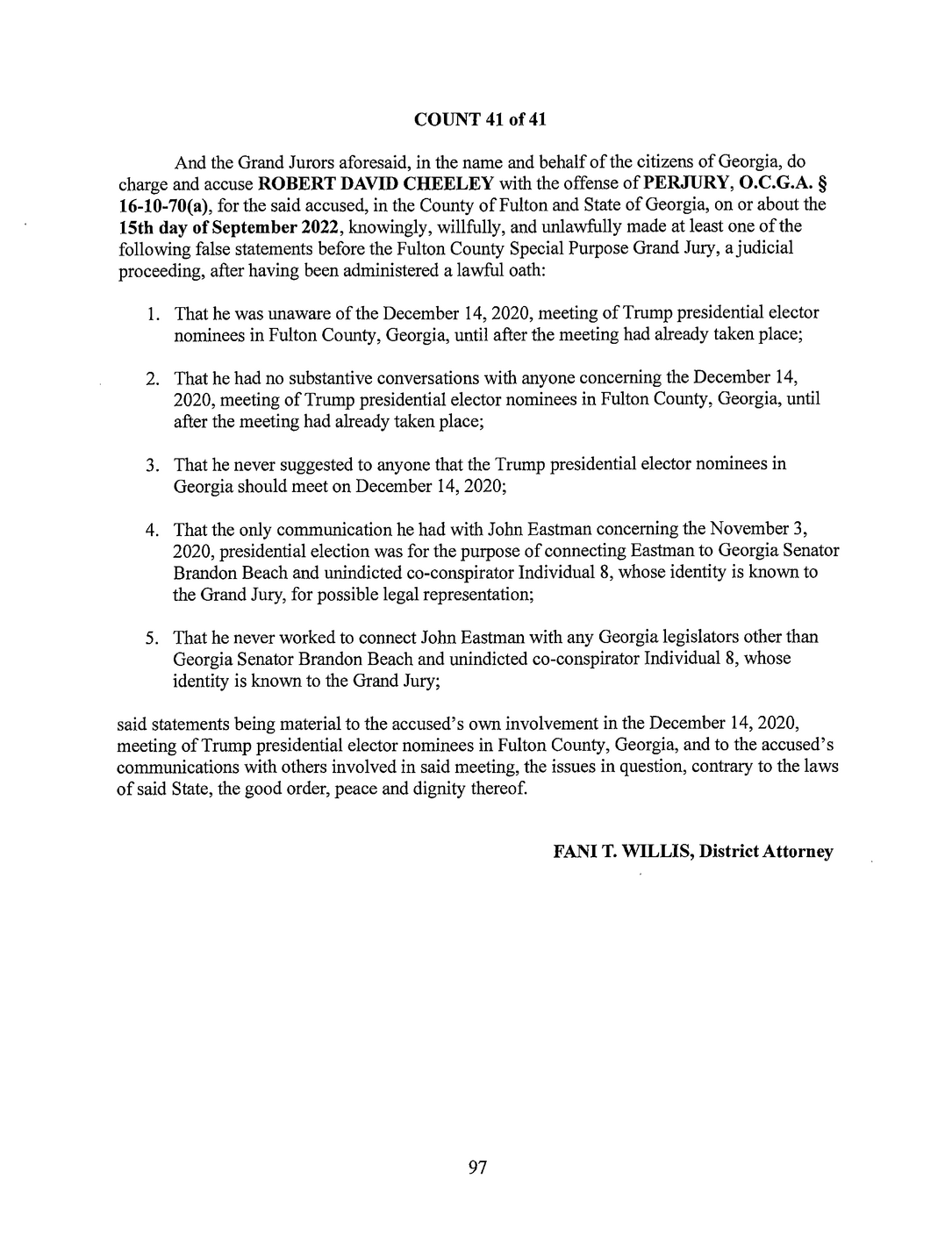
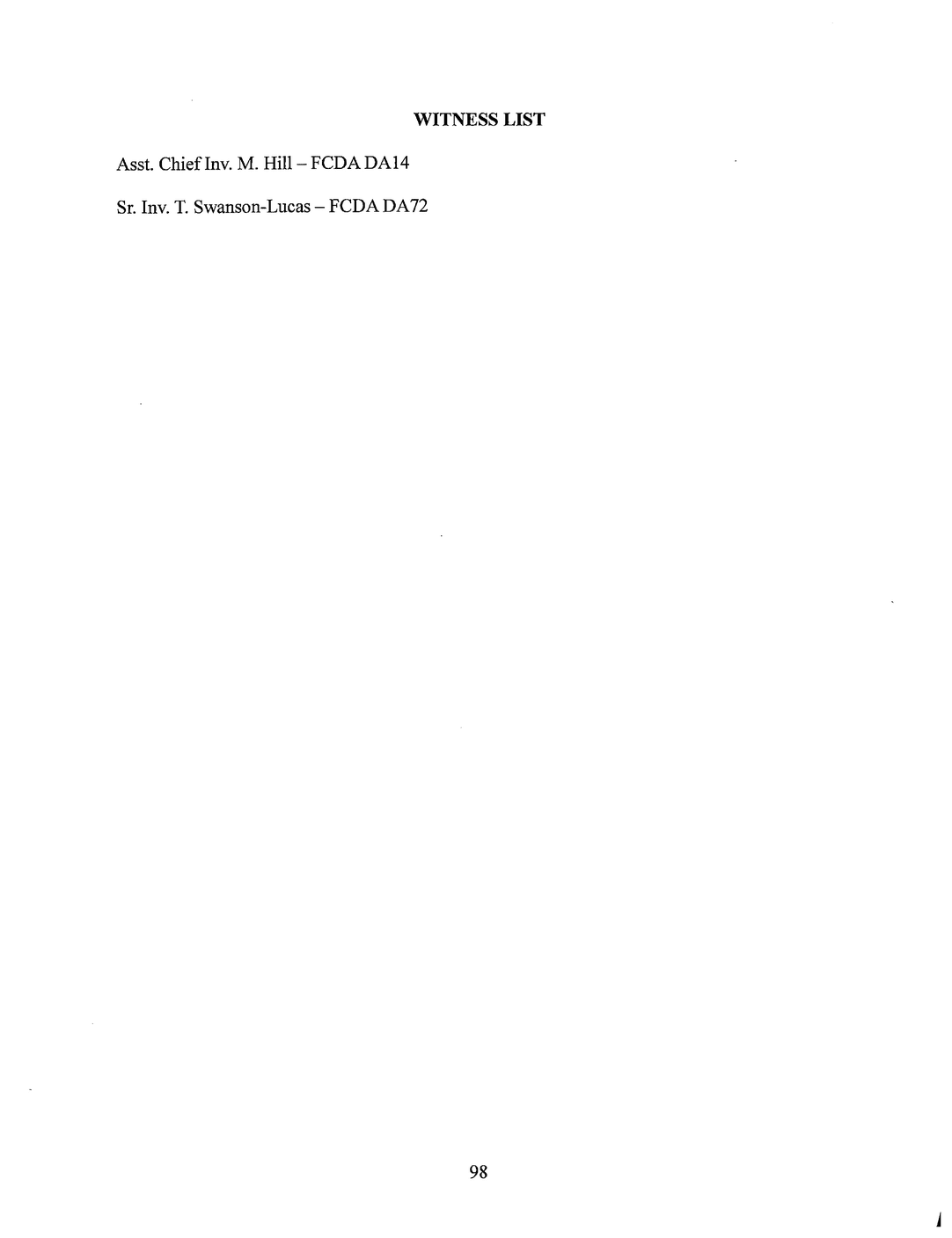
Read the full article Here


